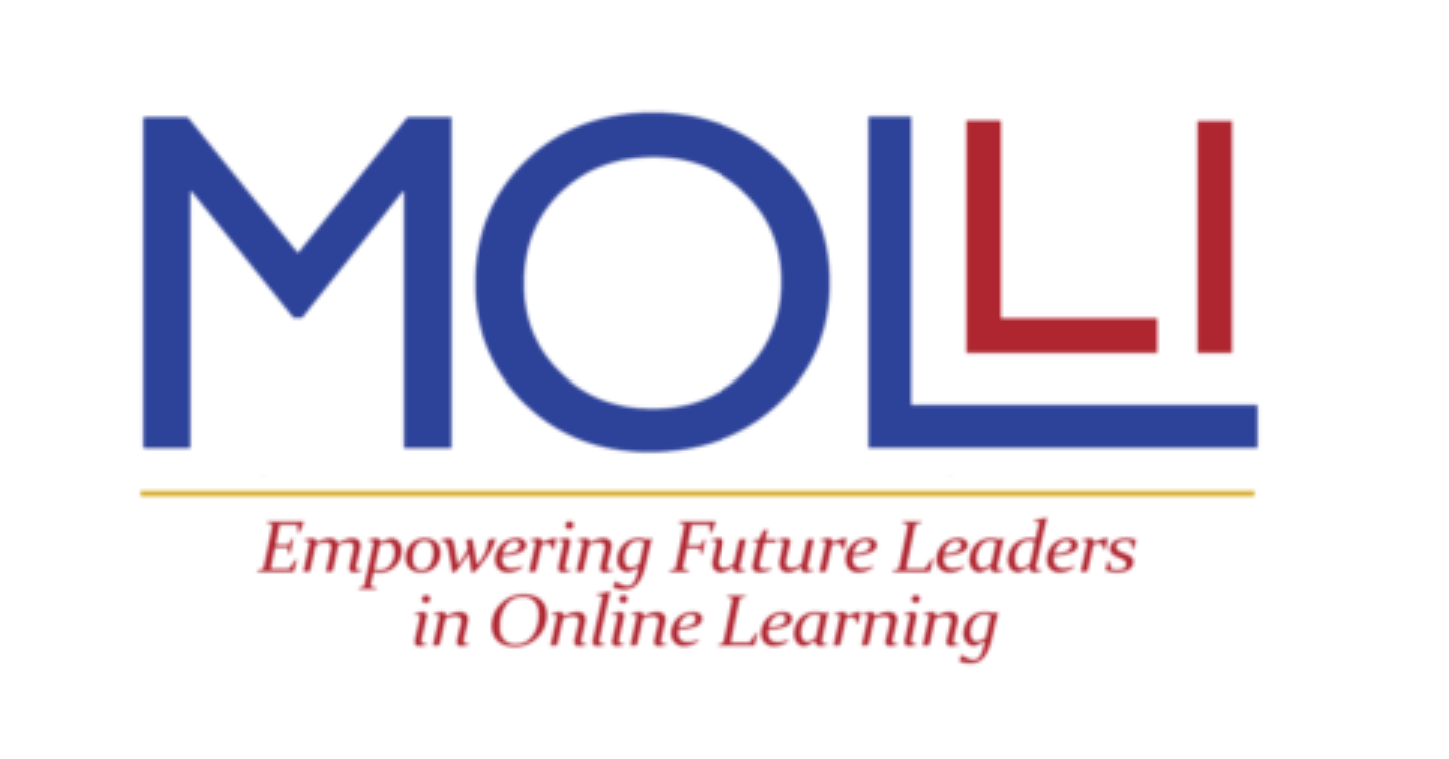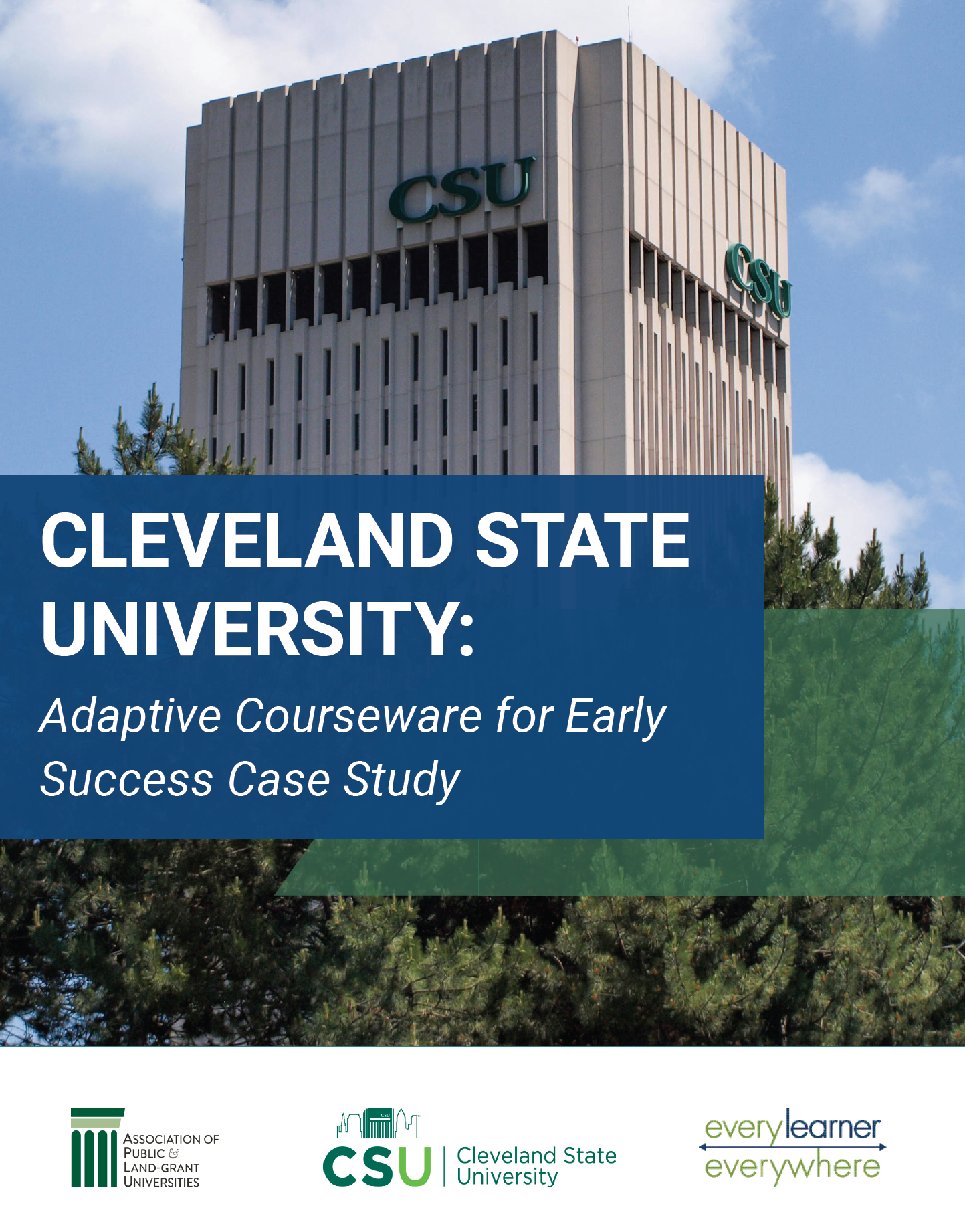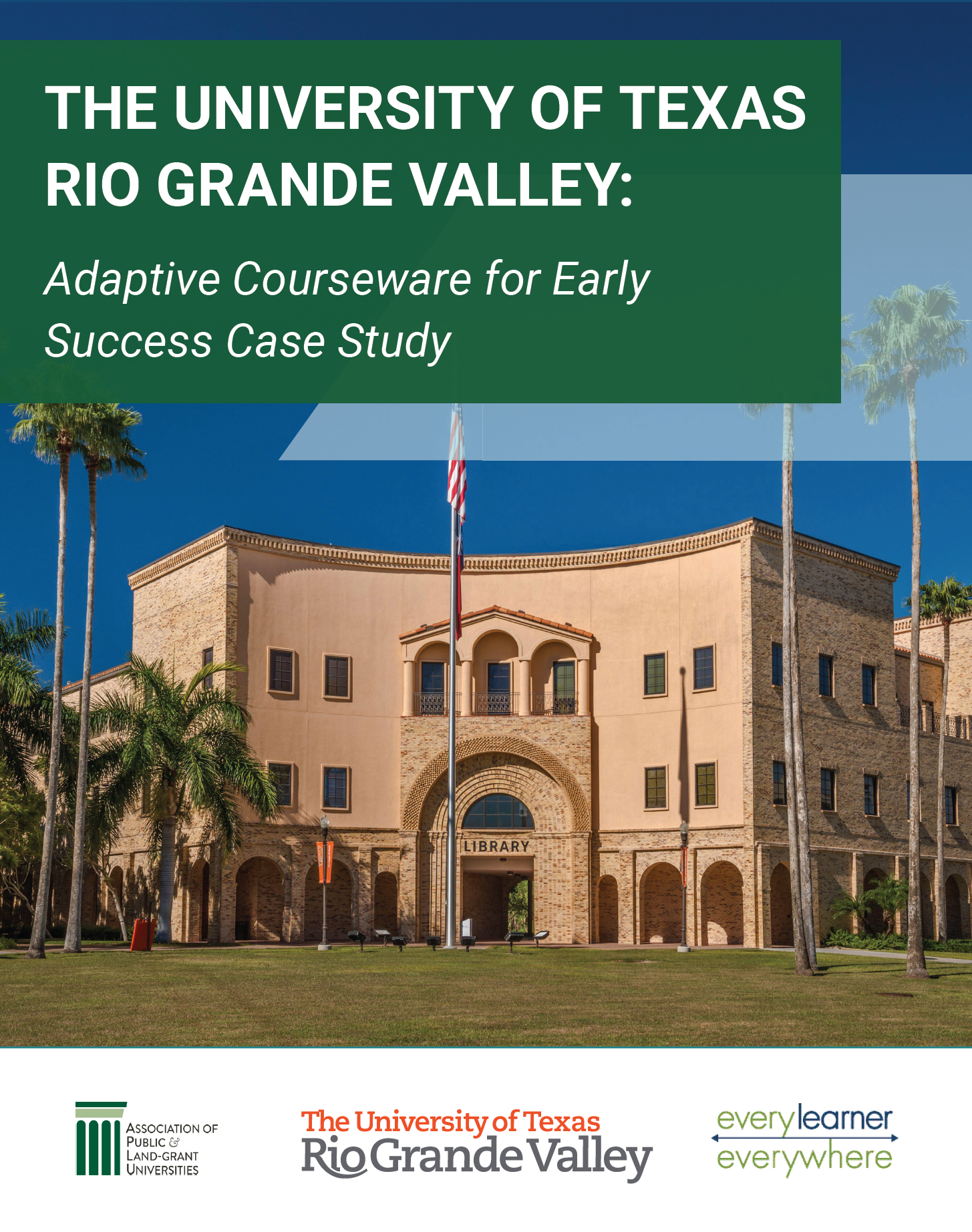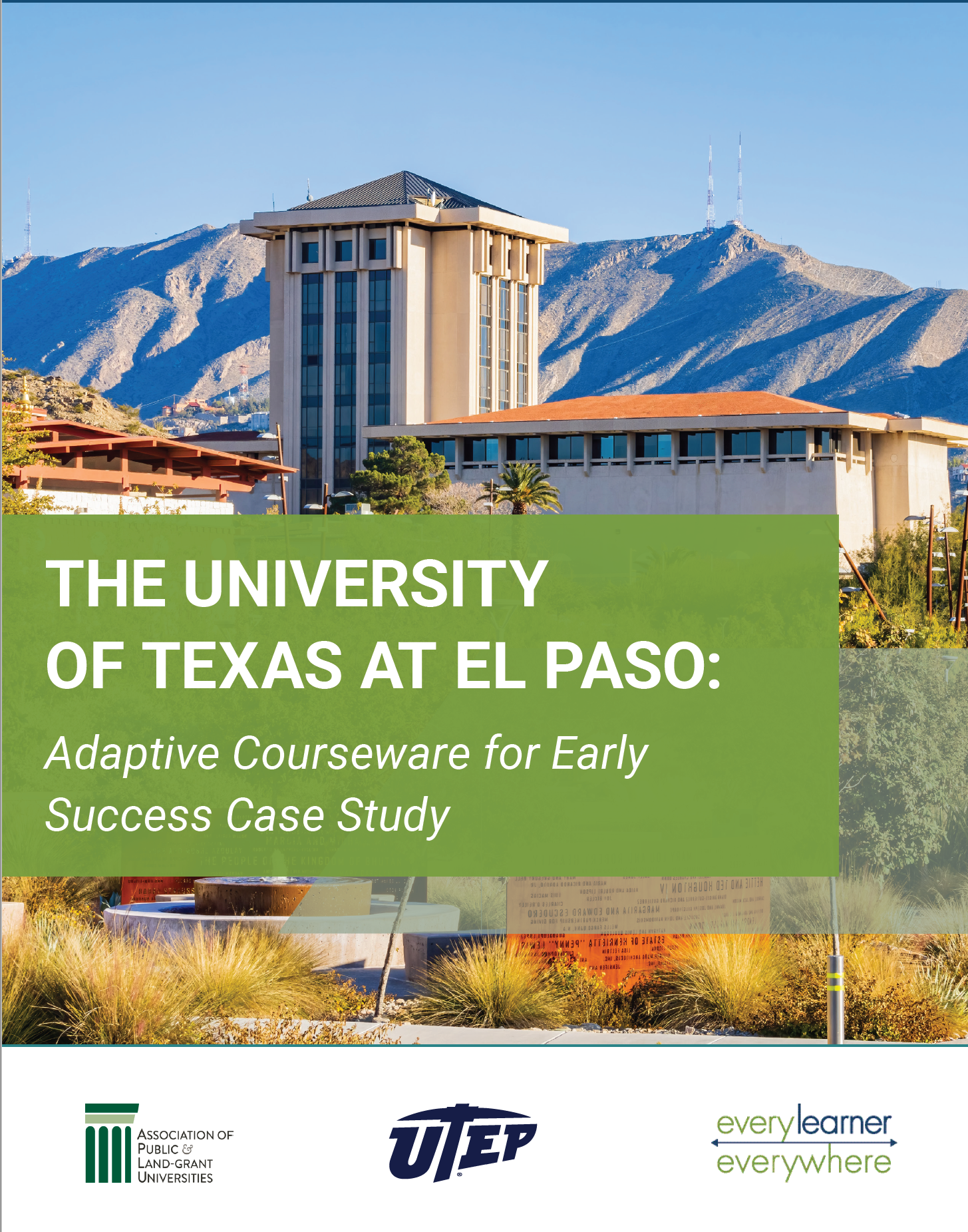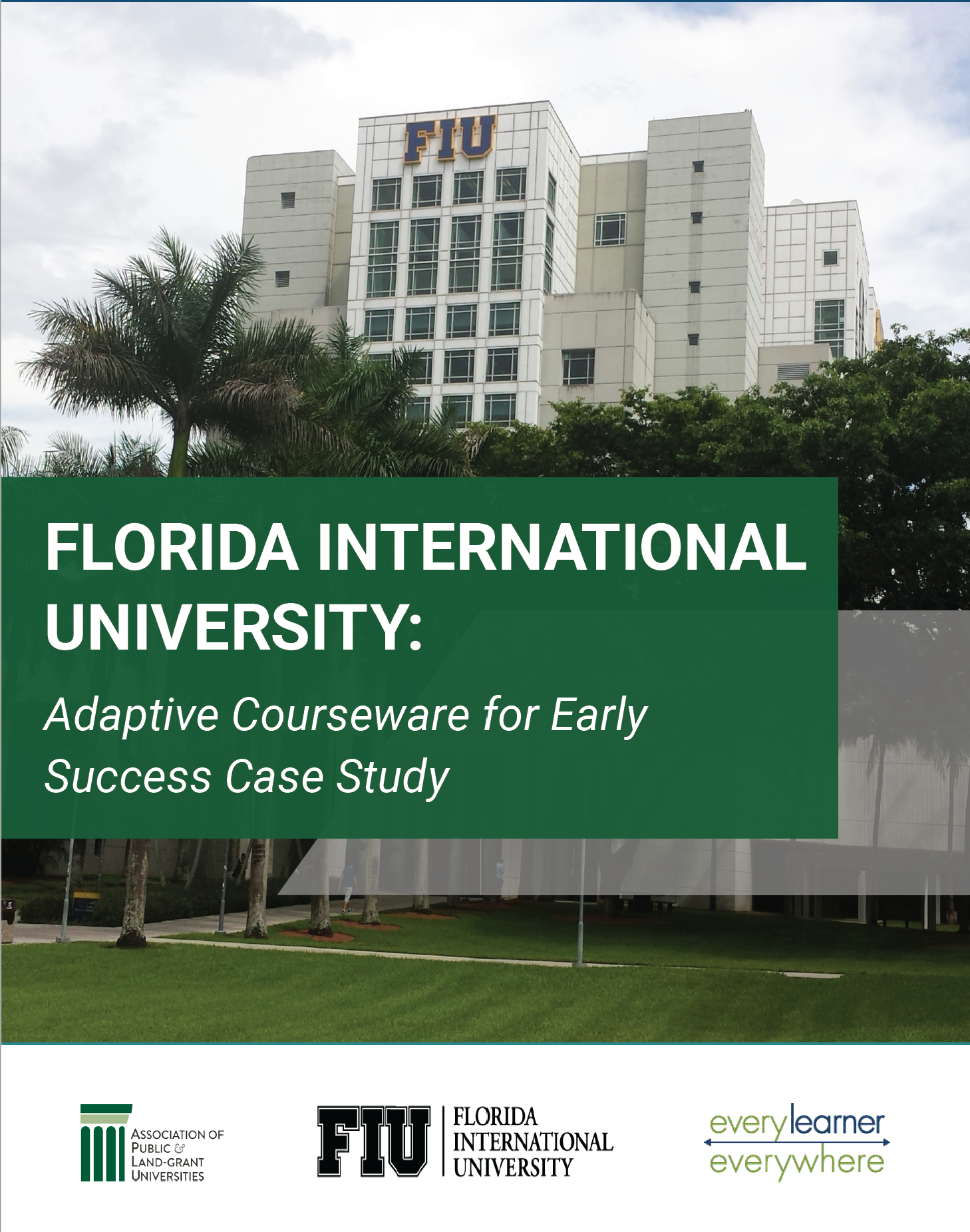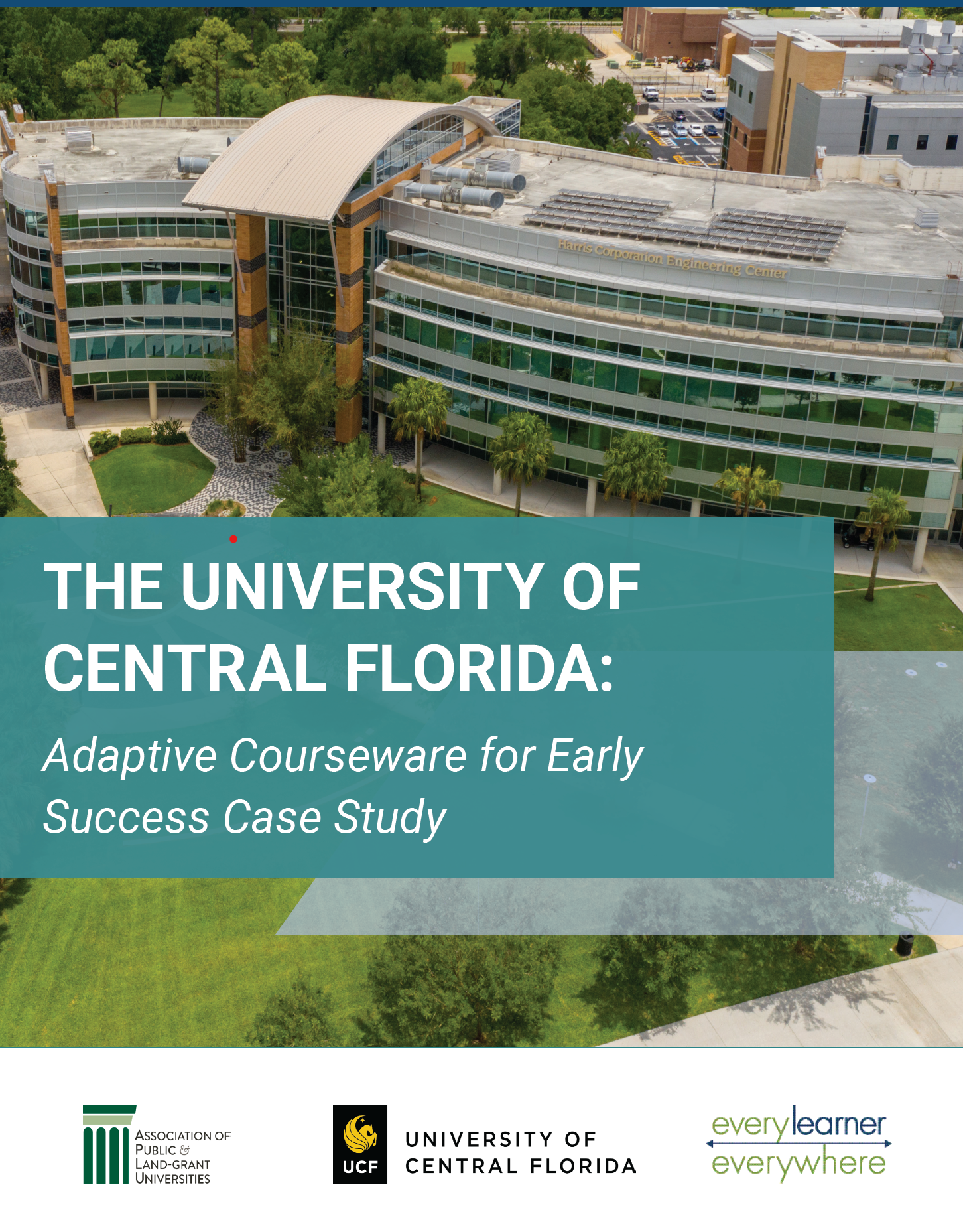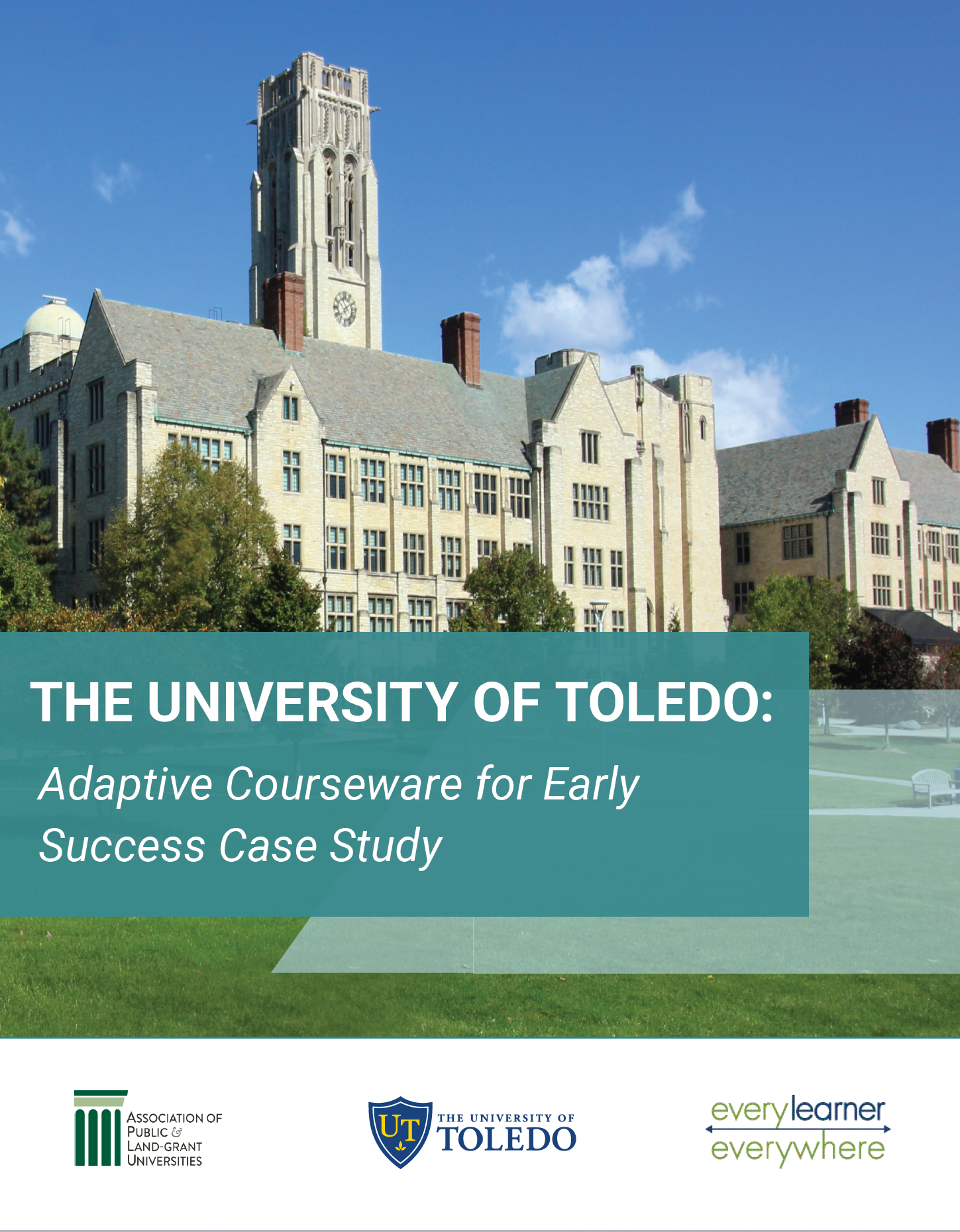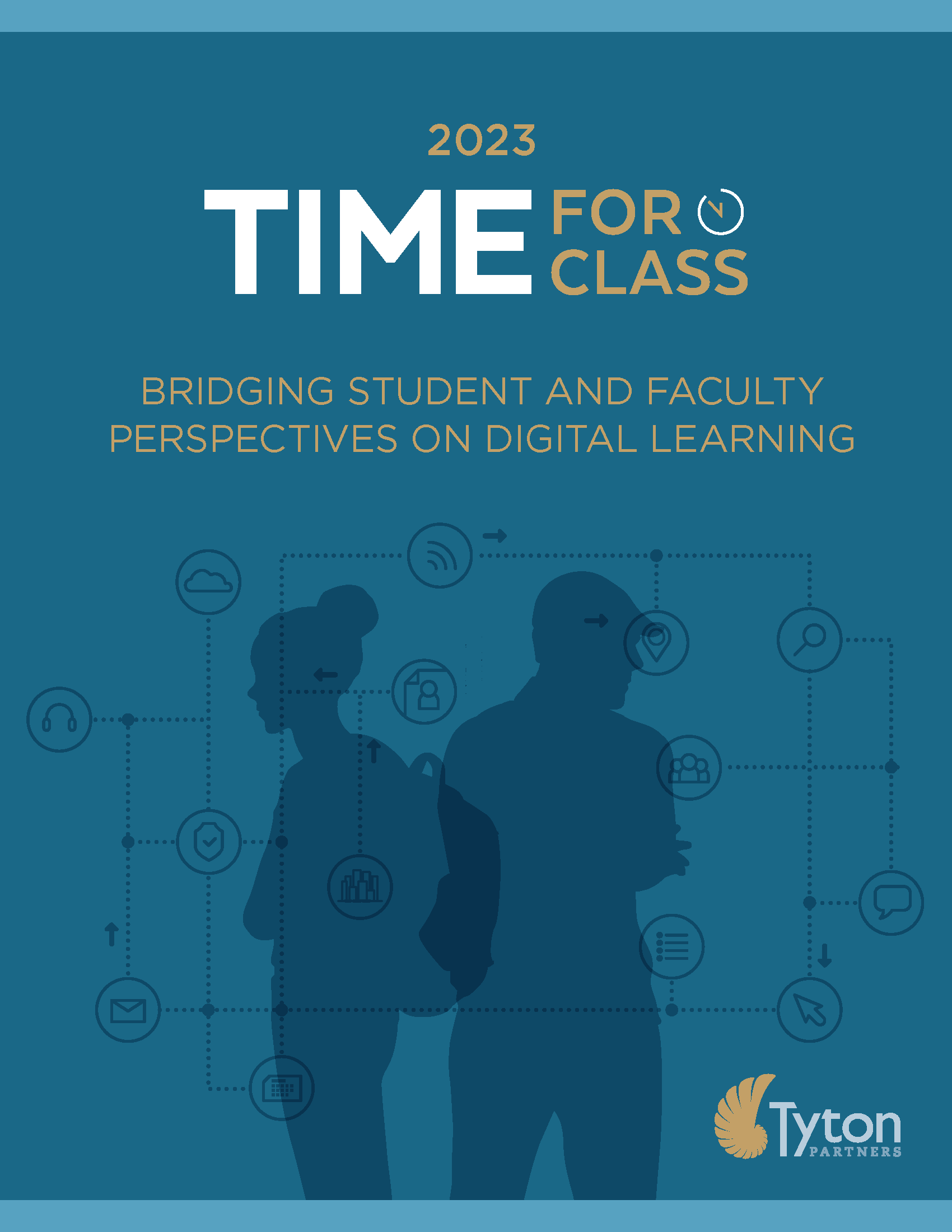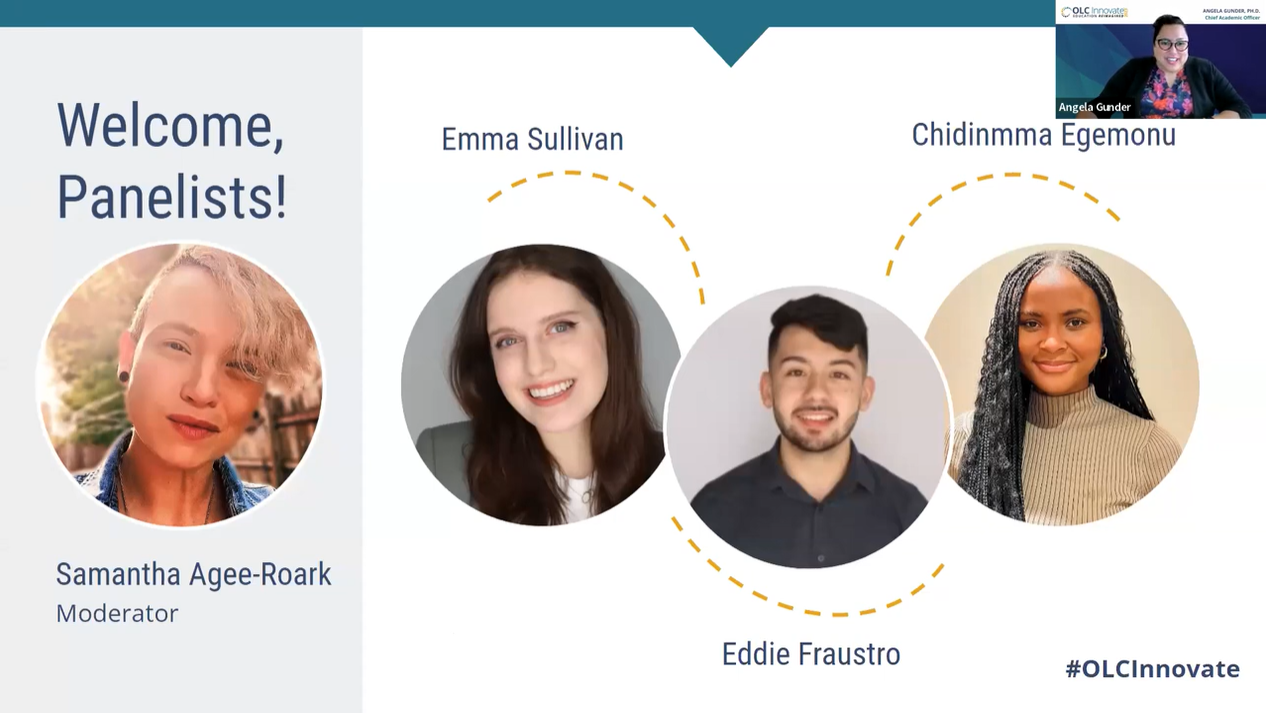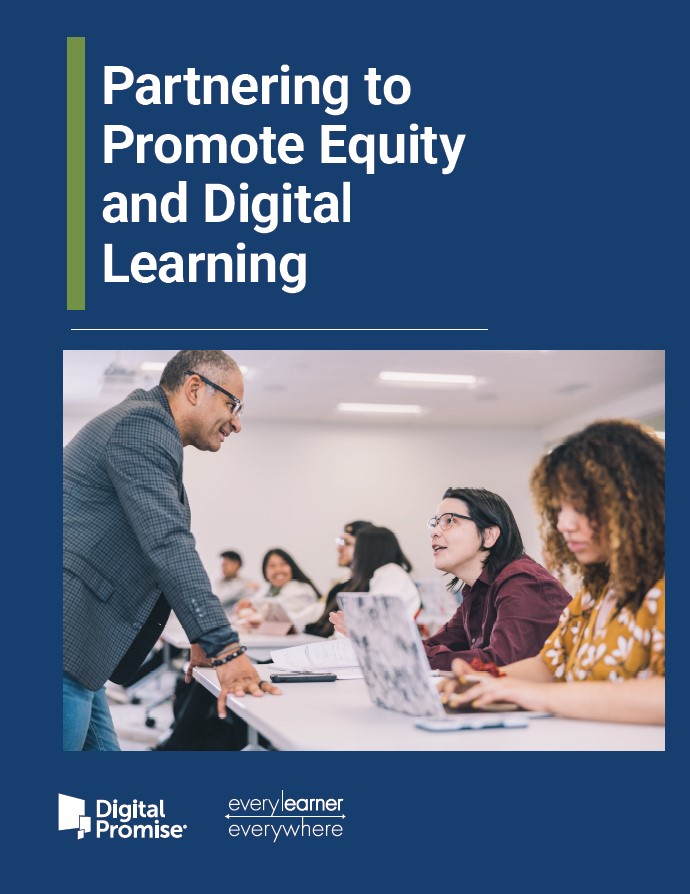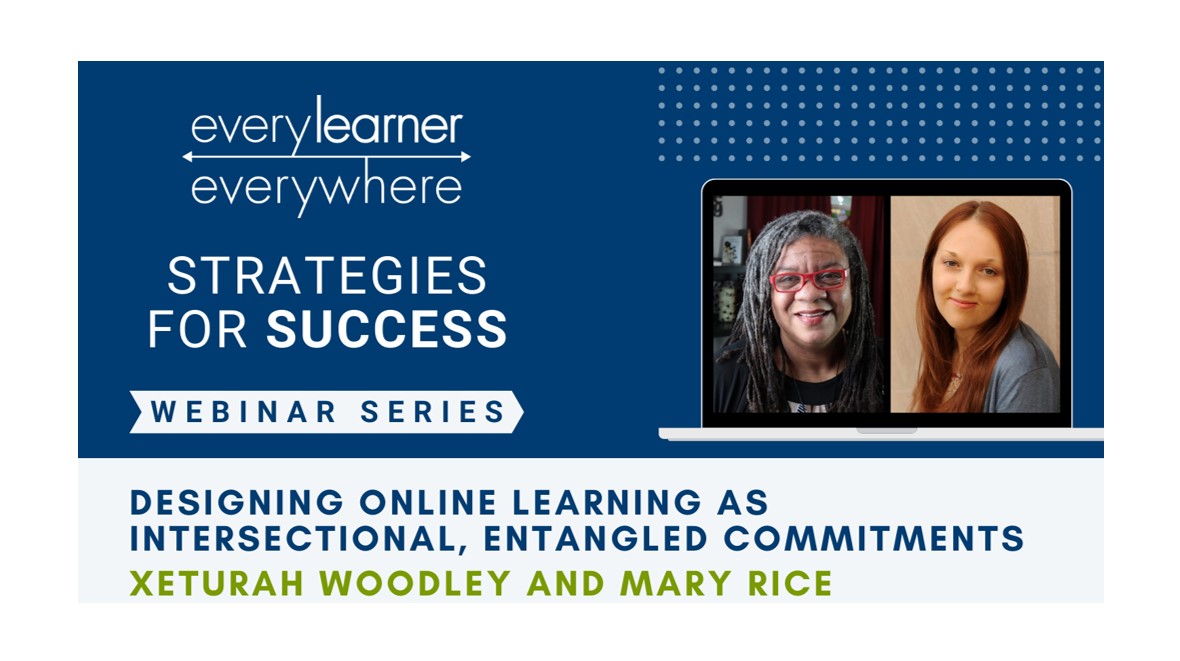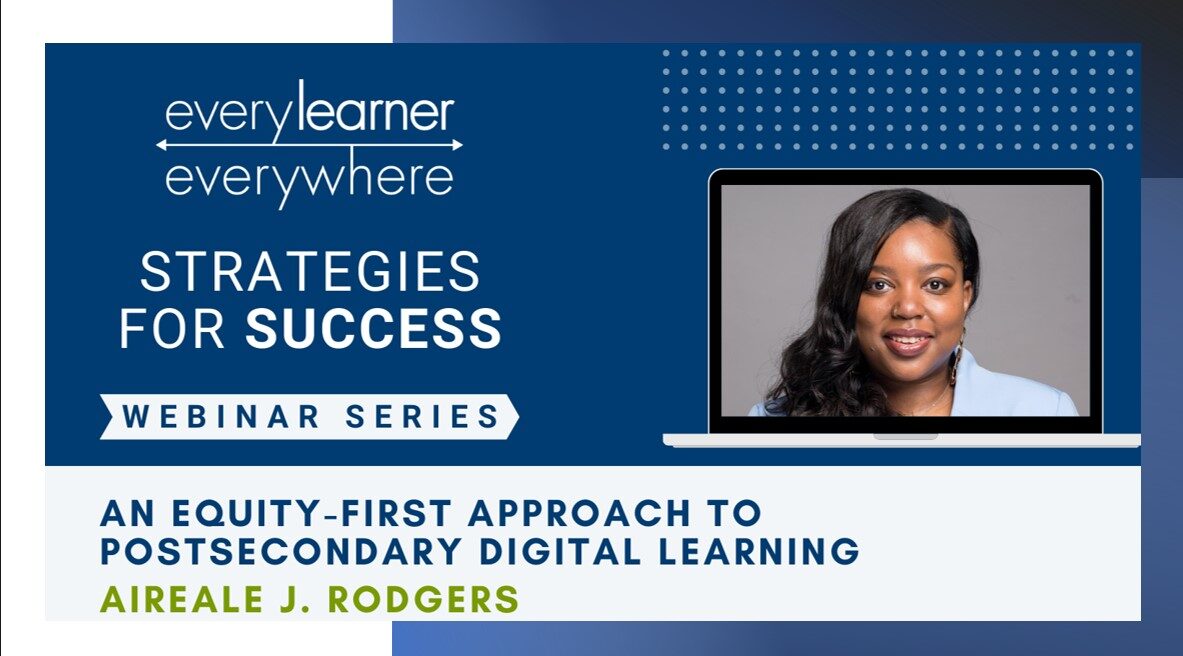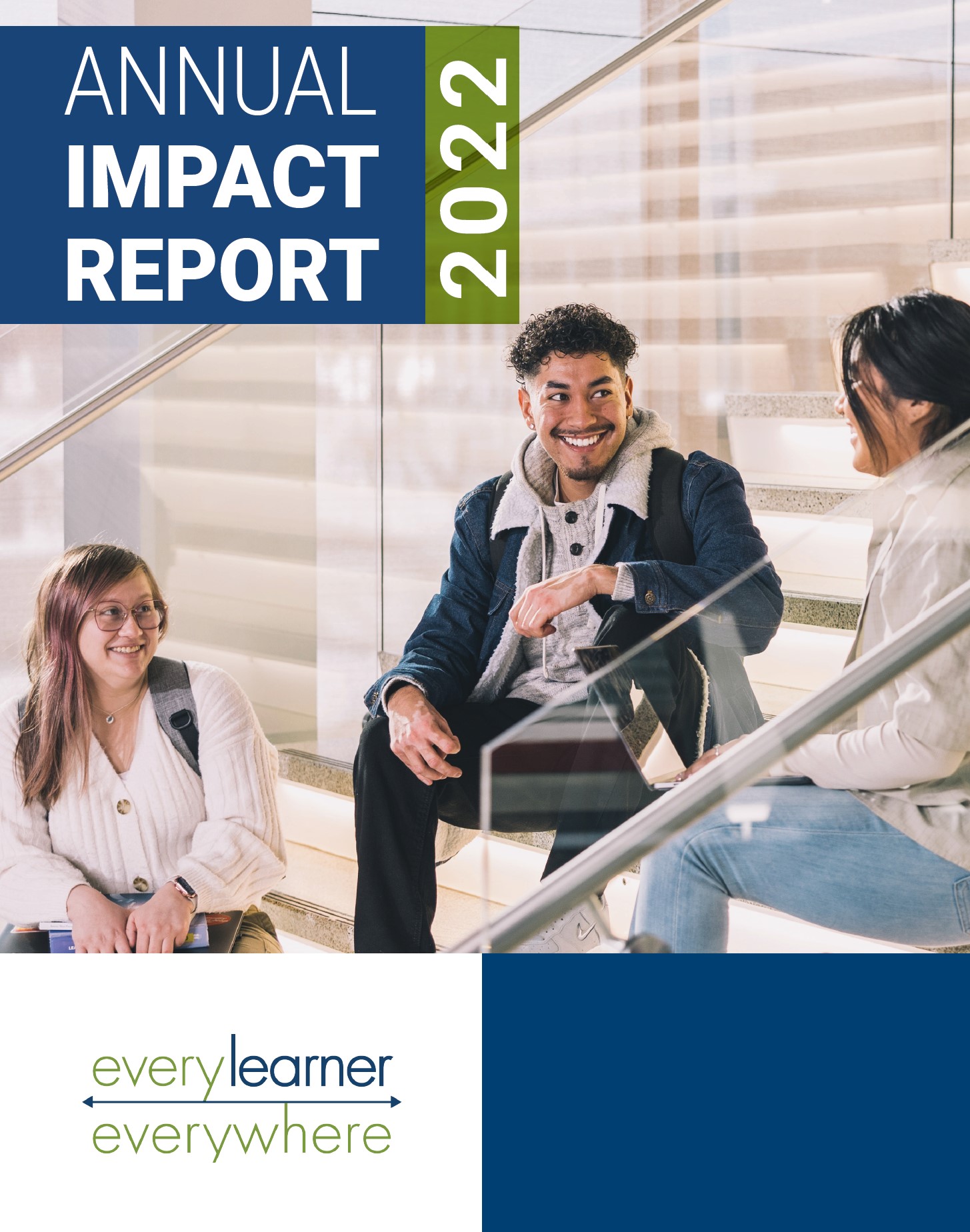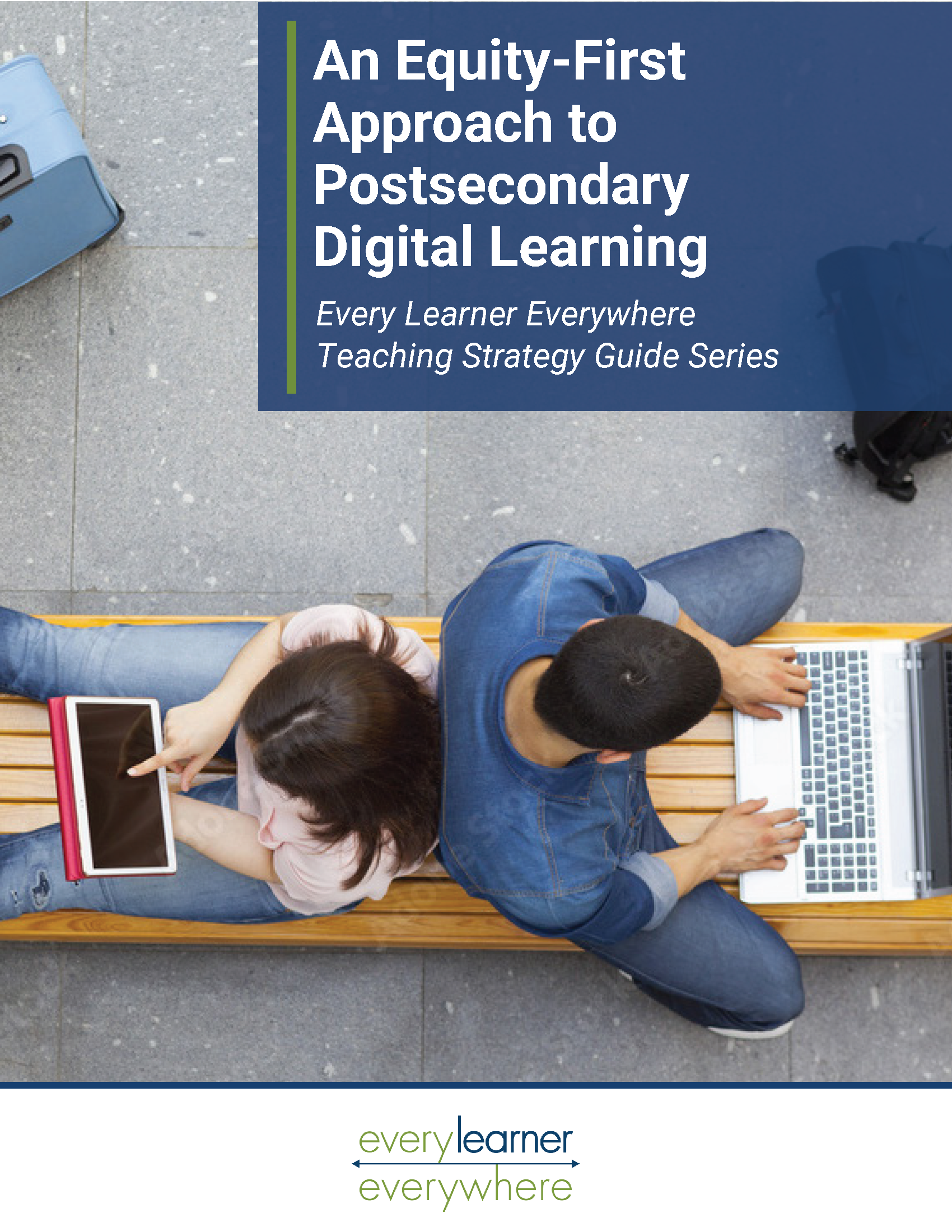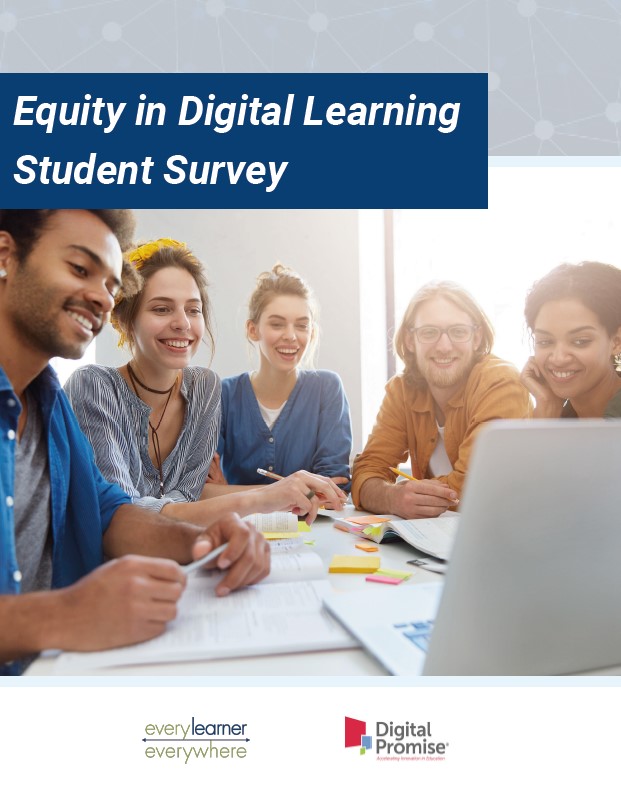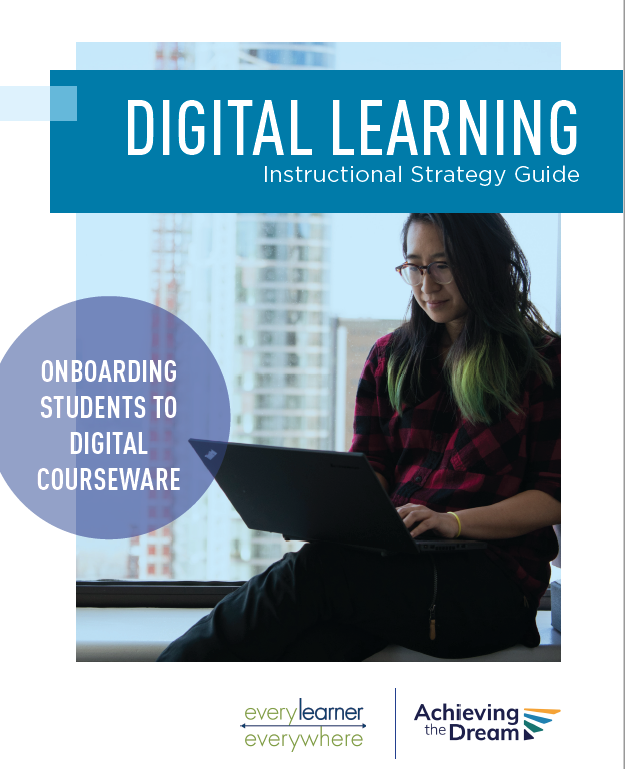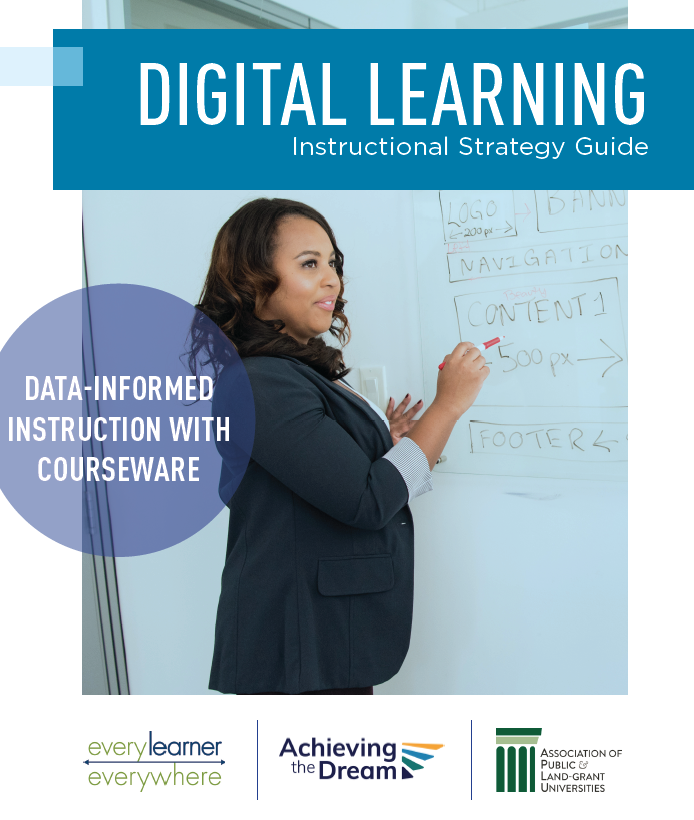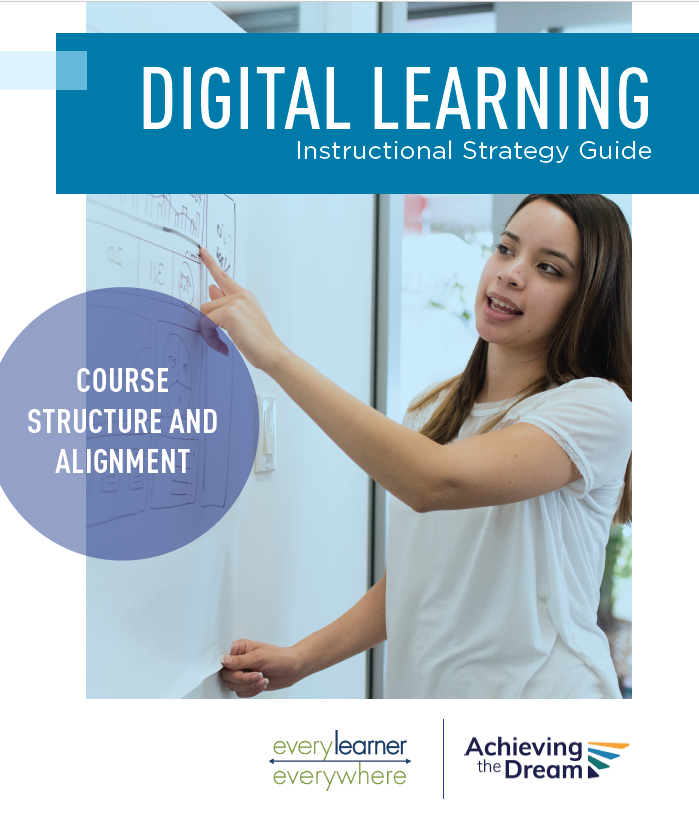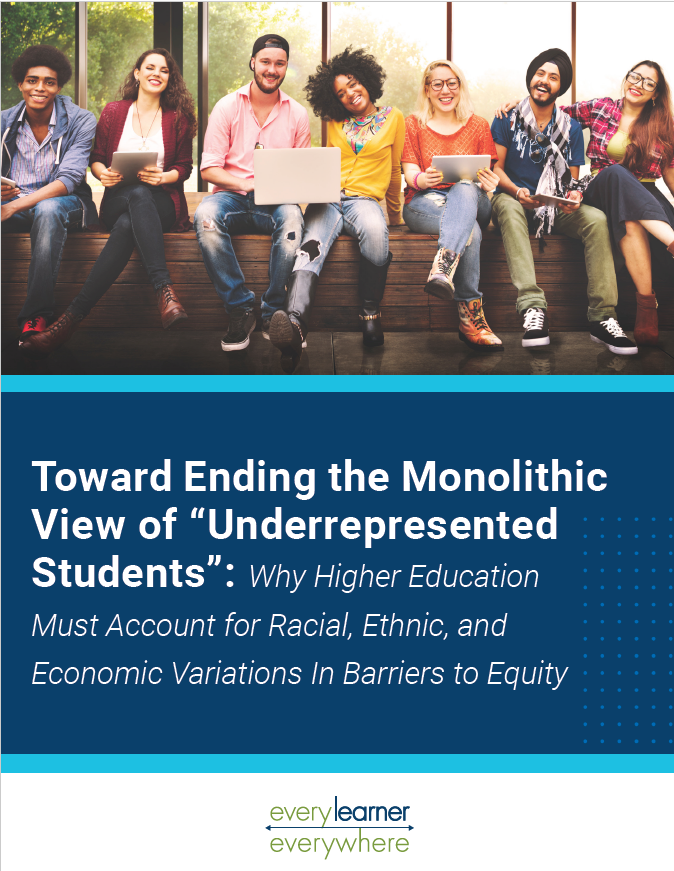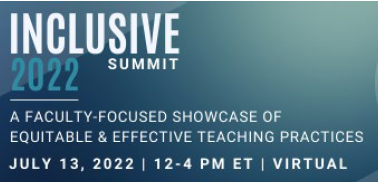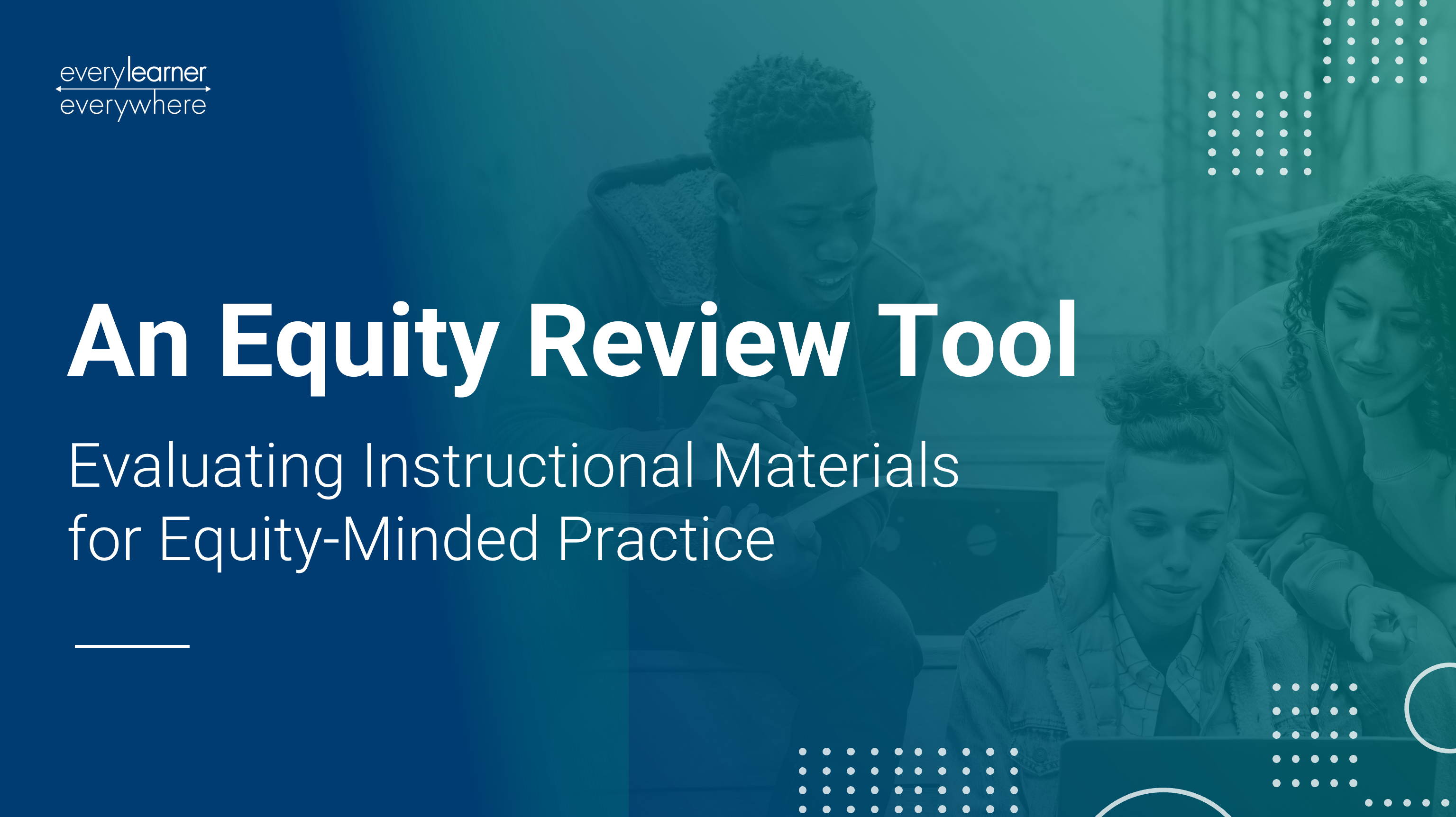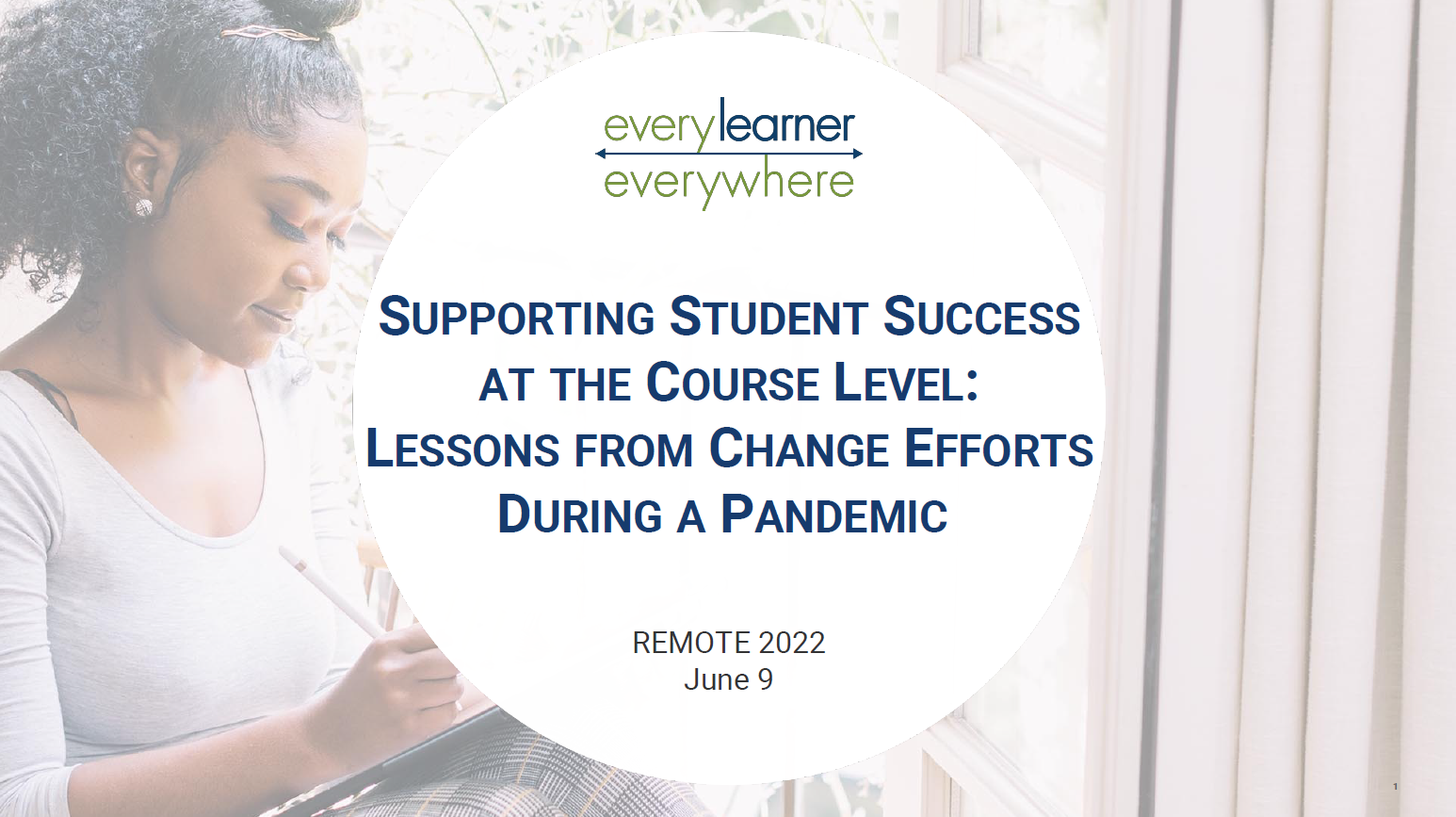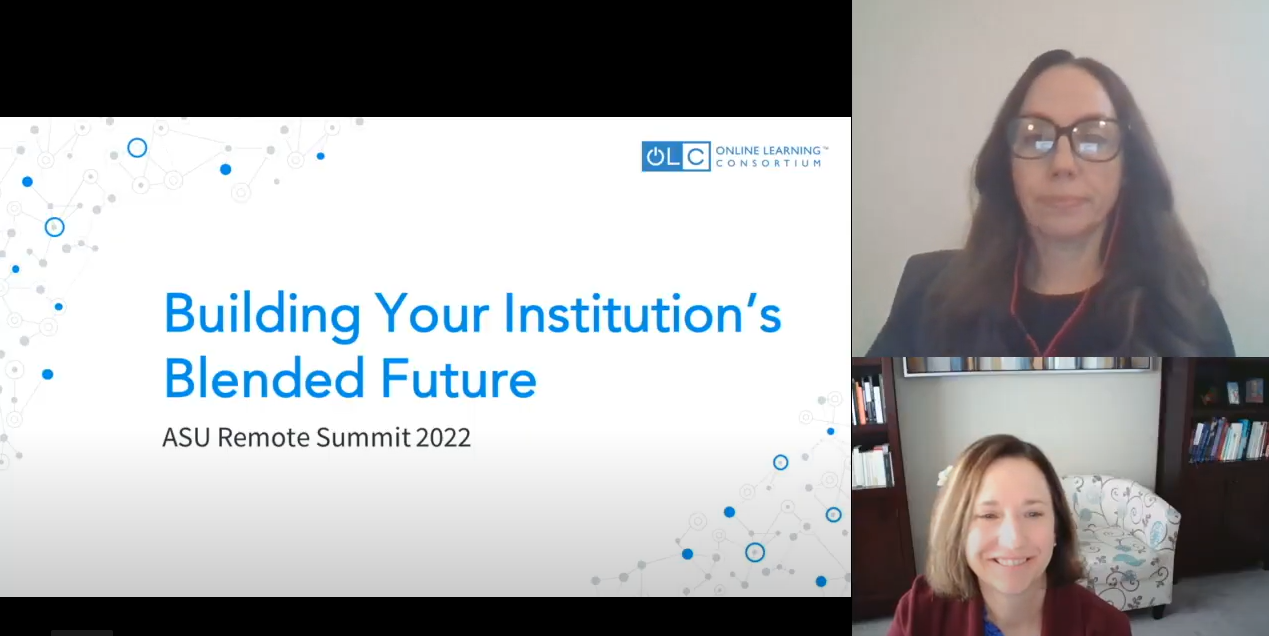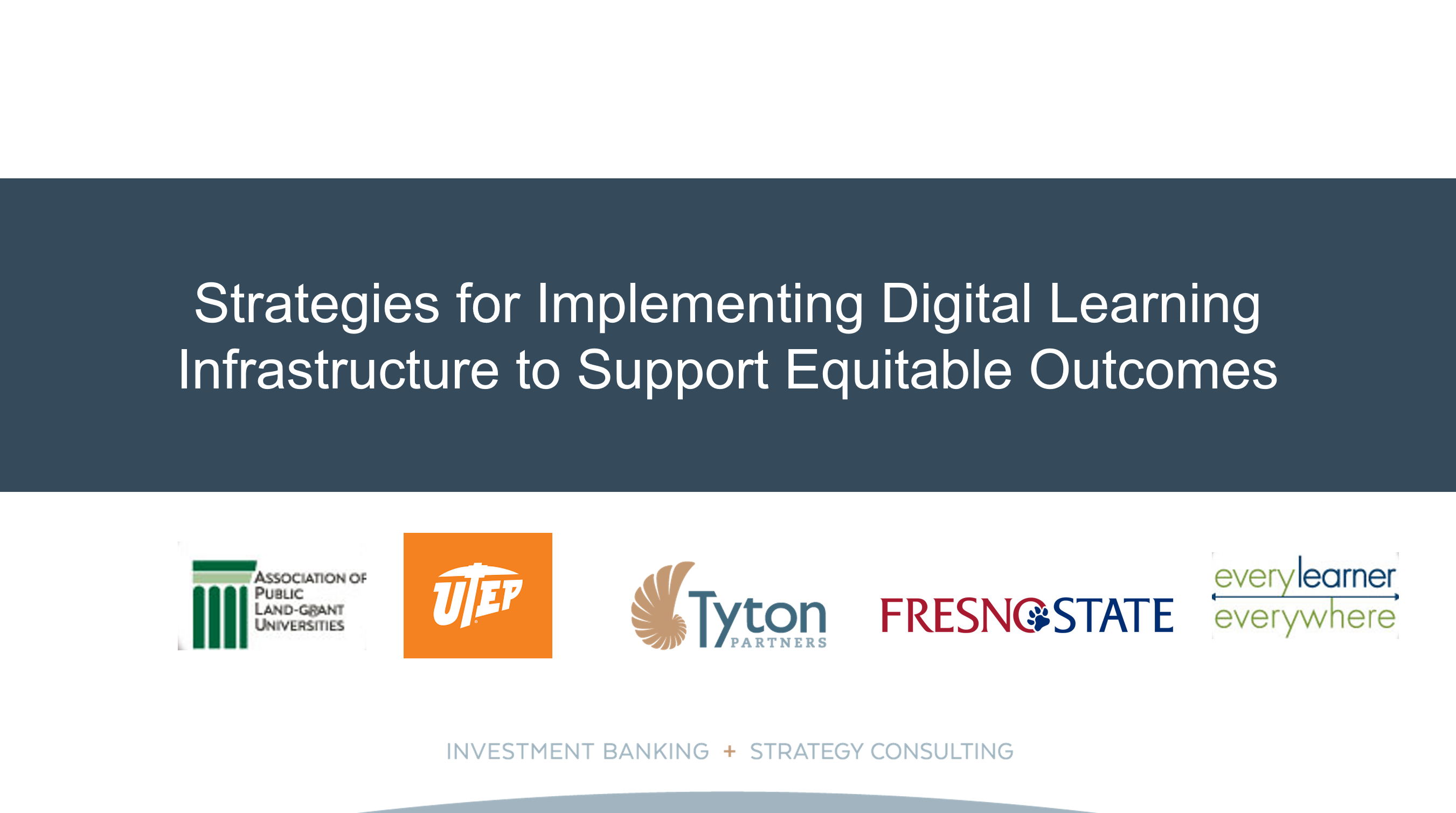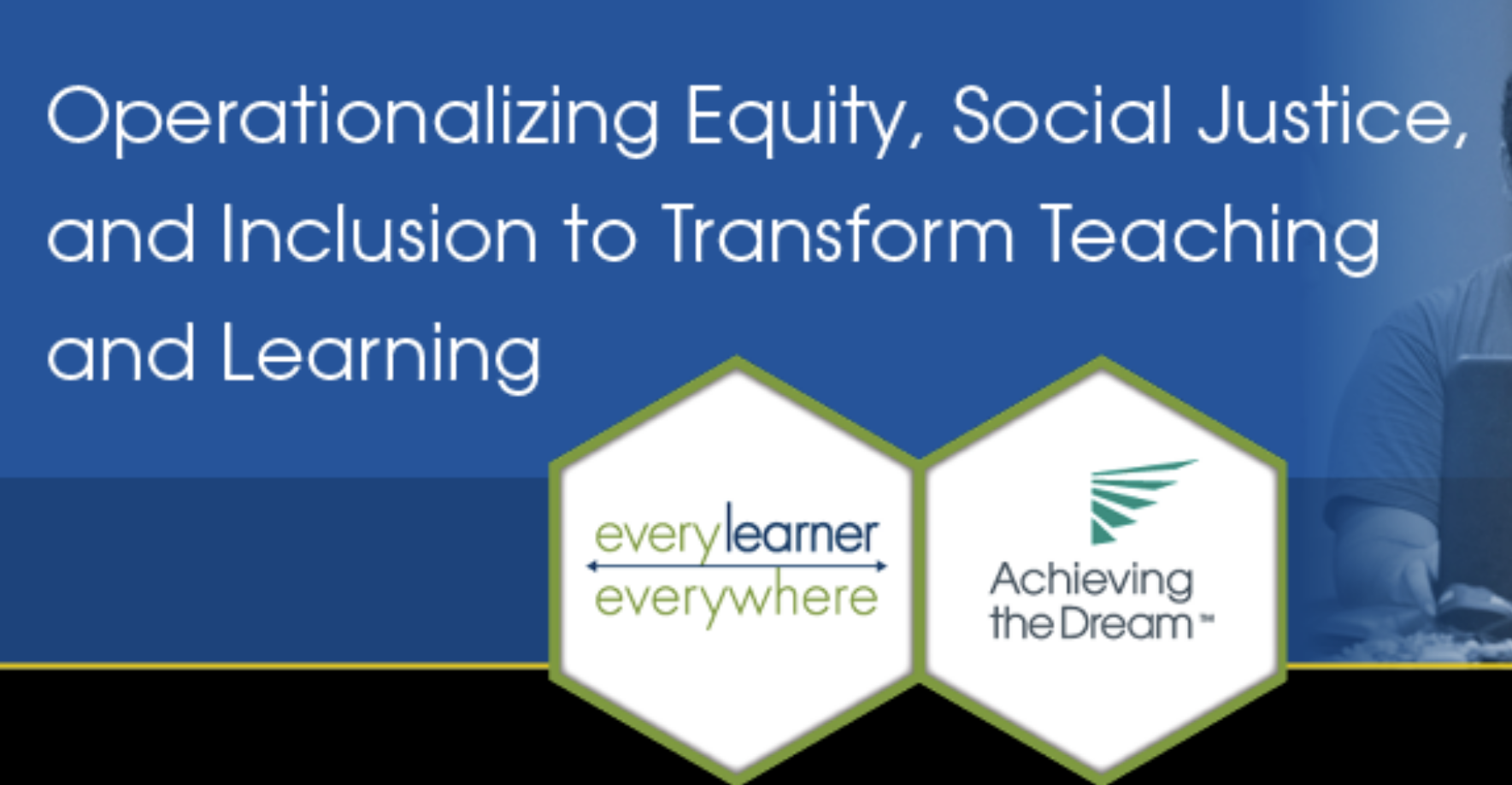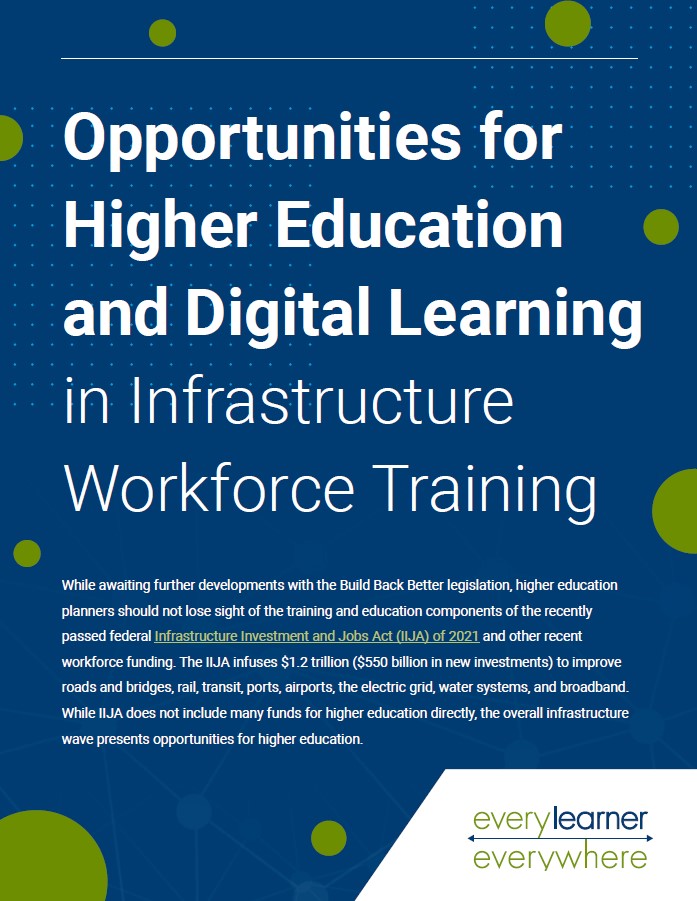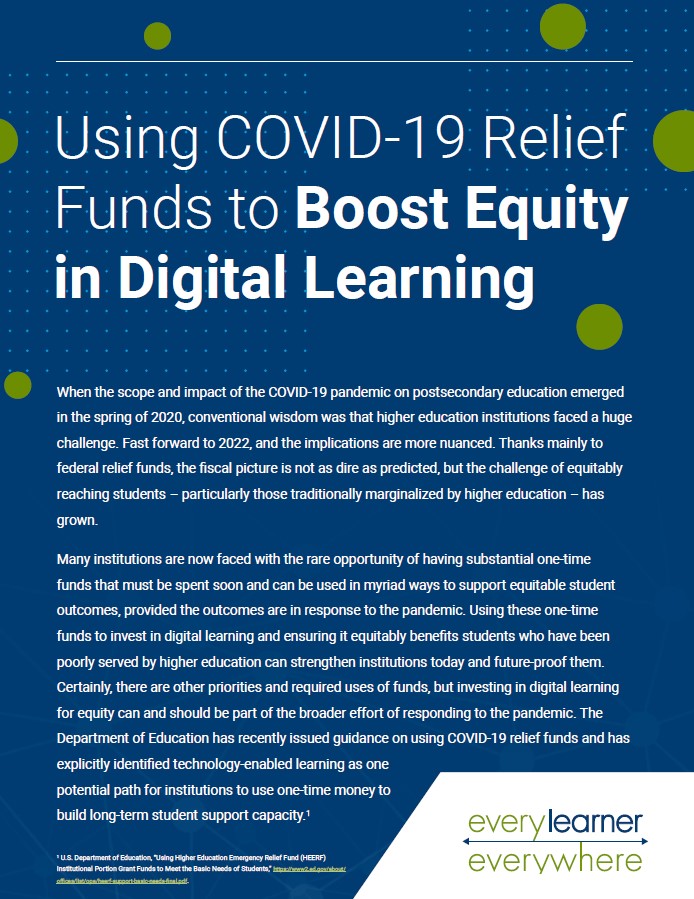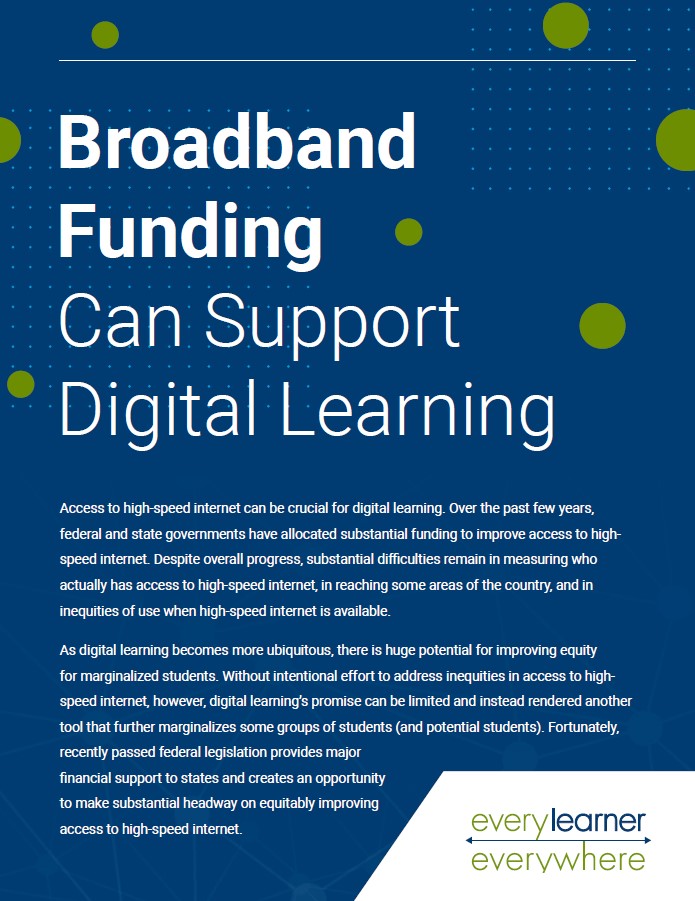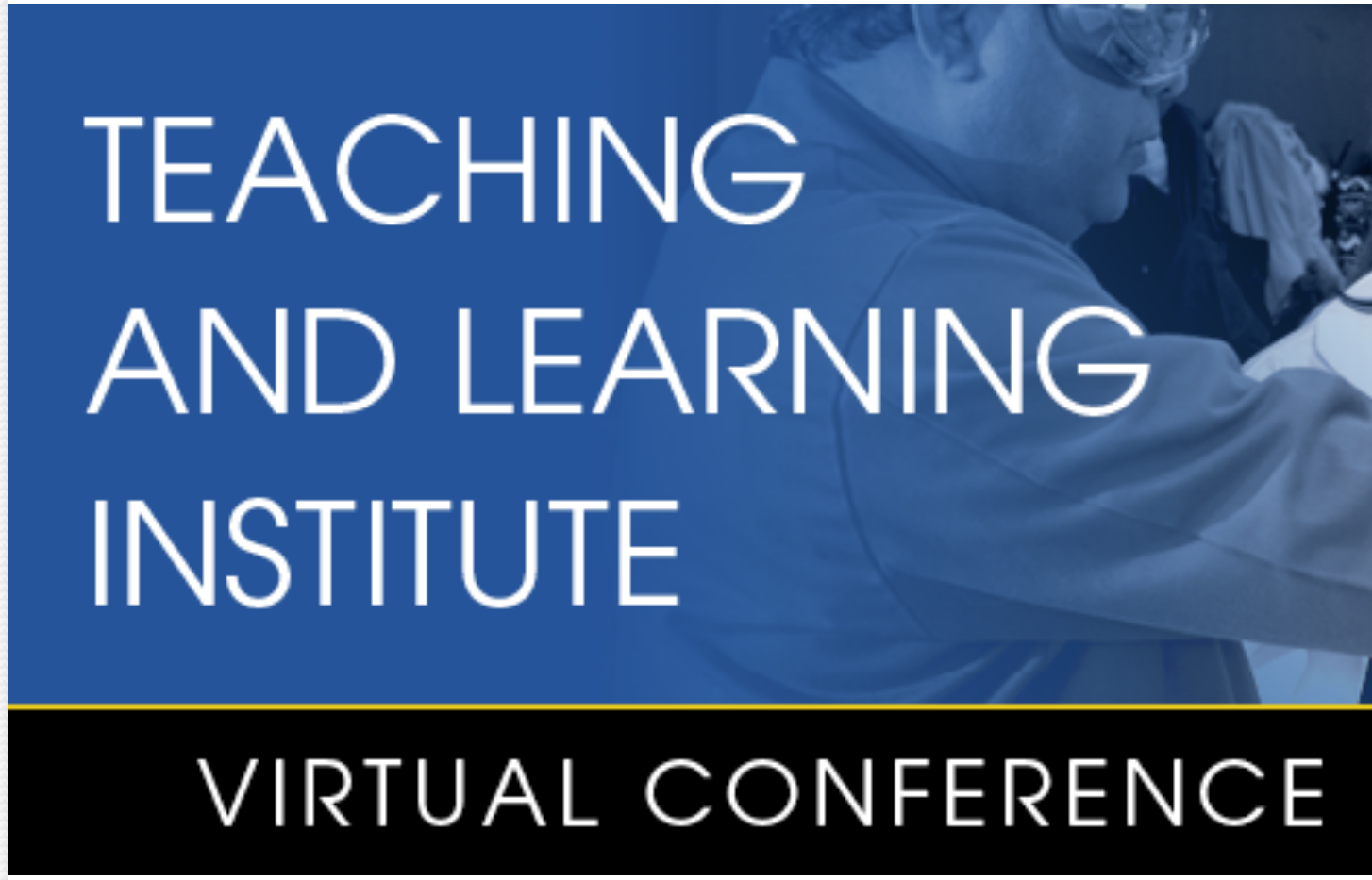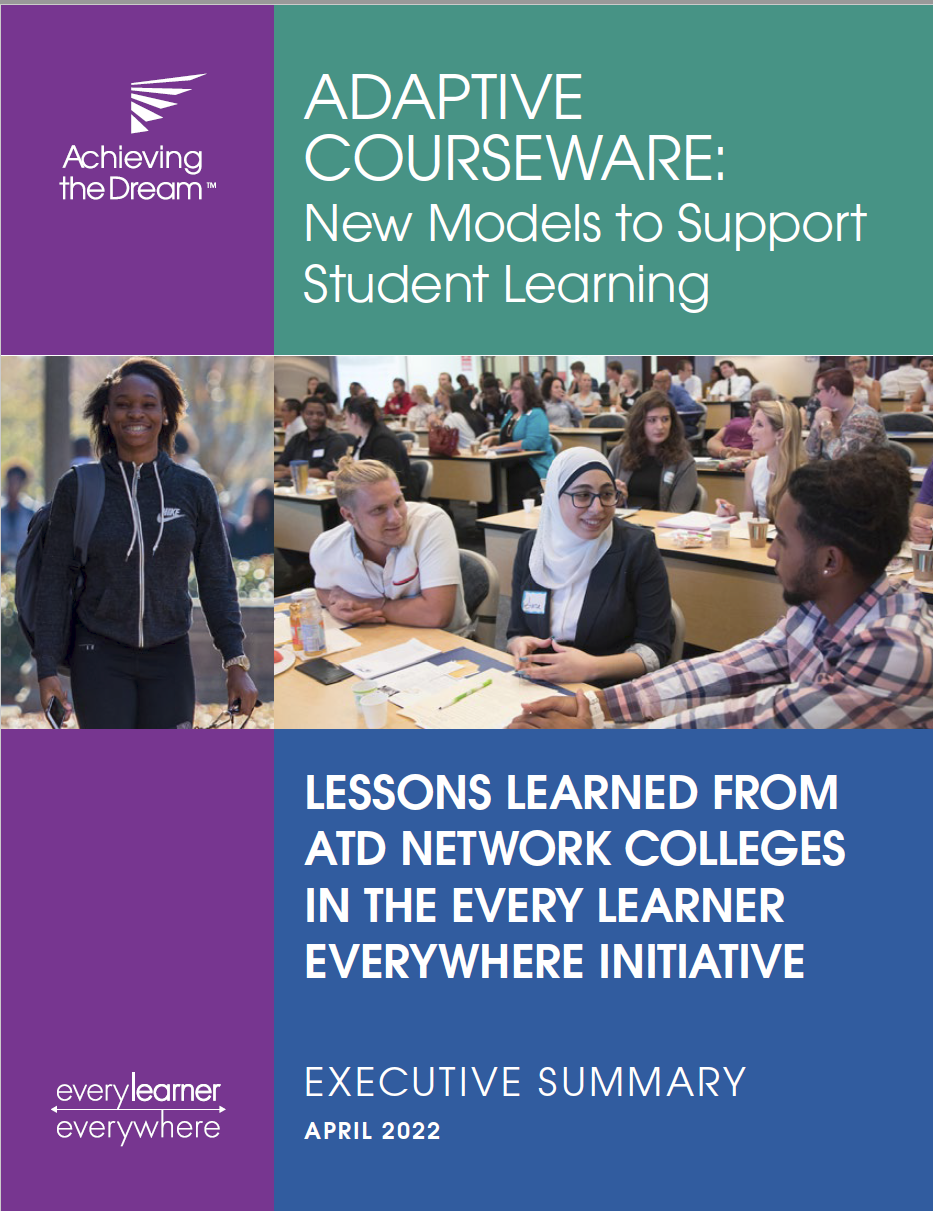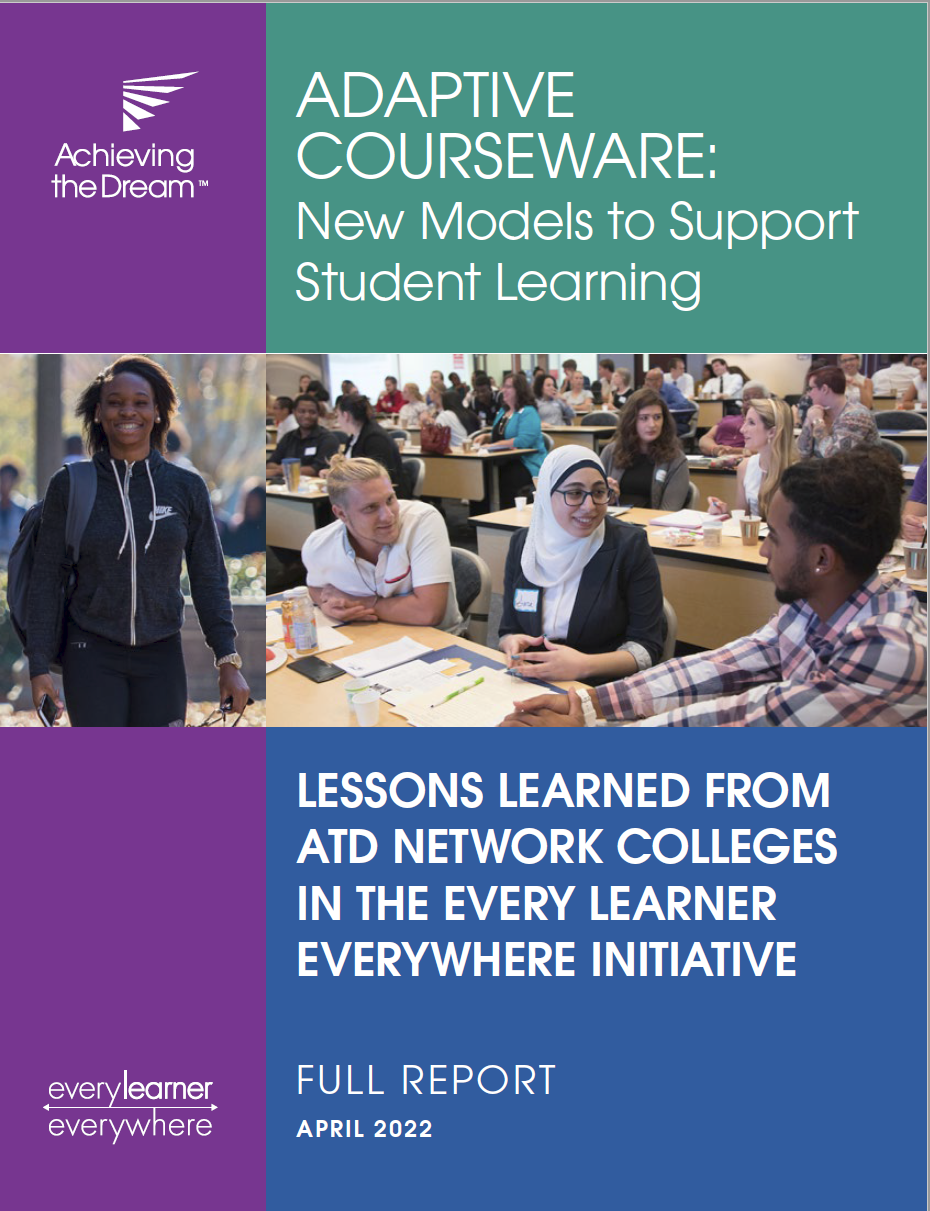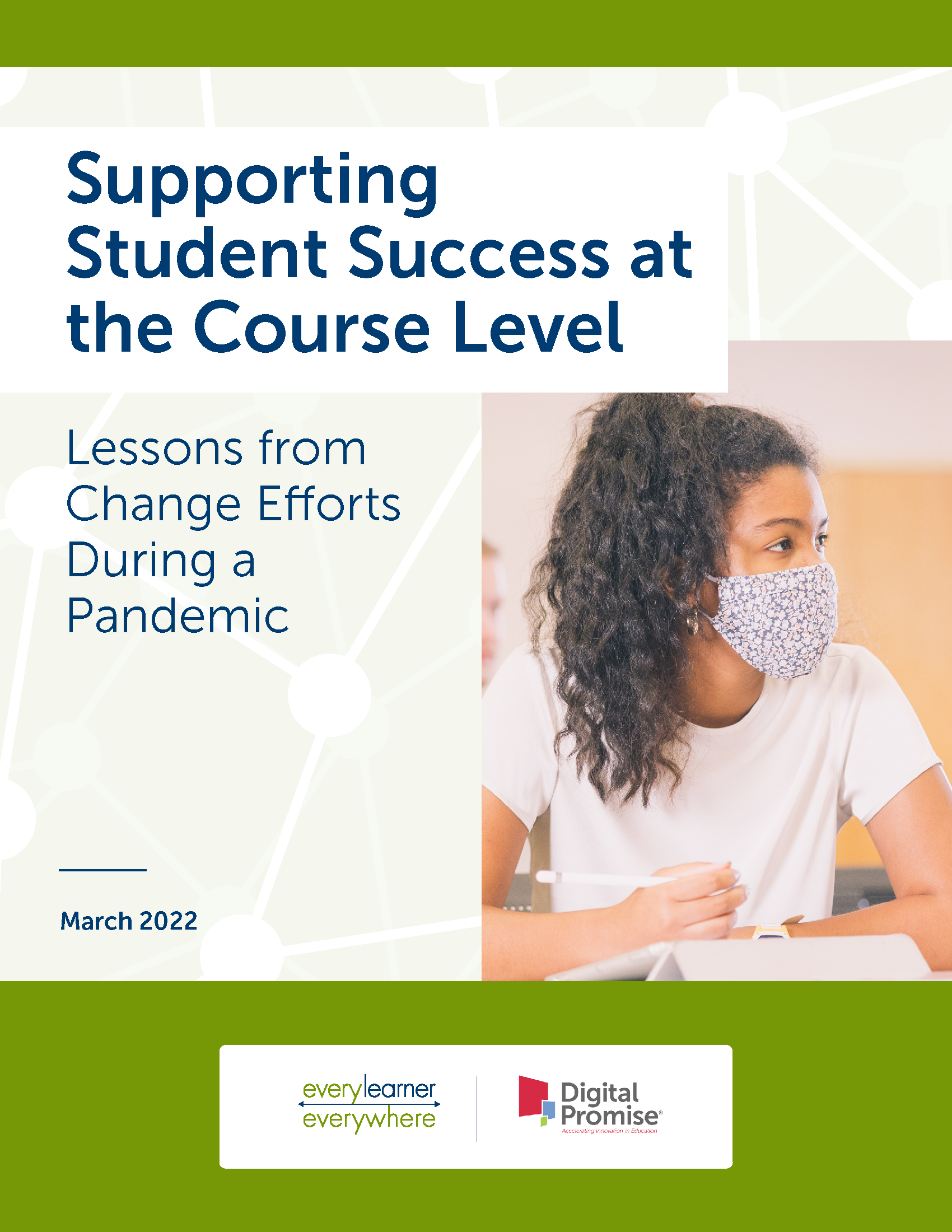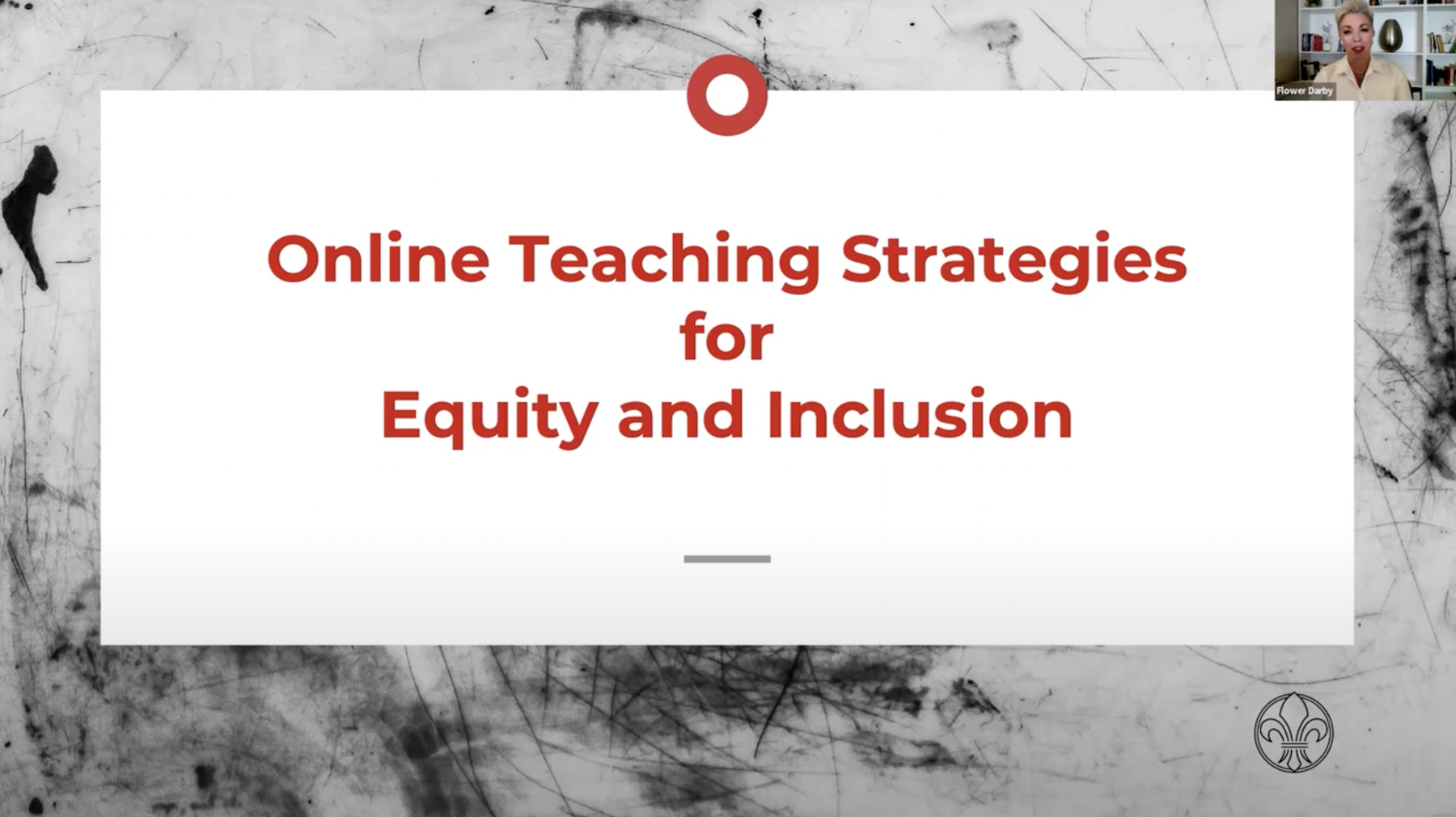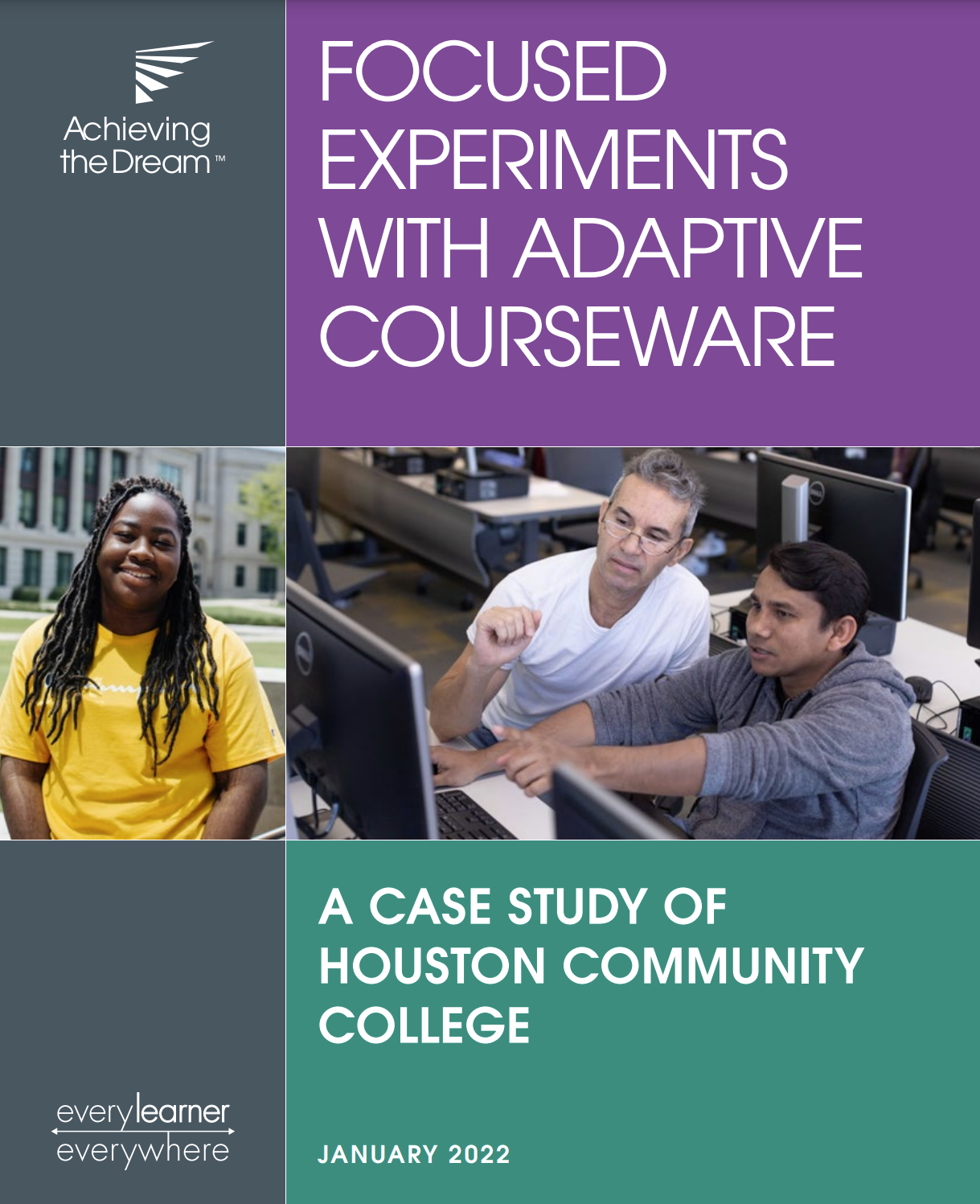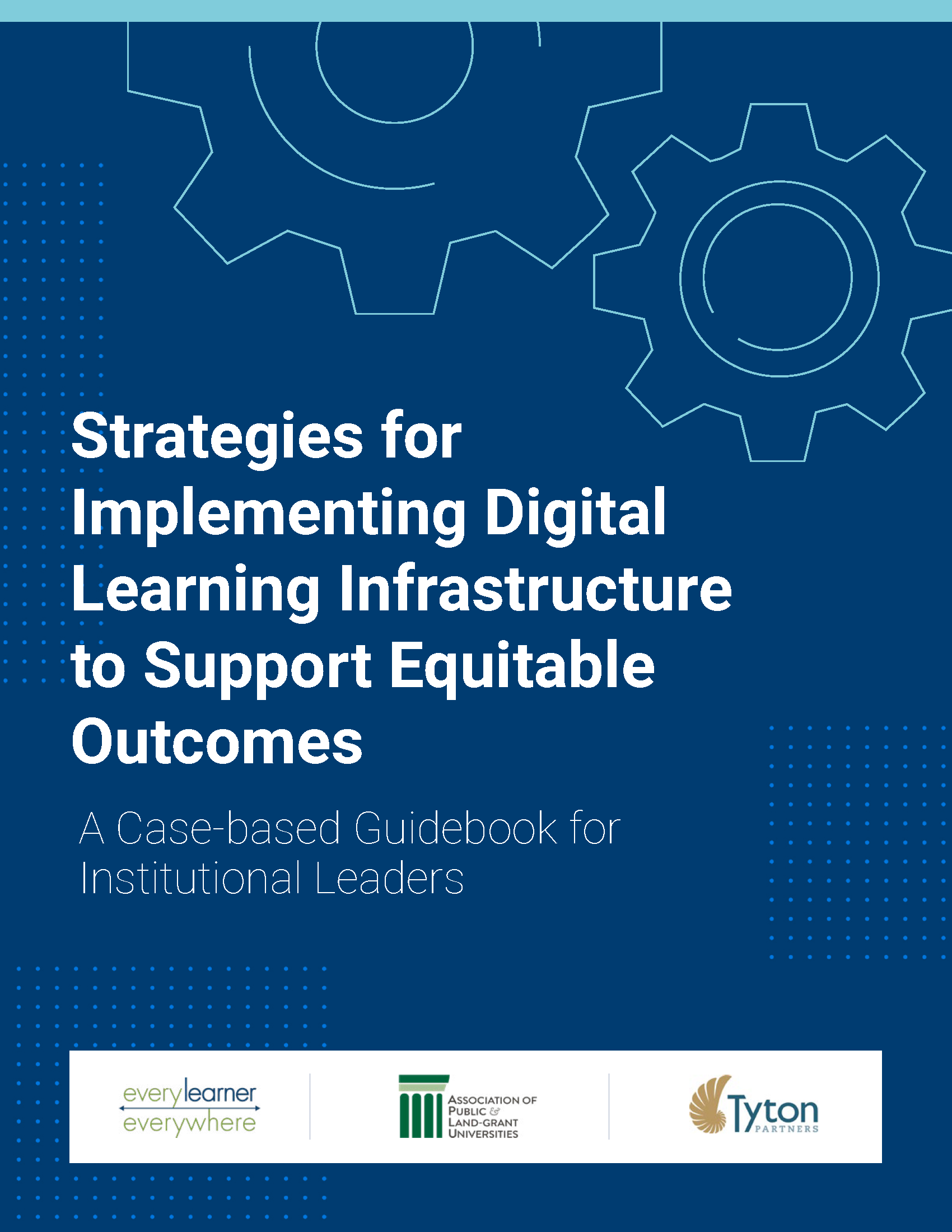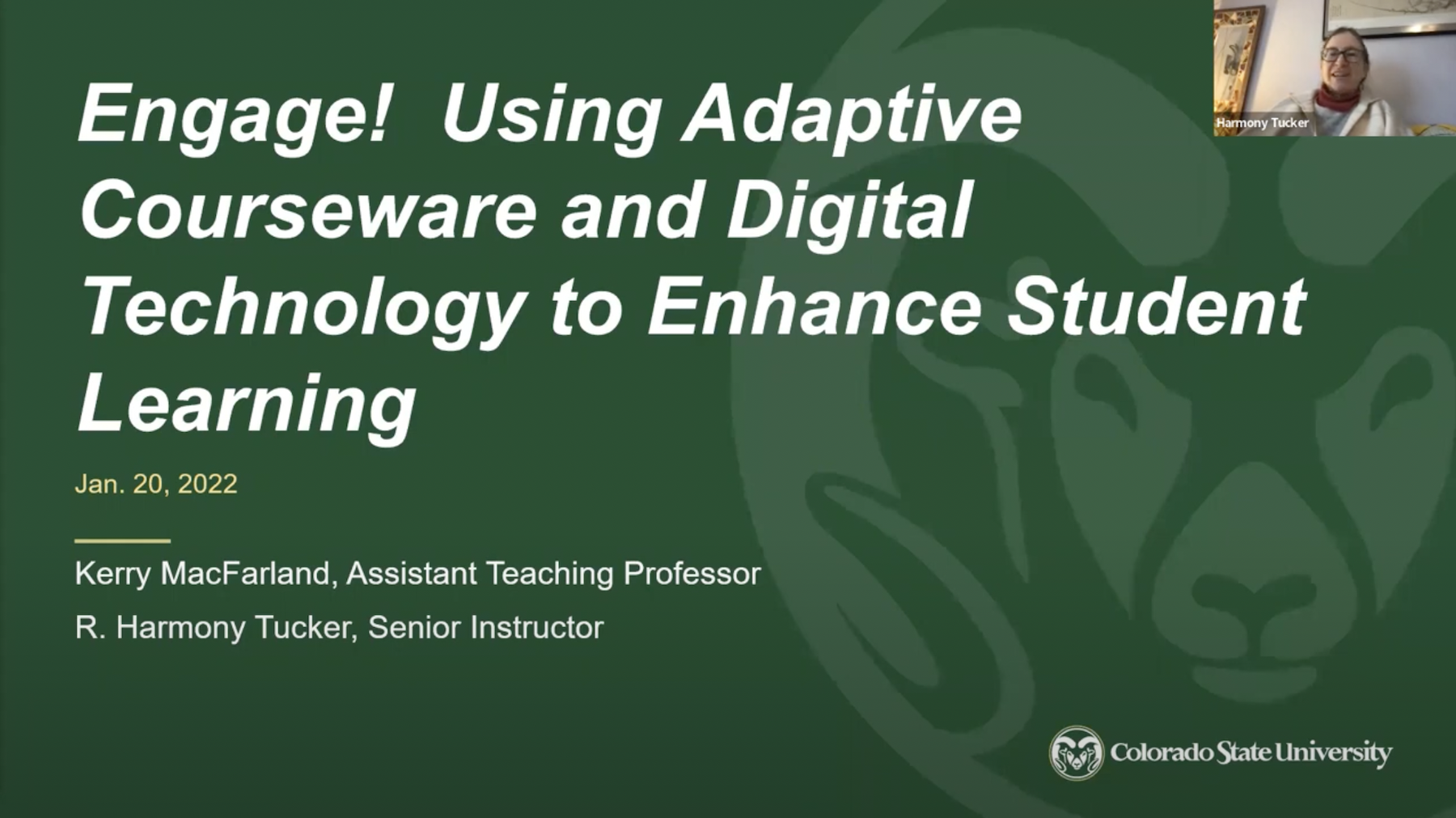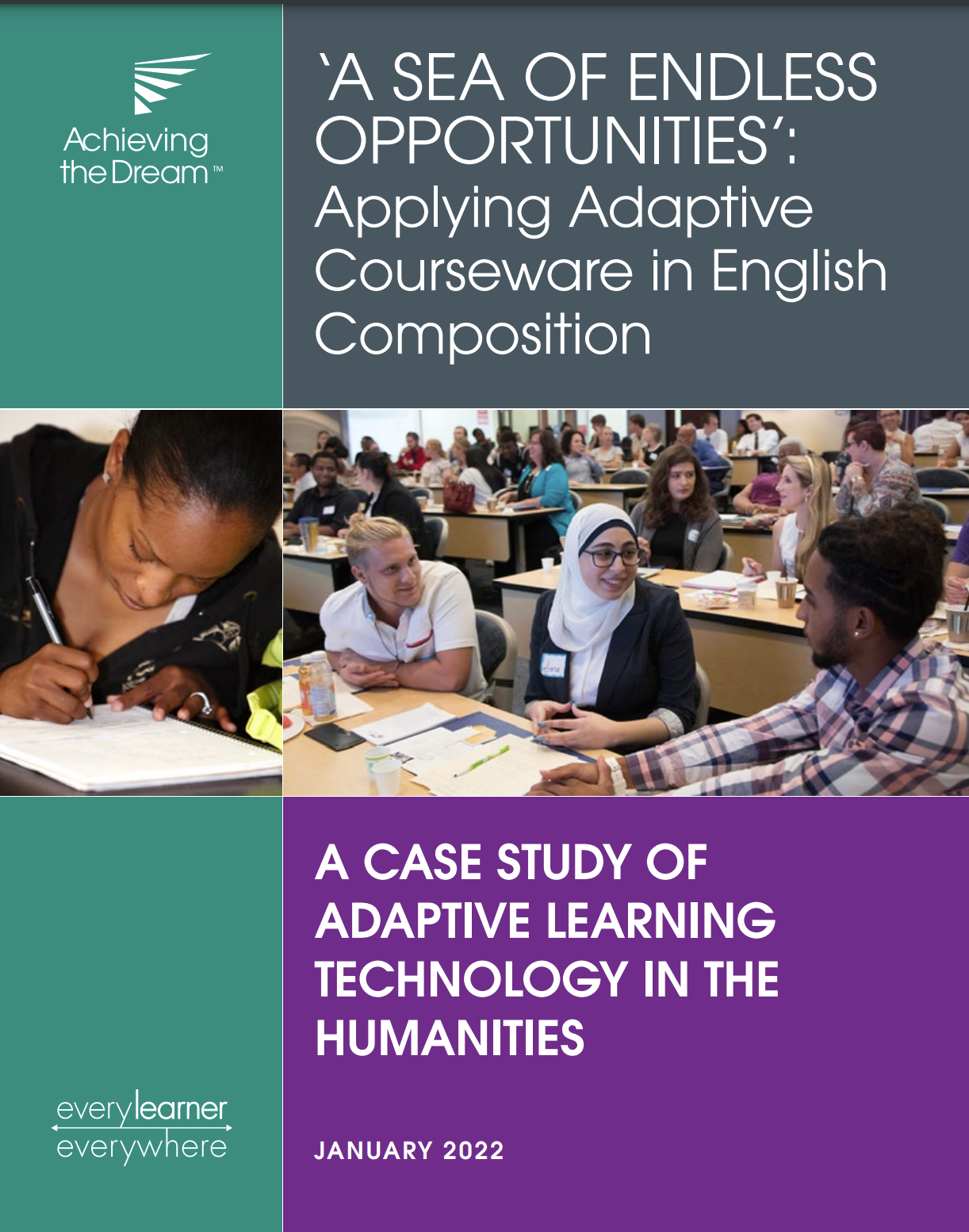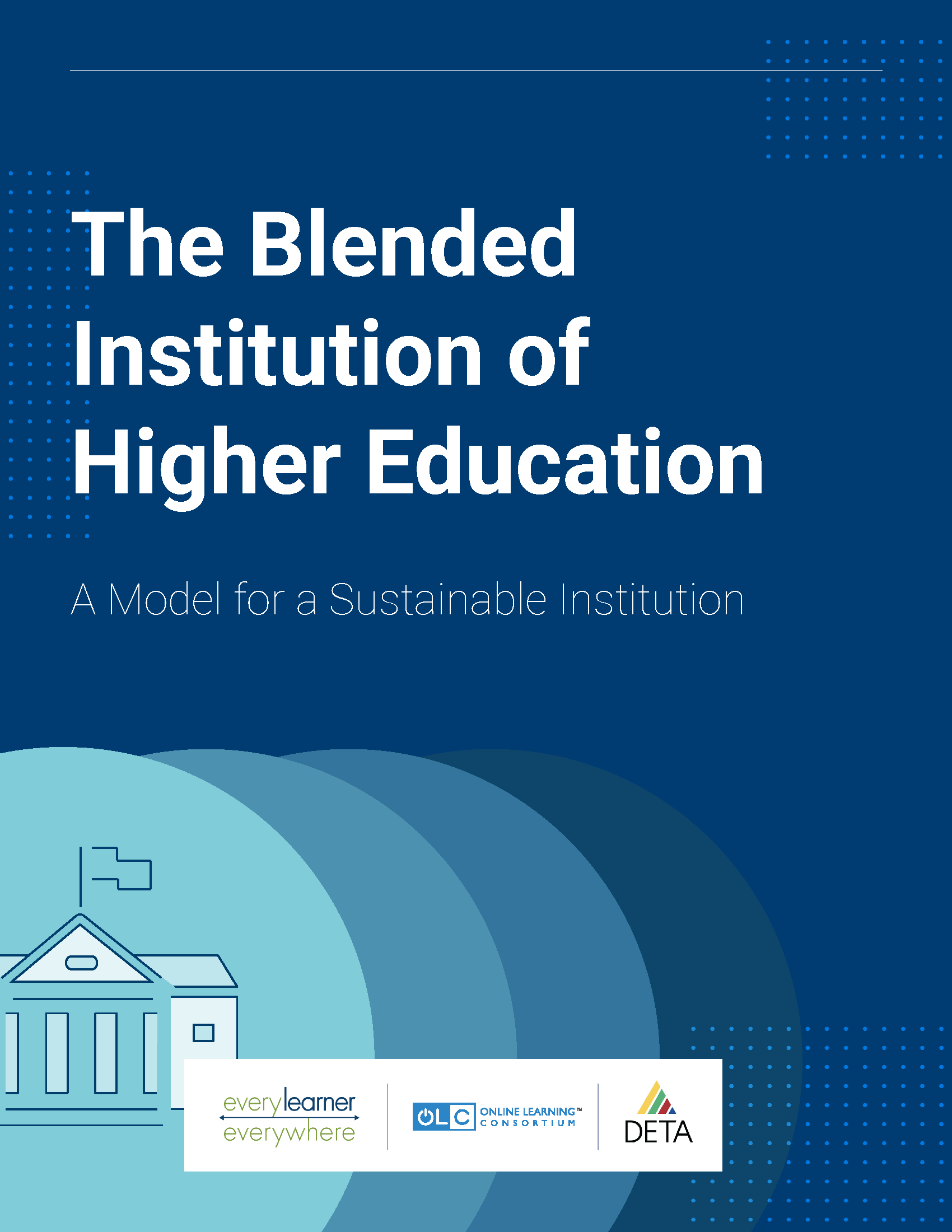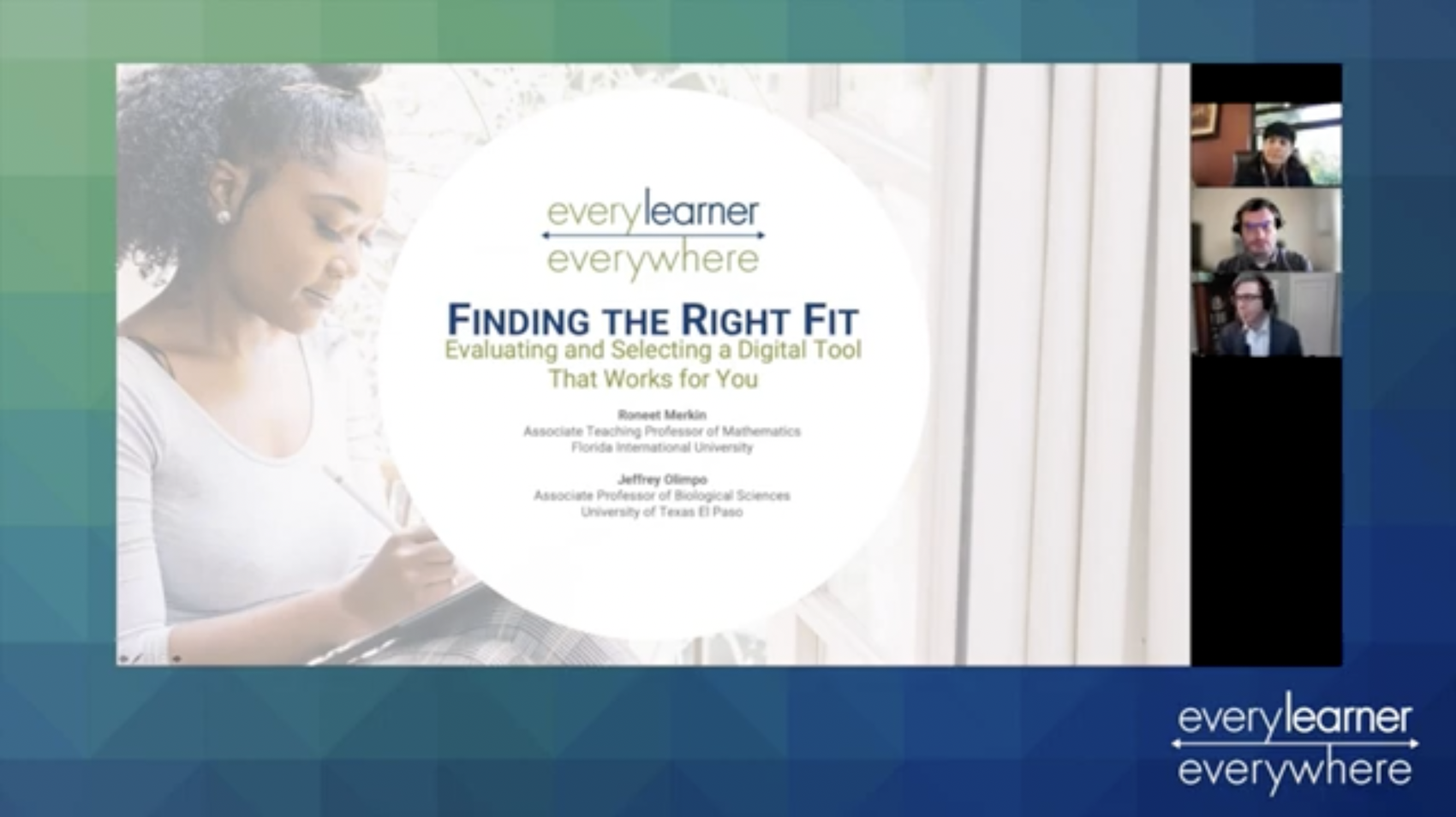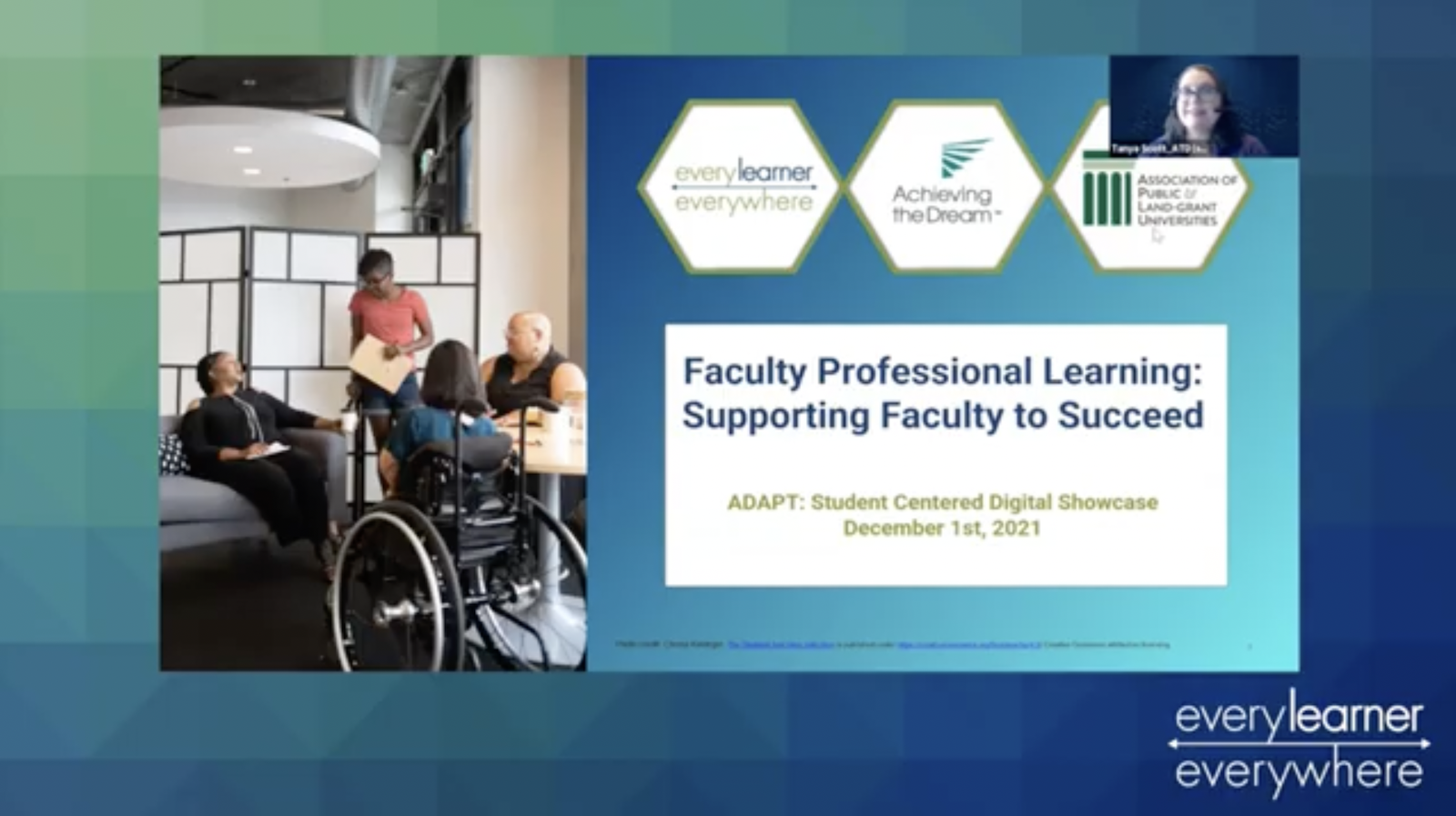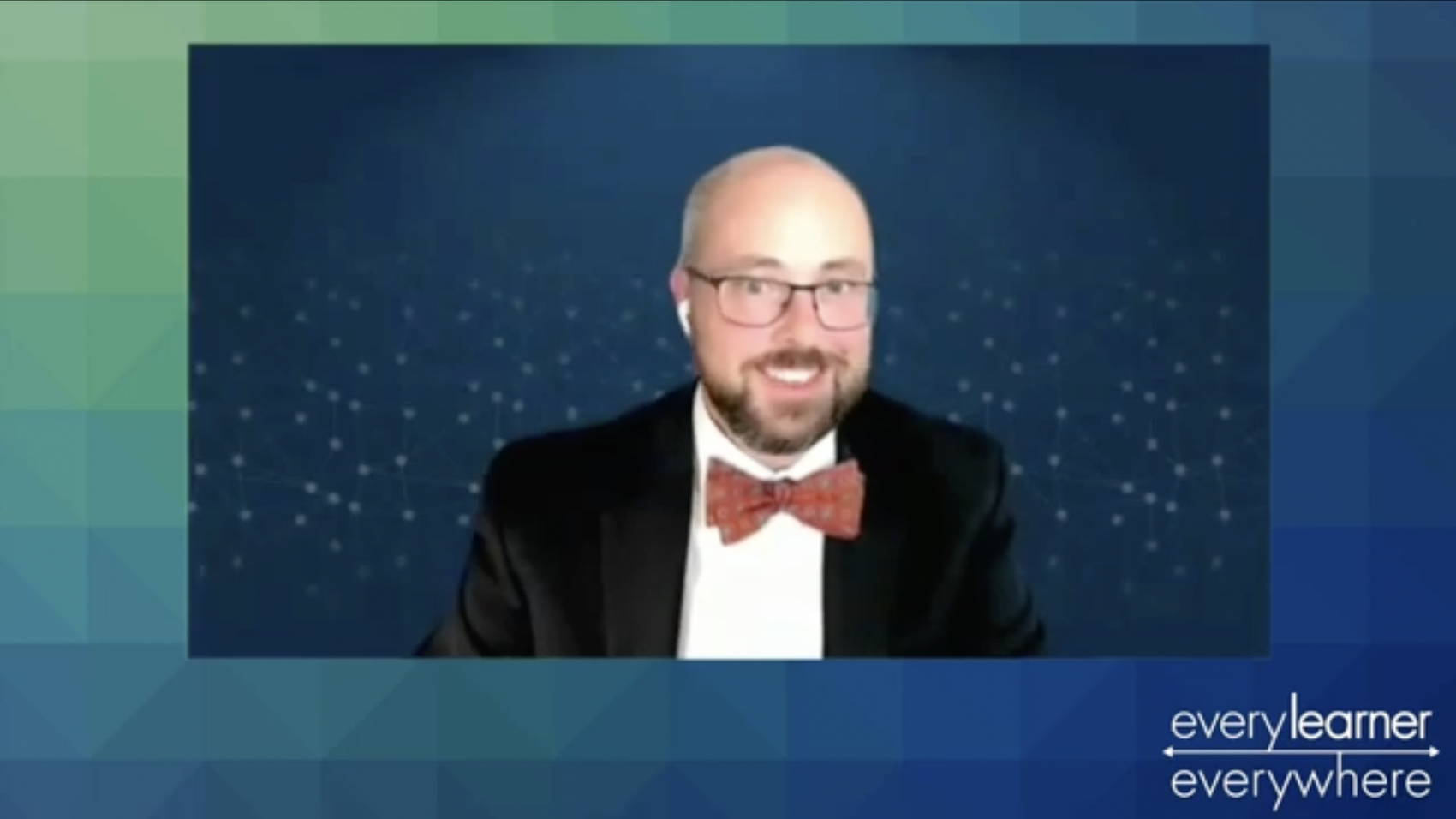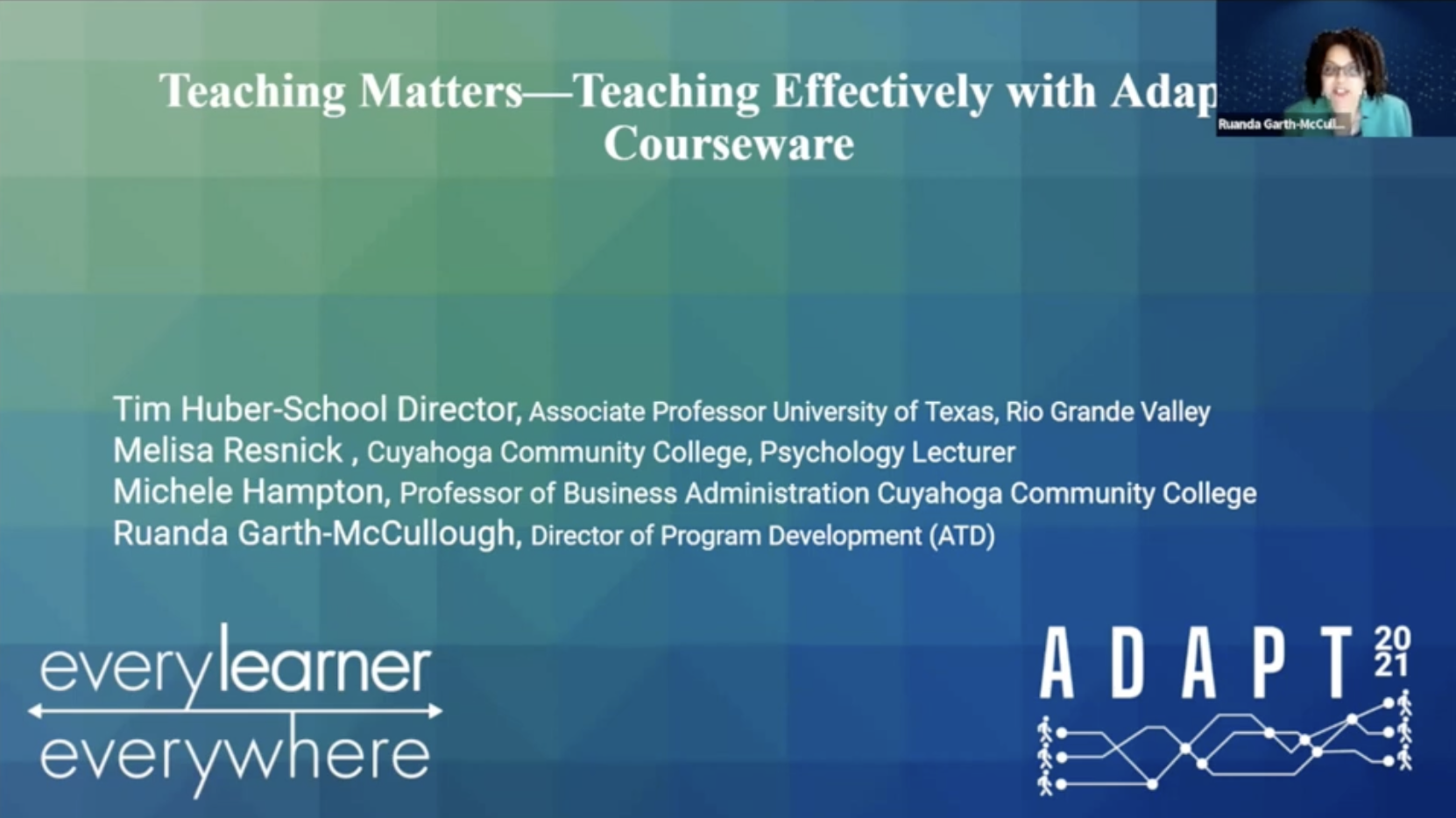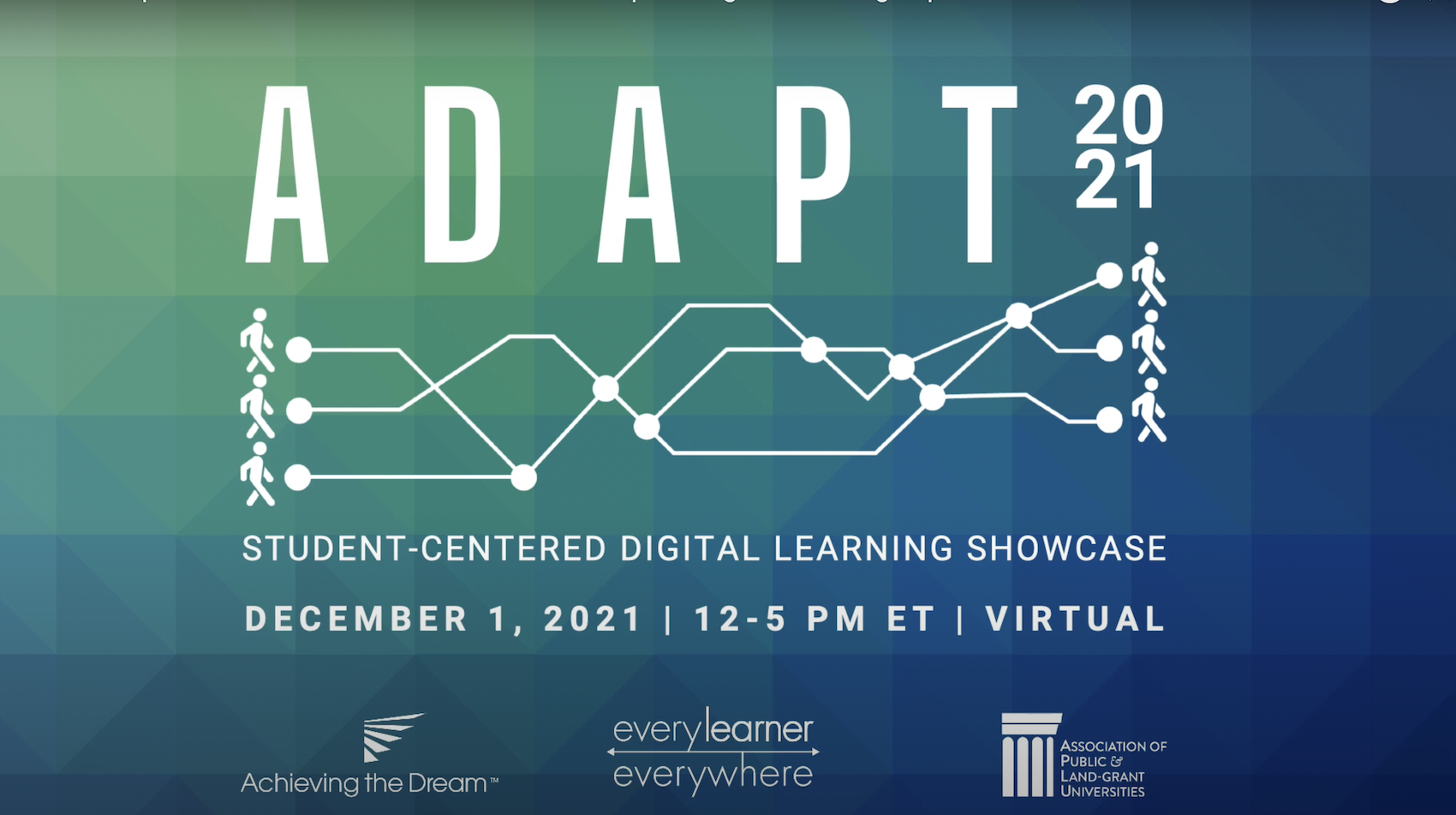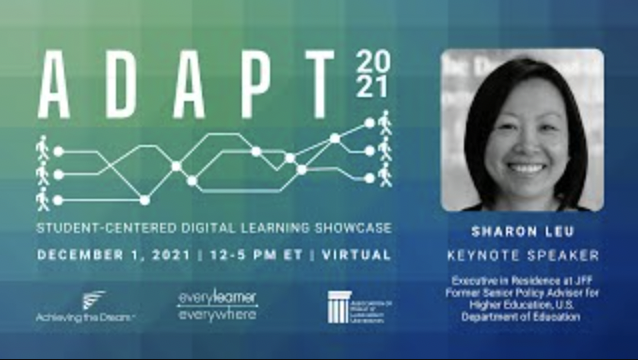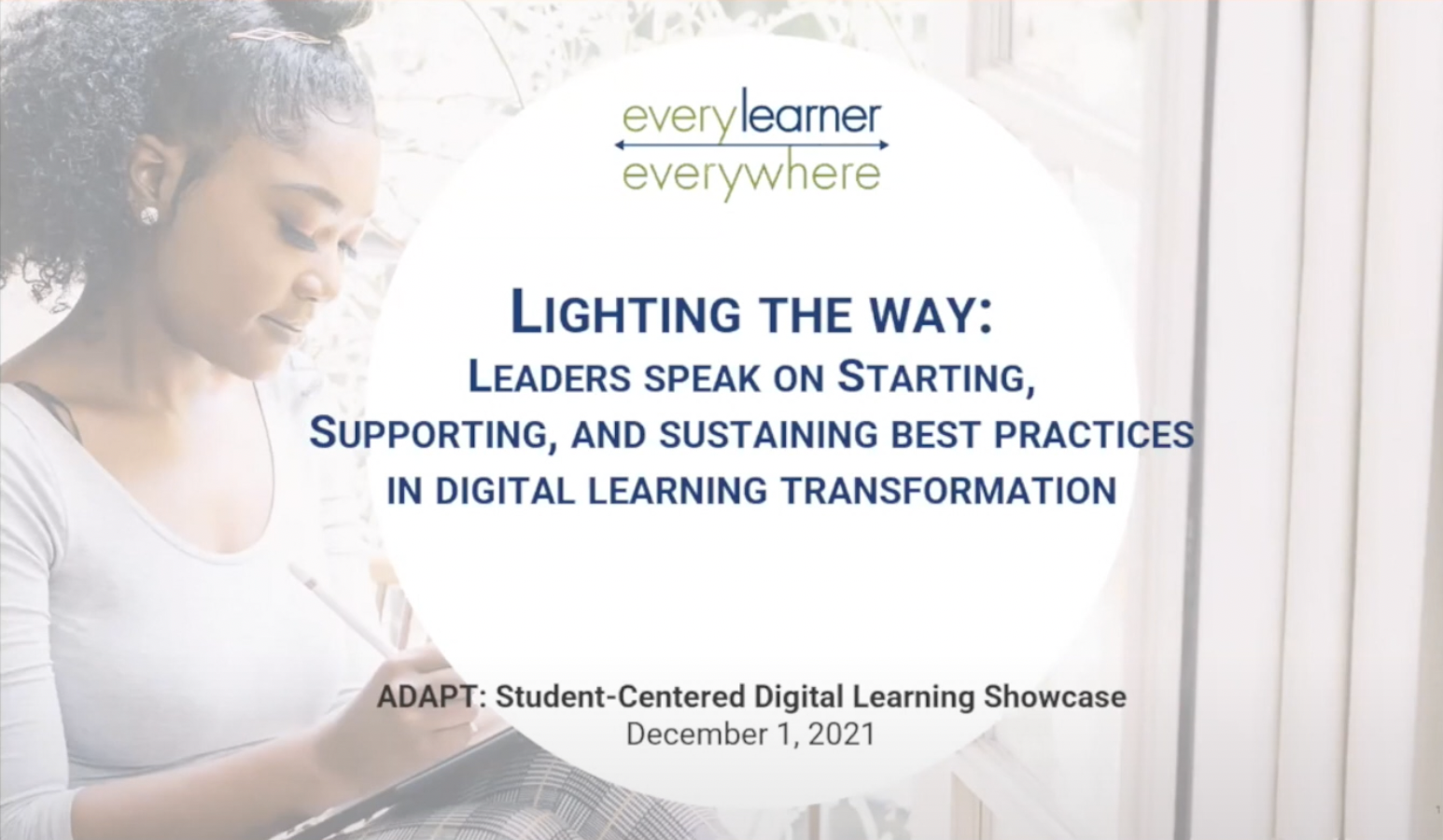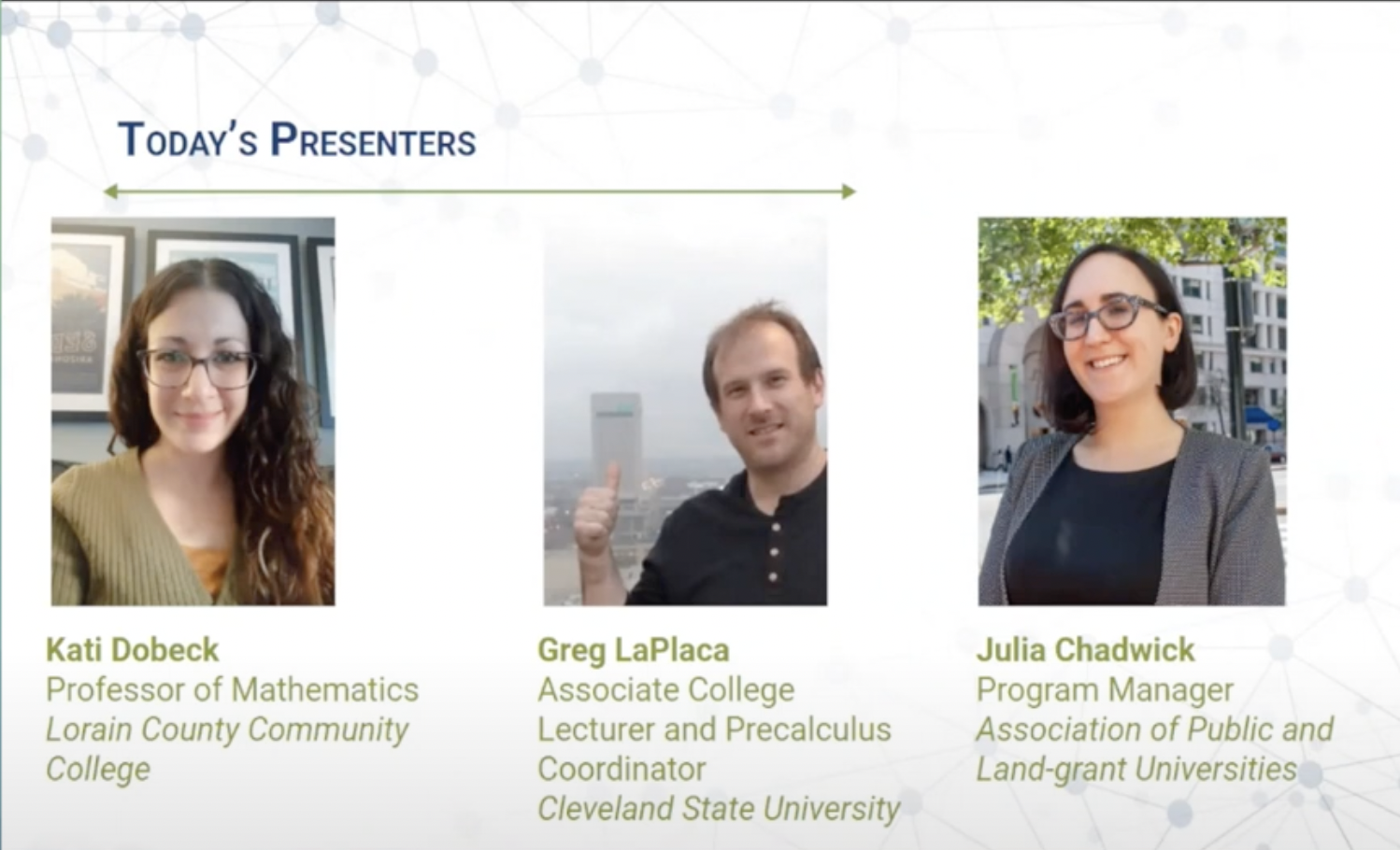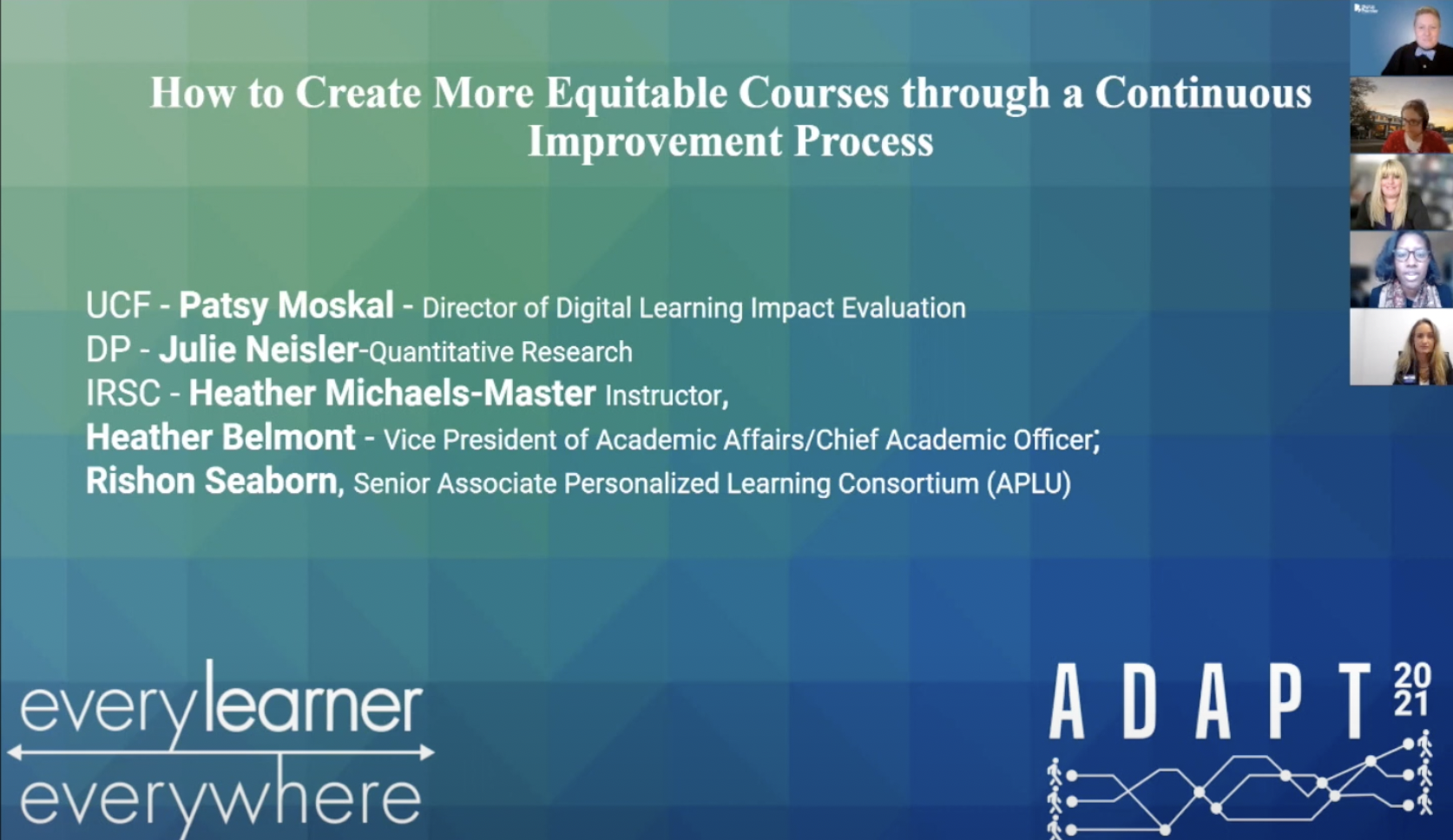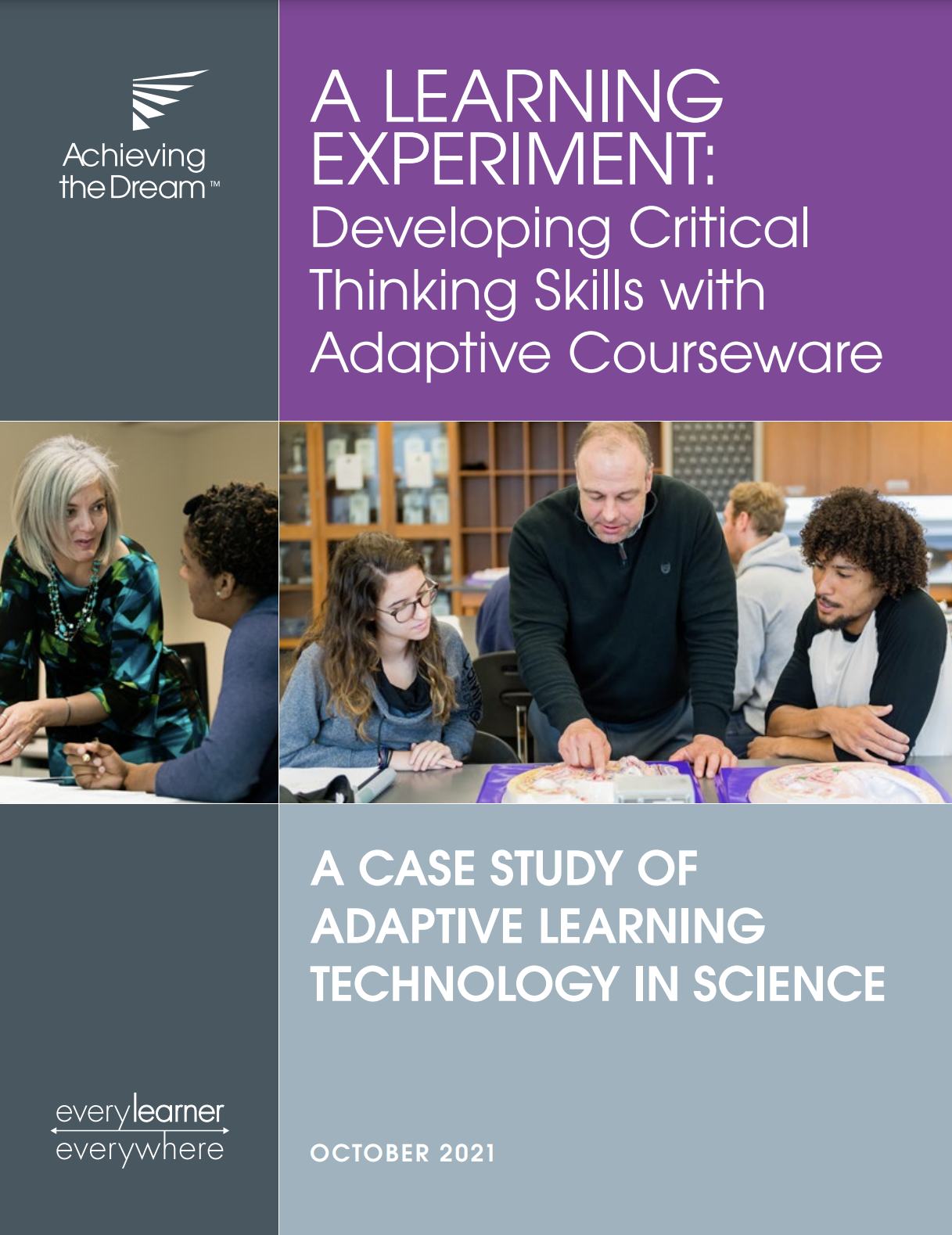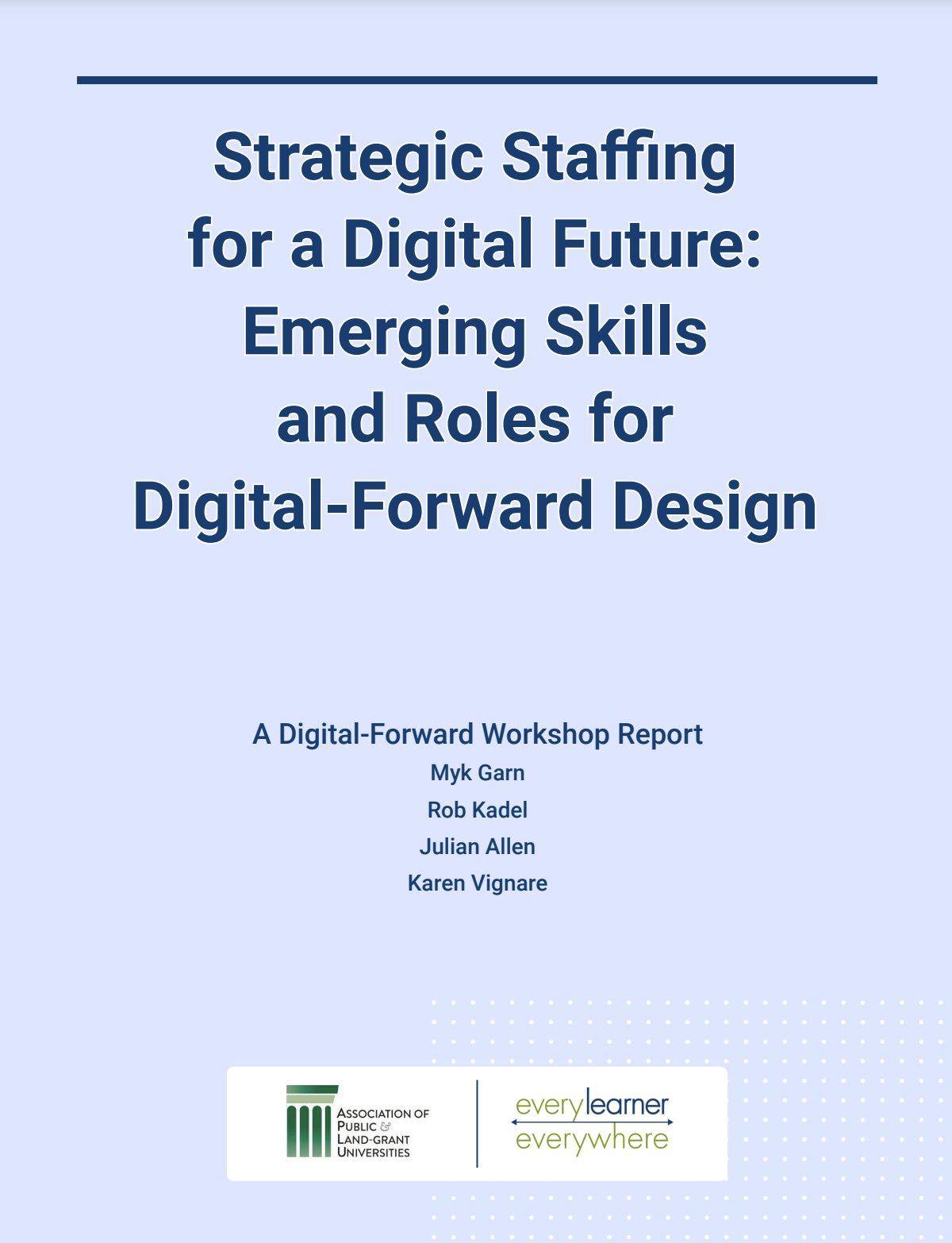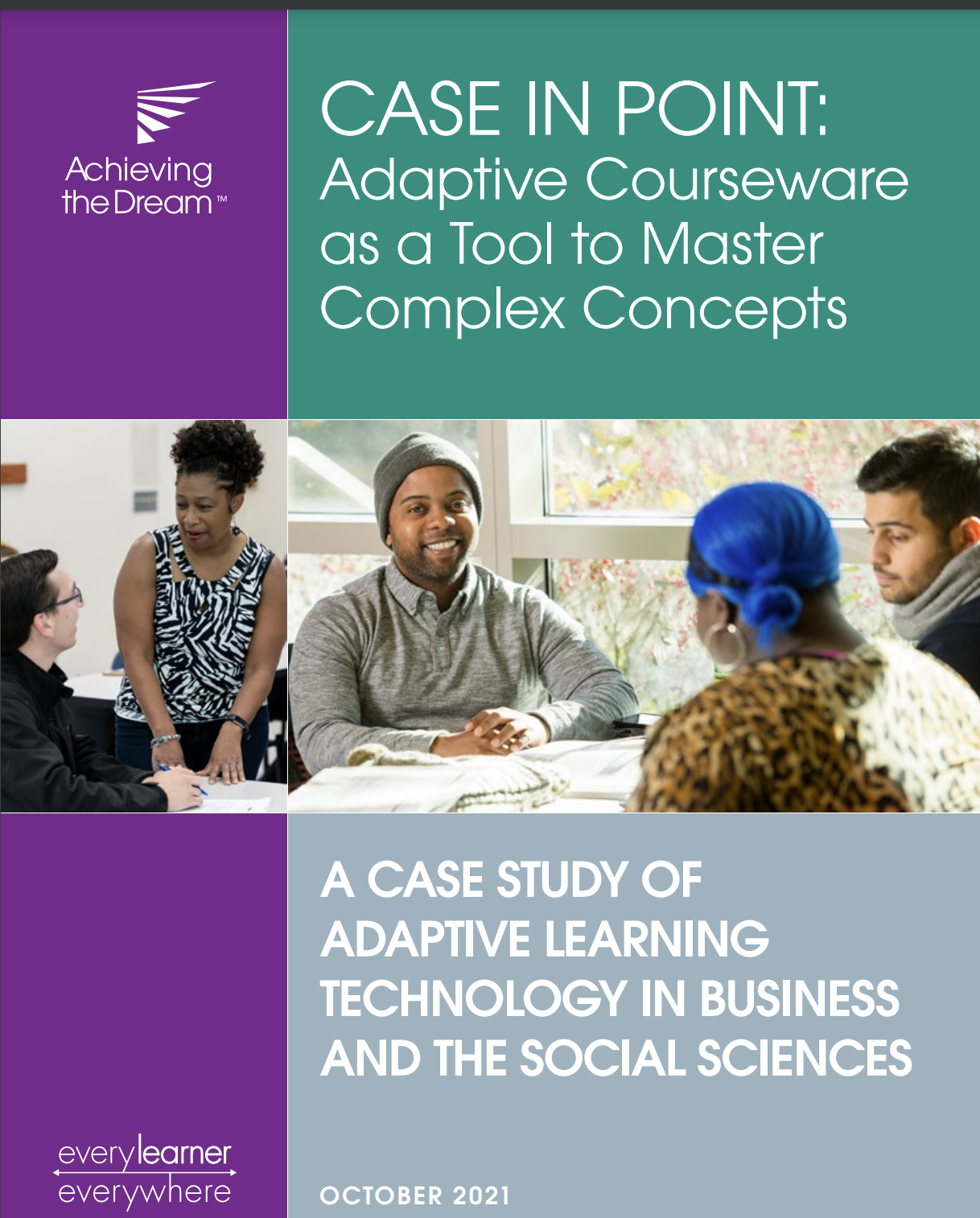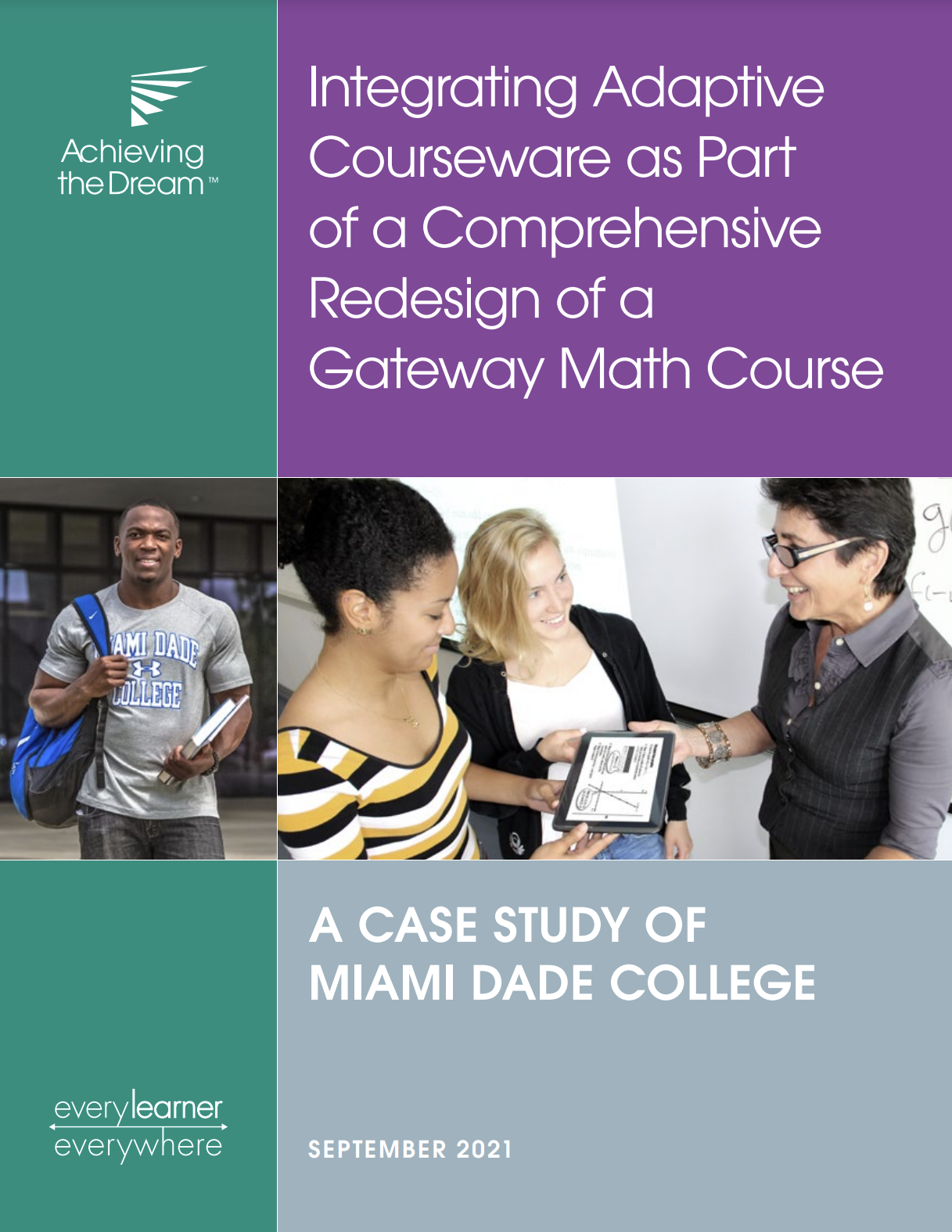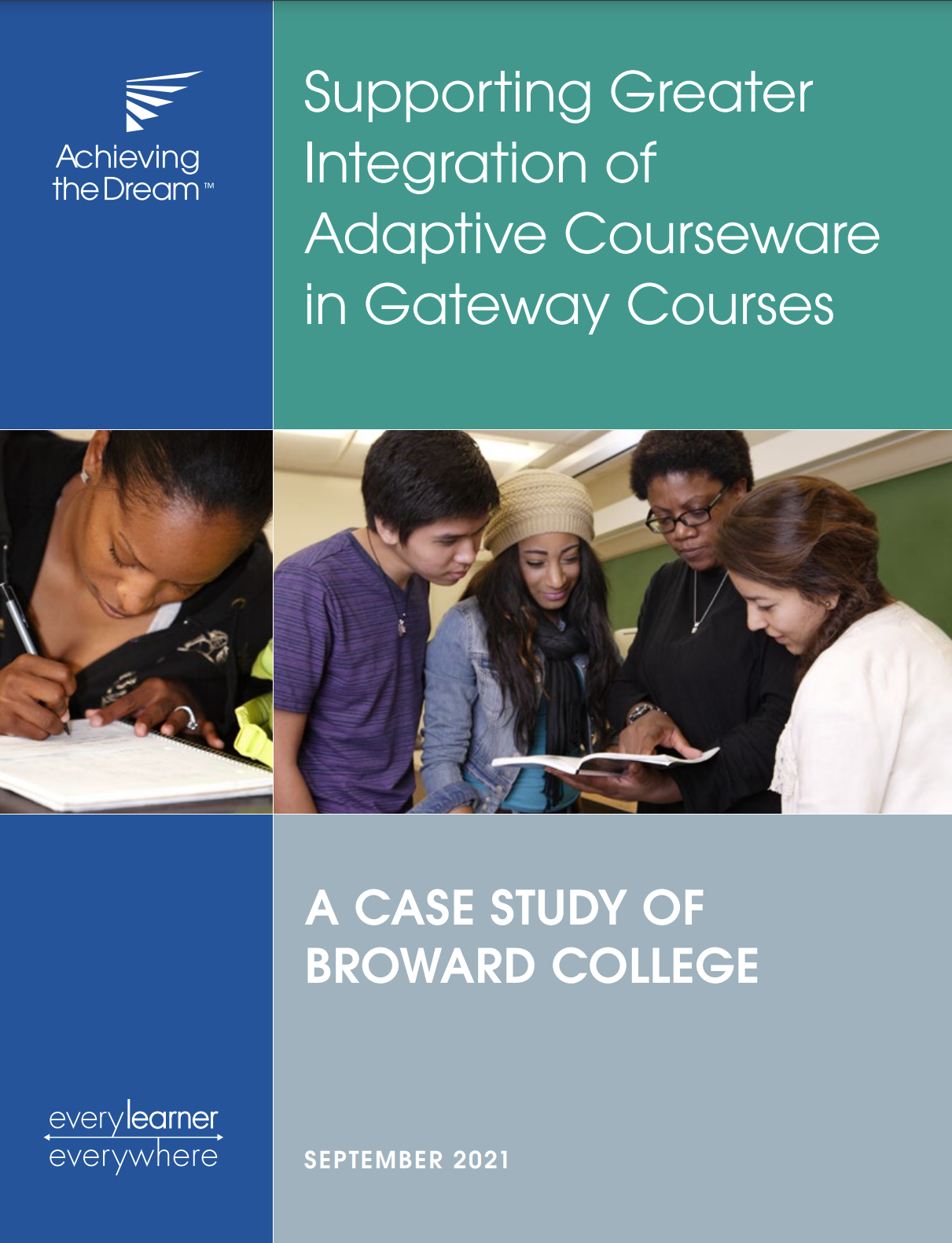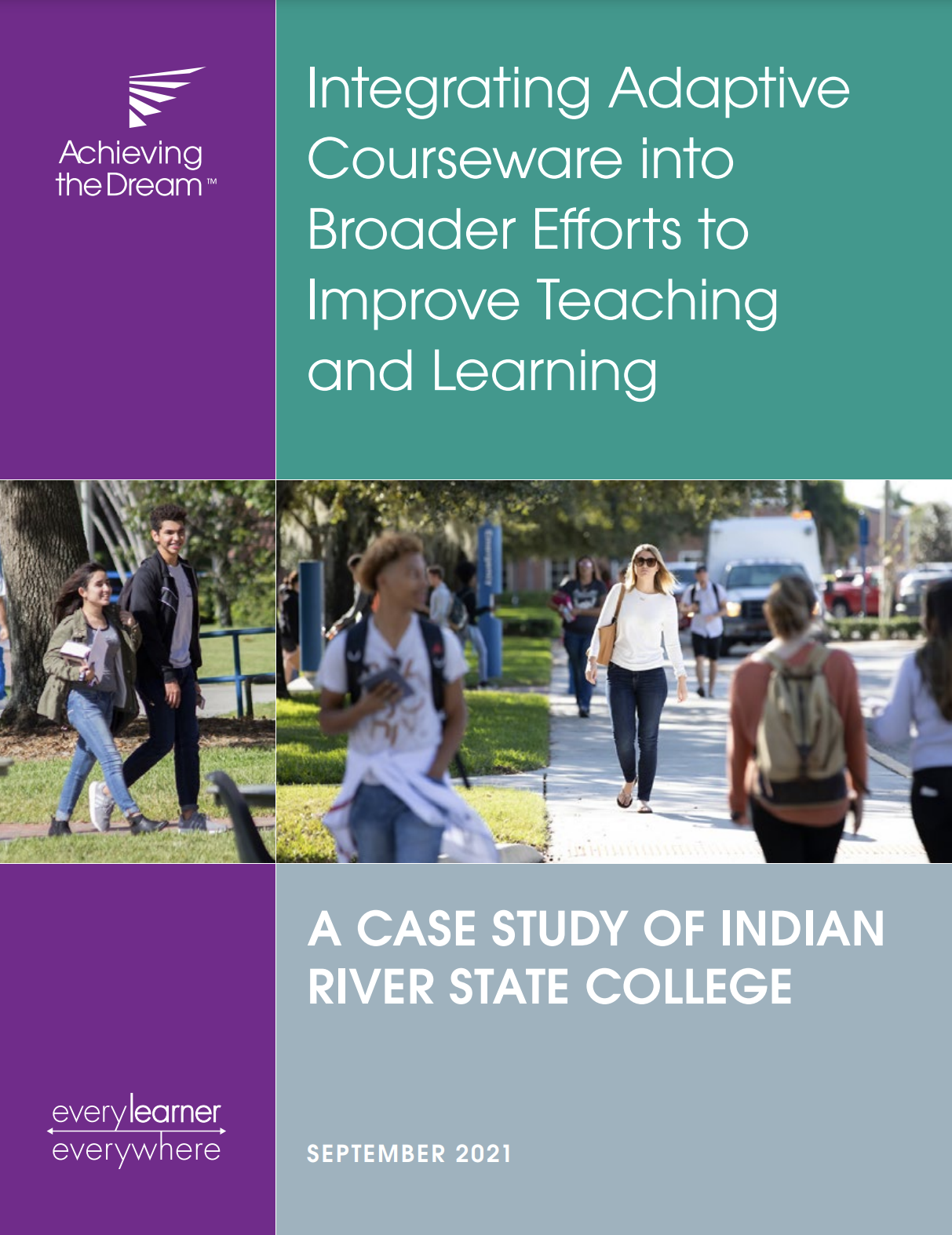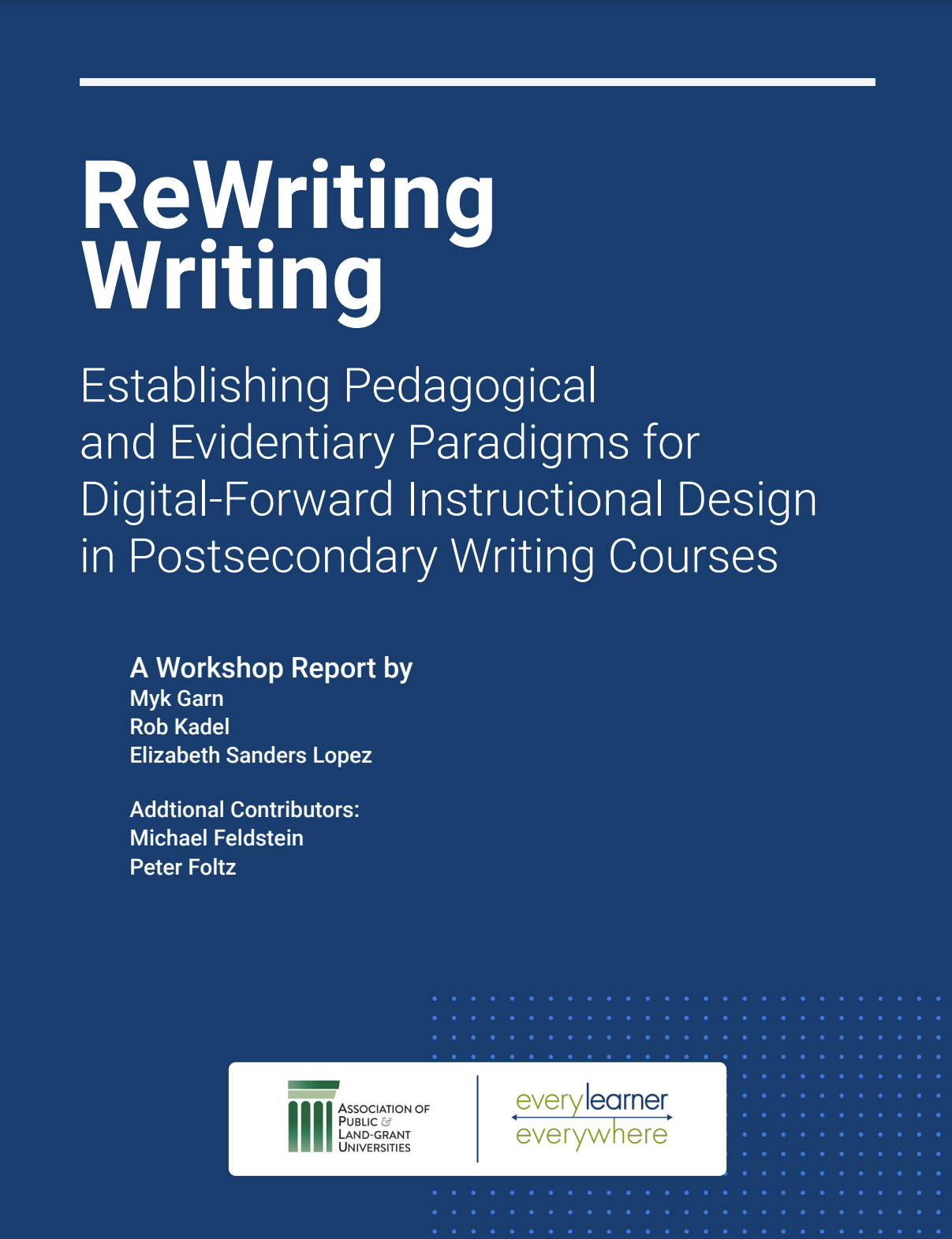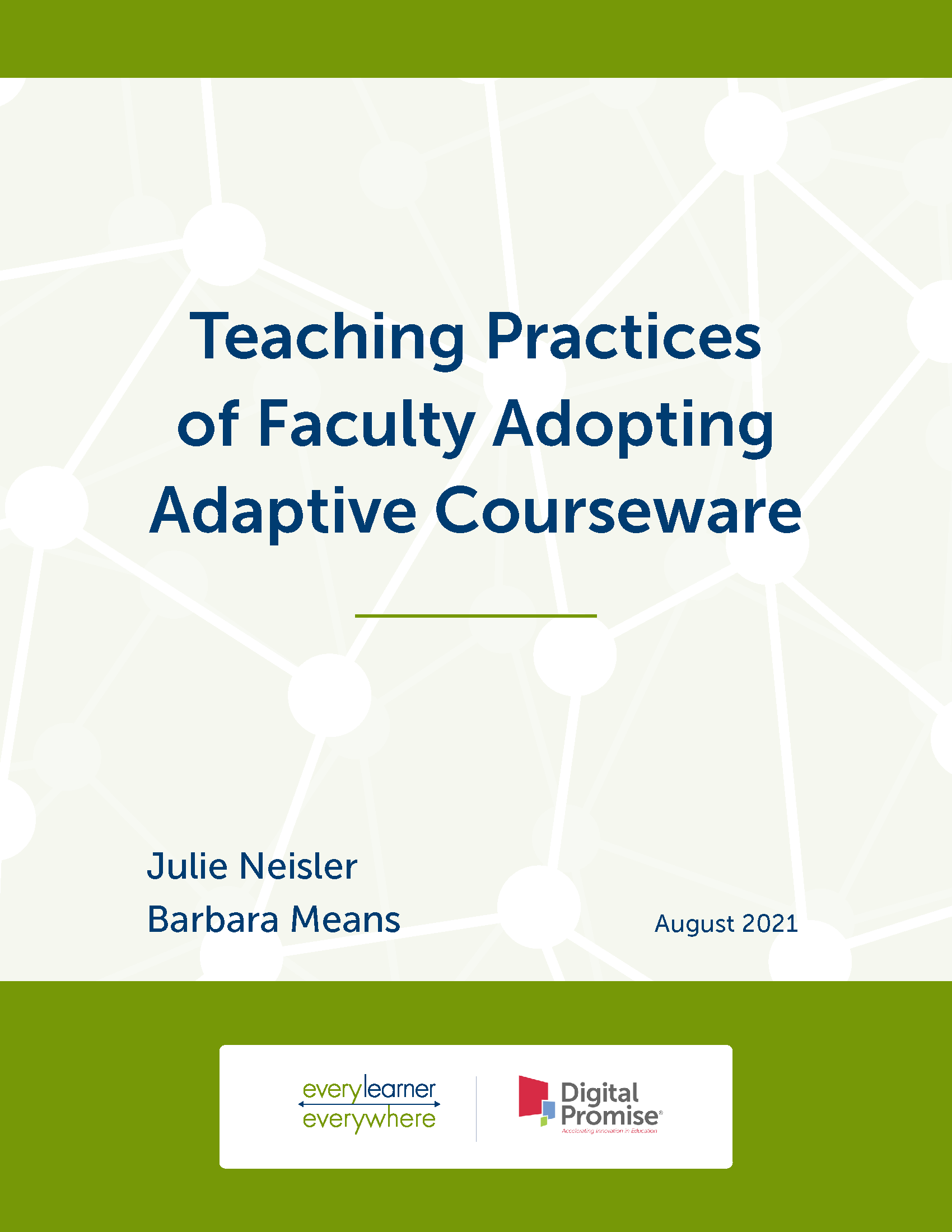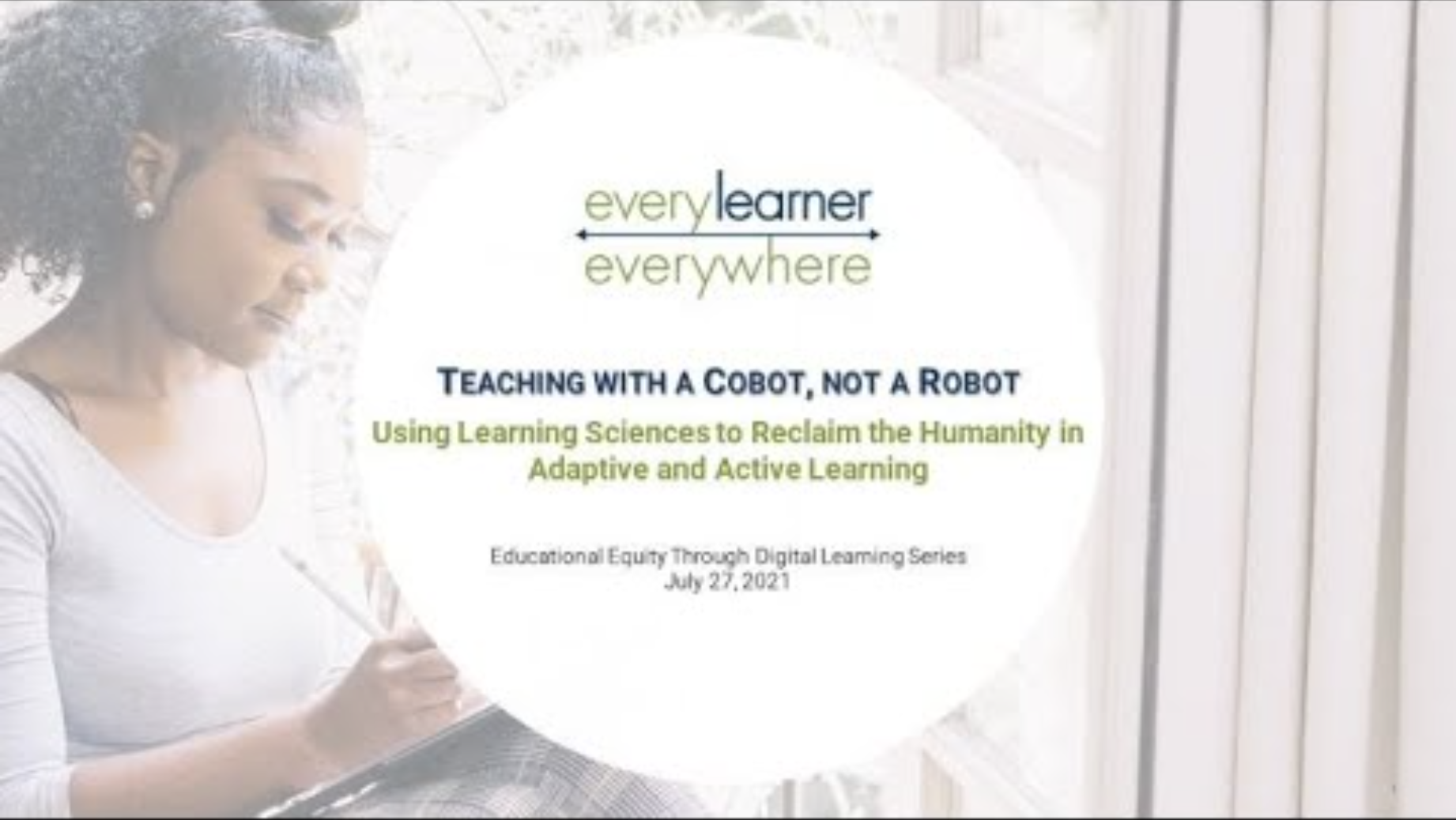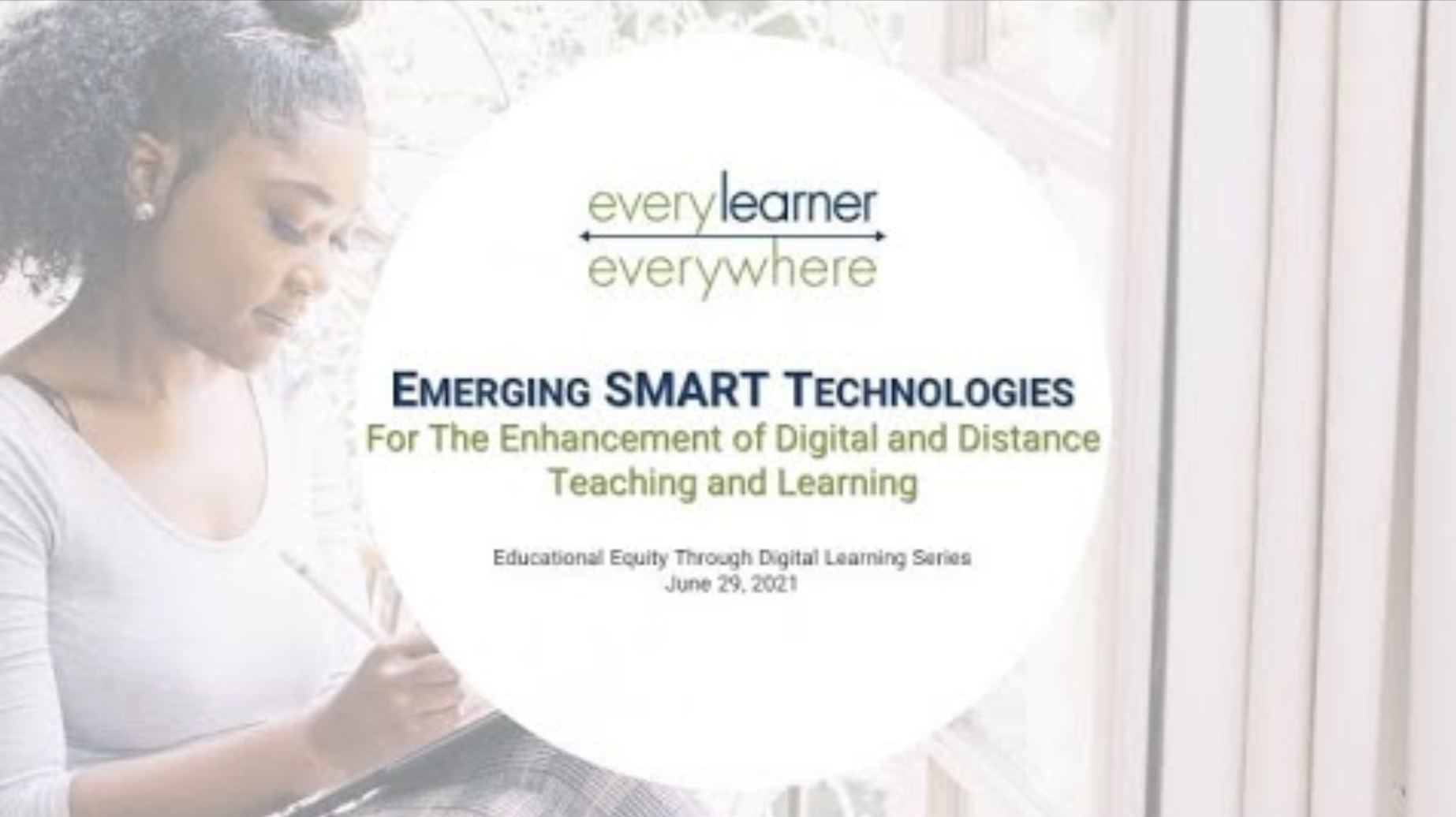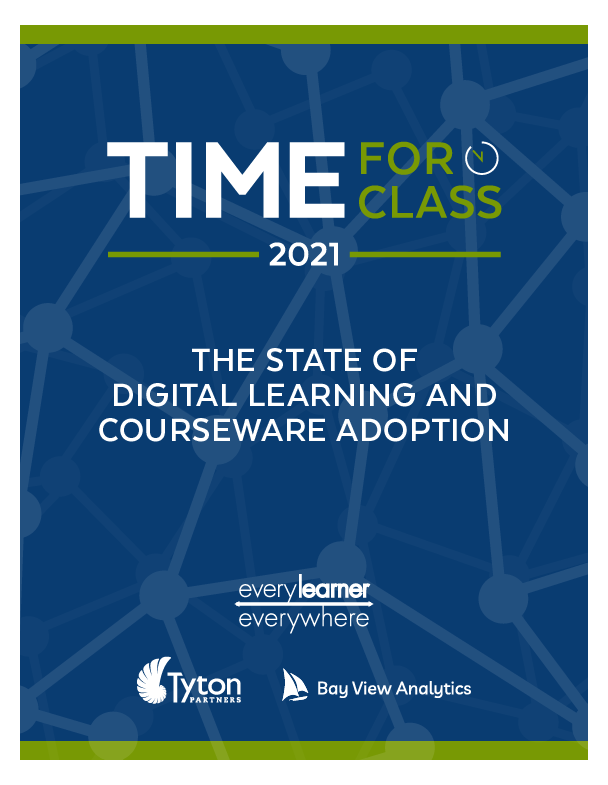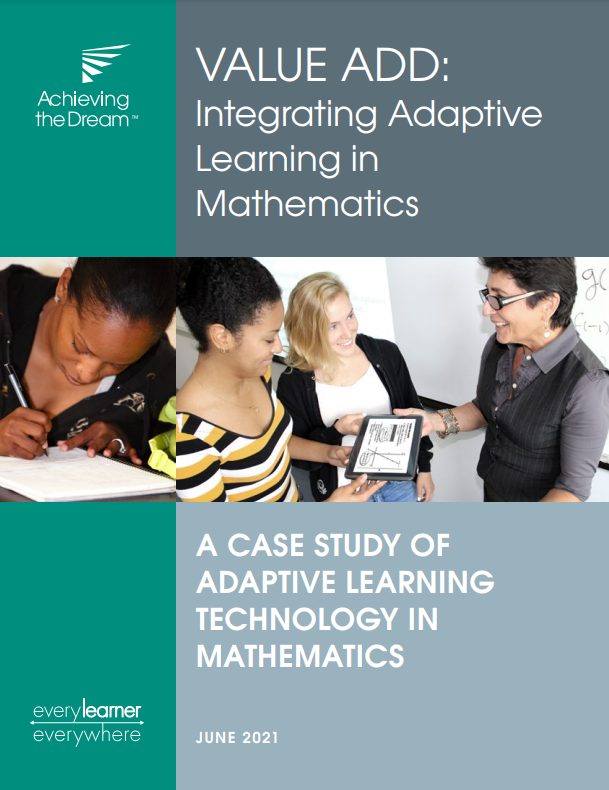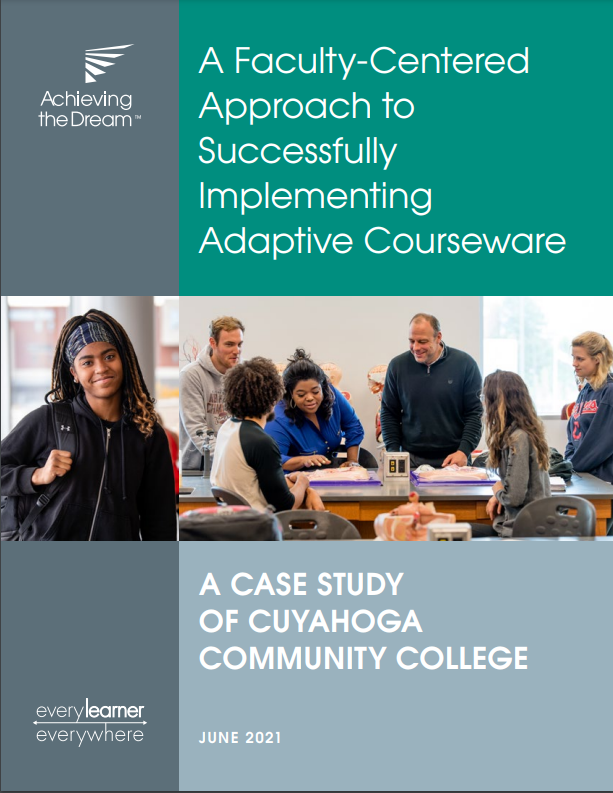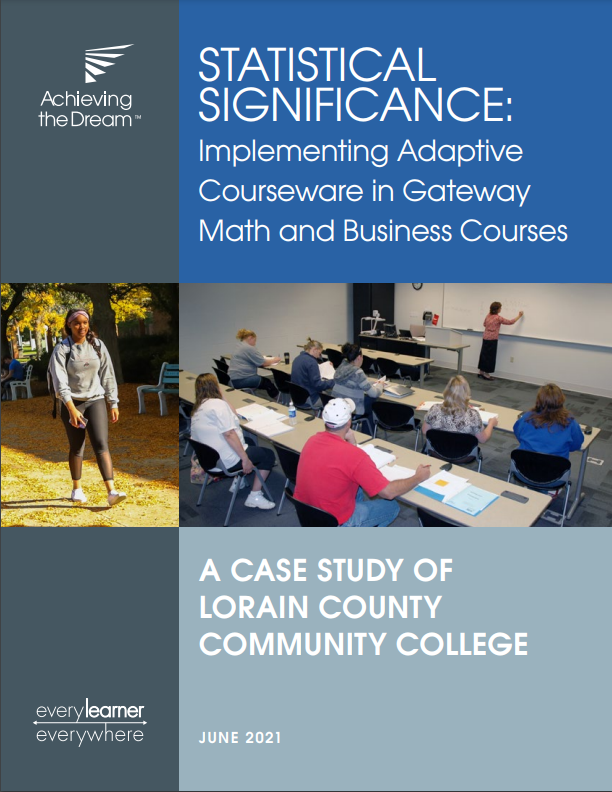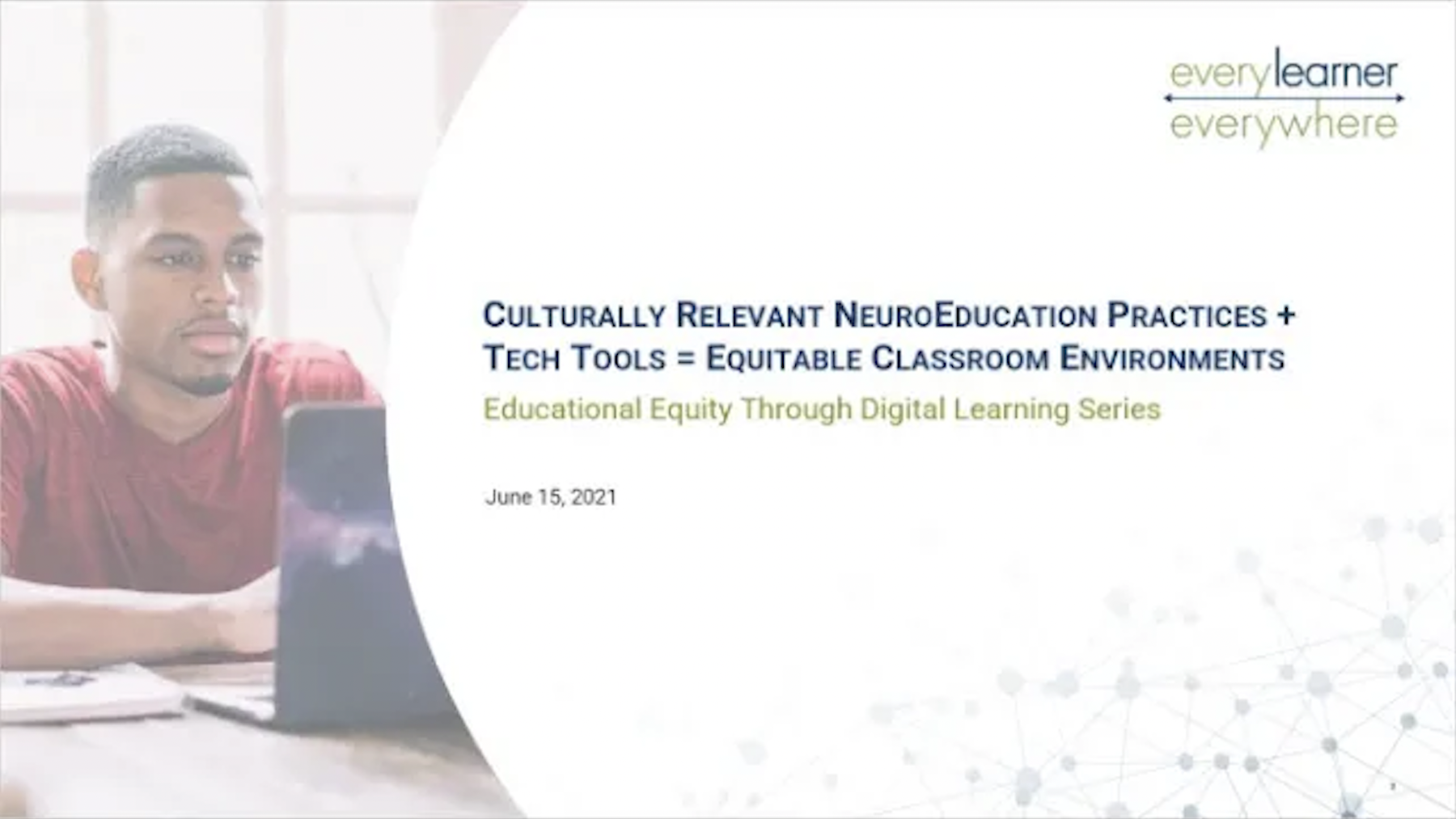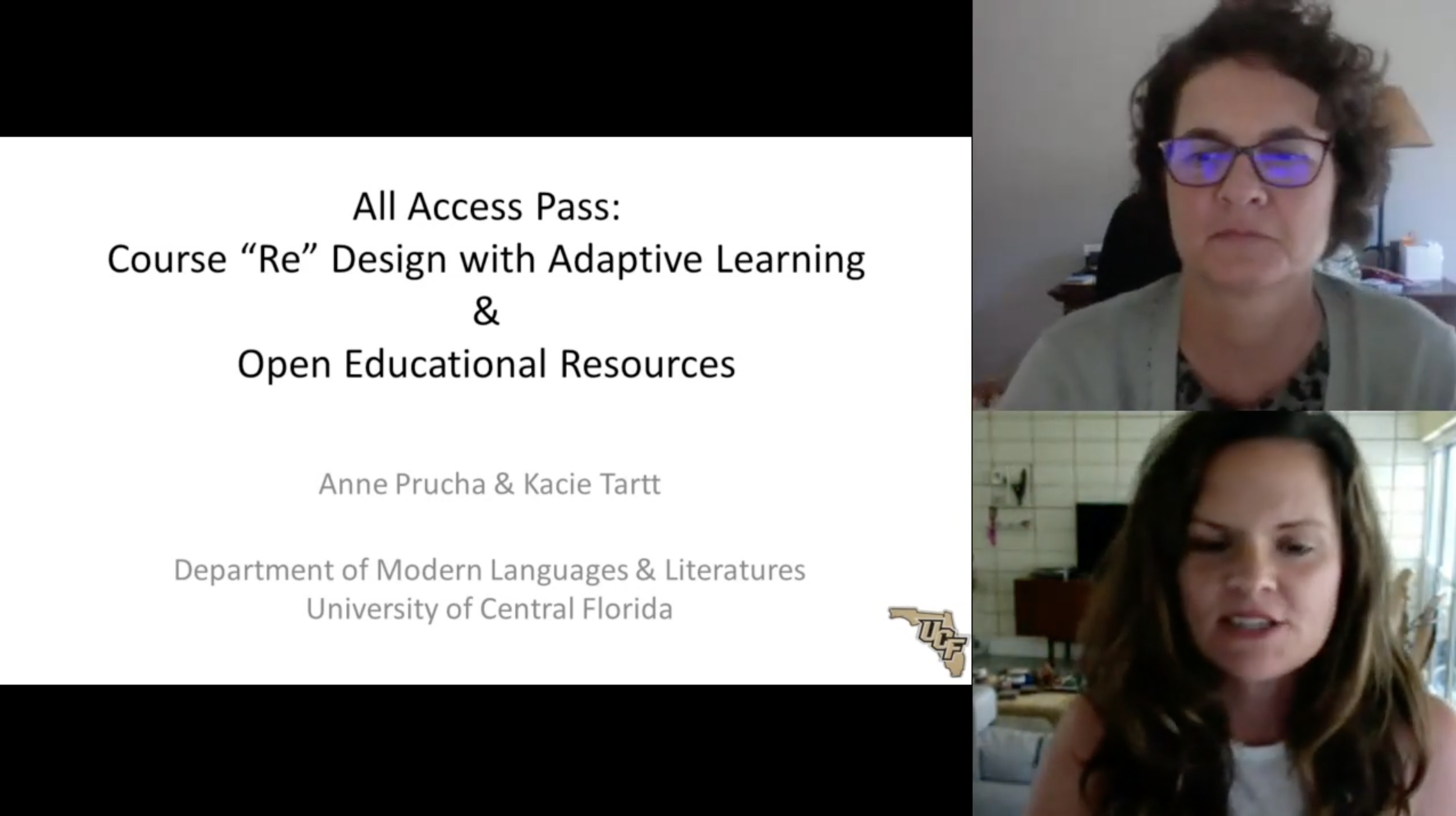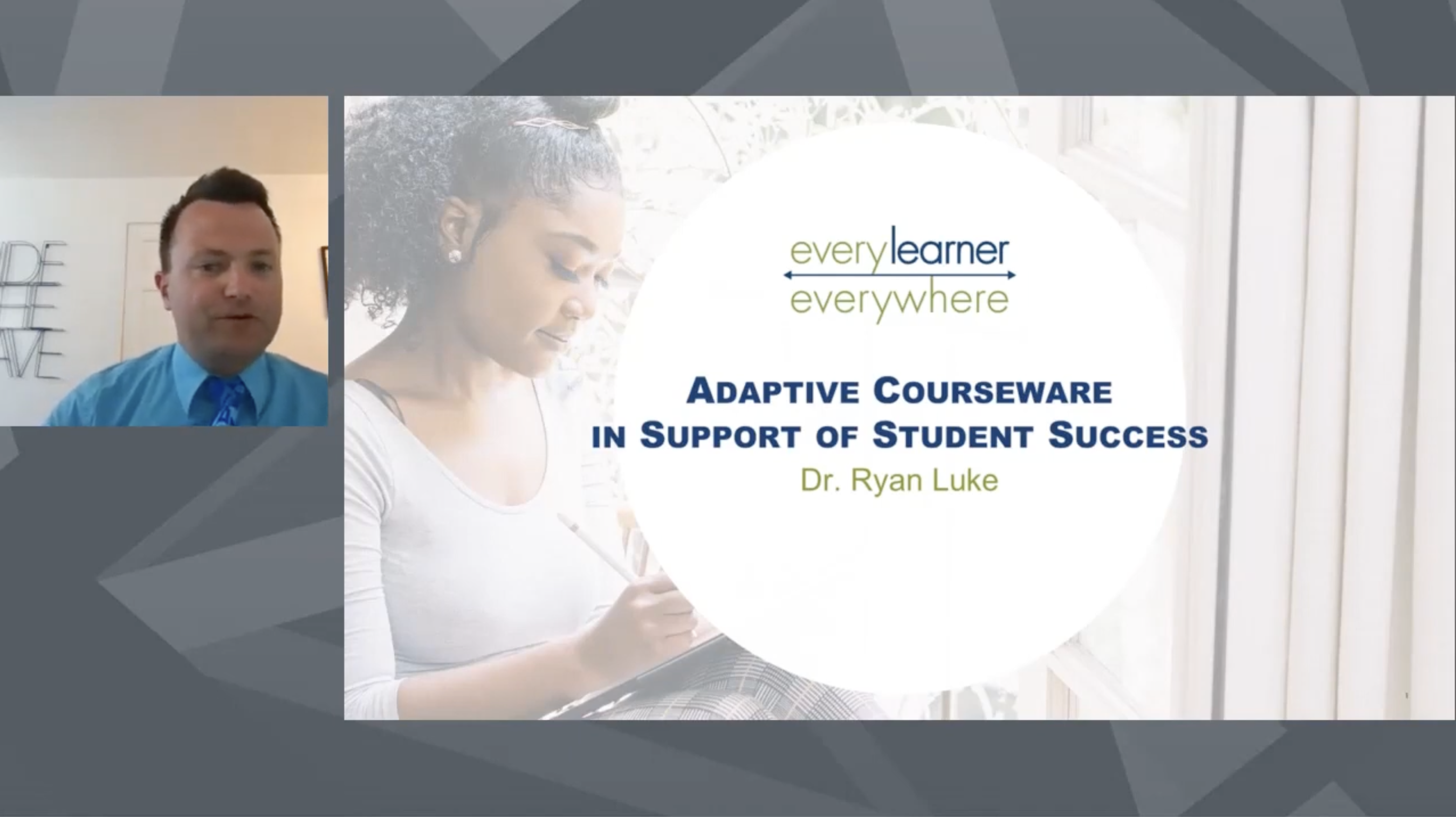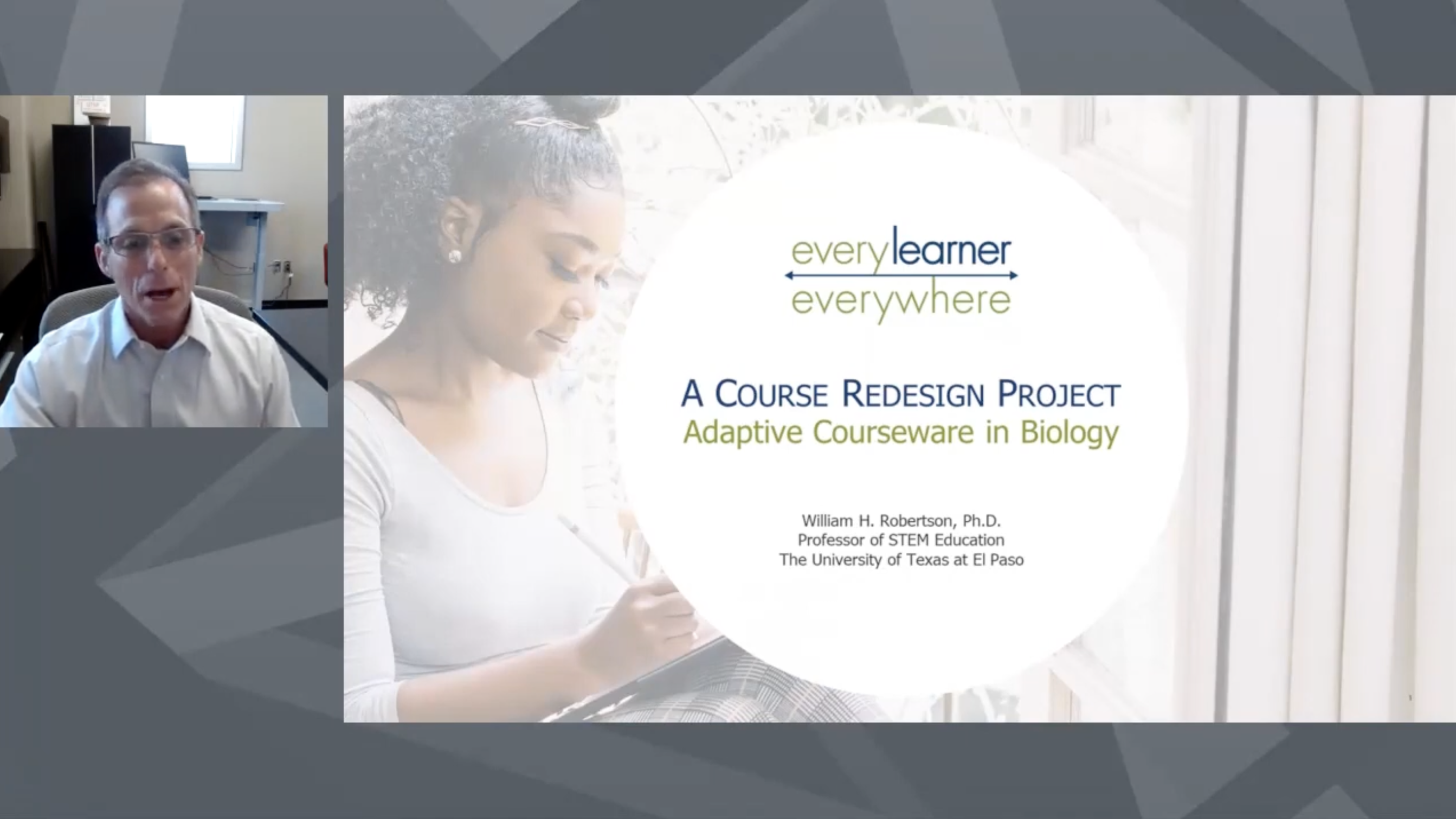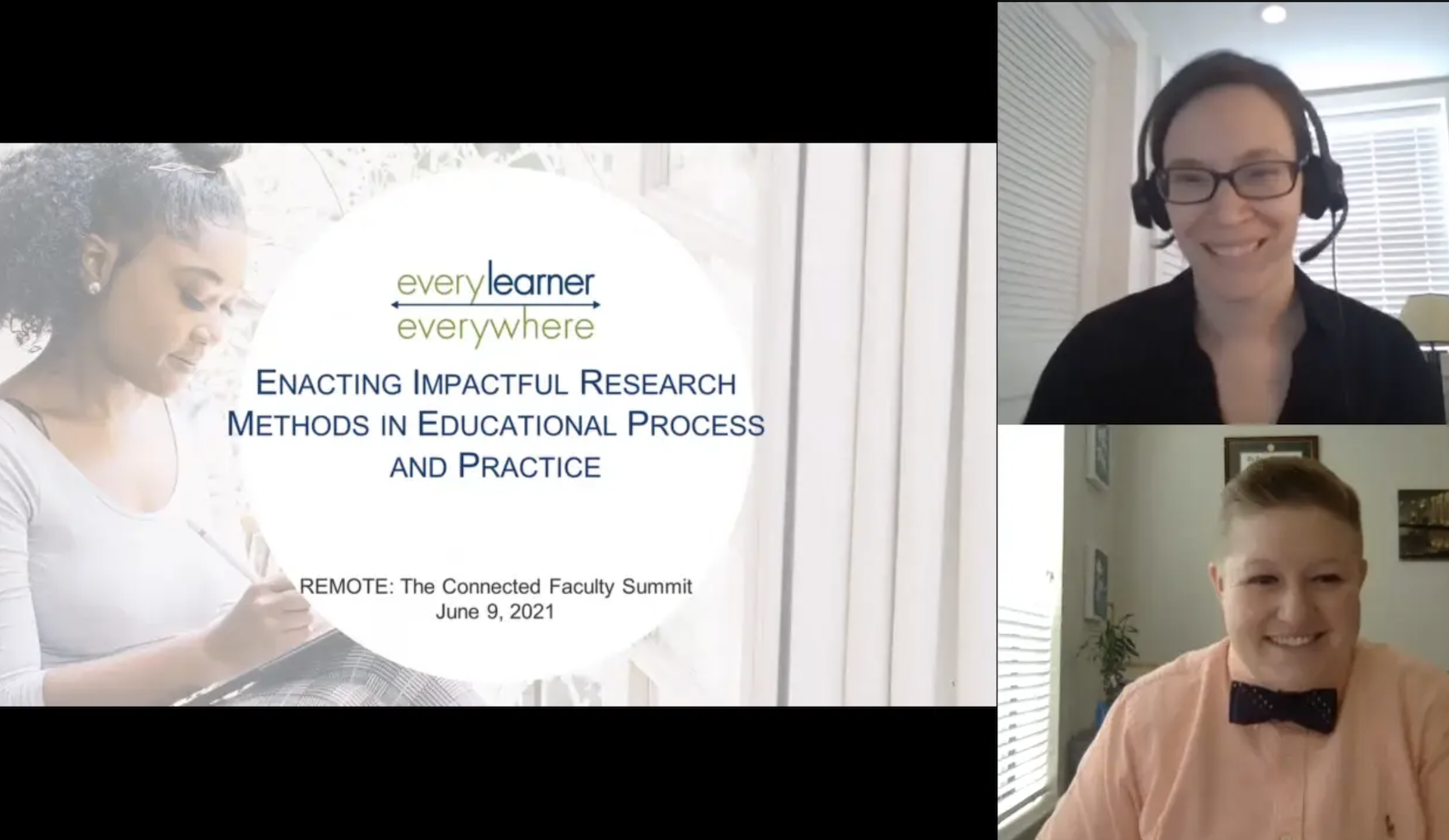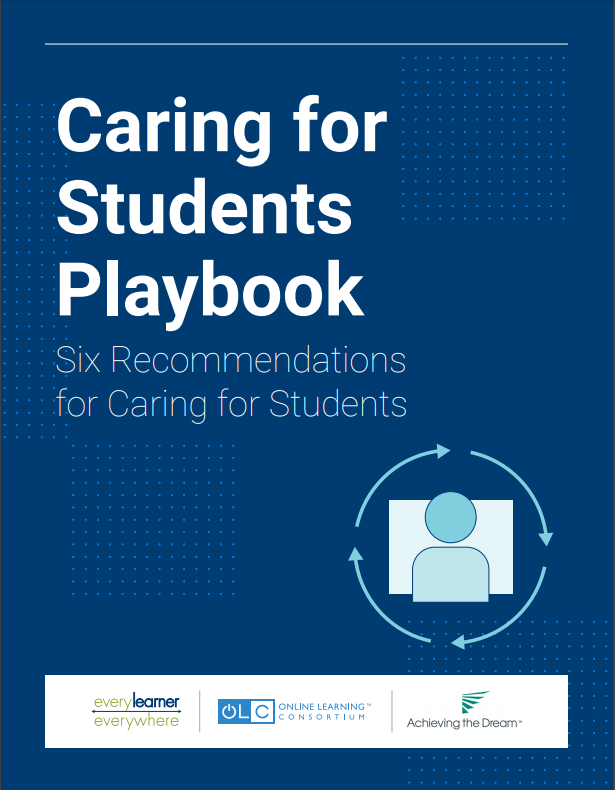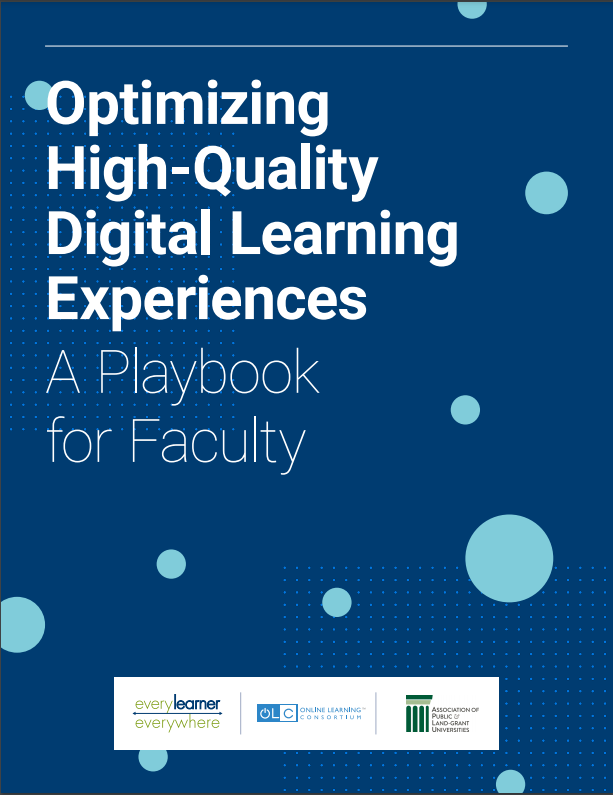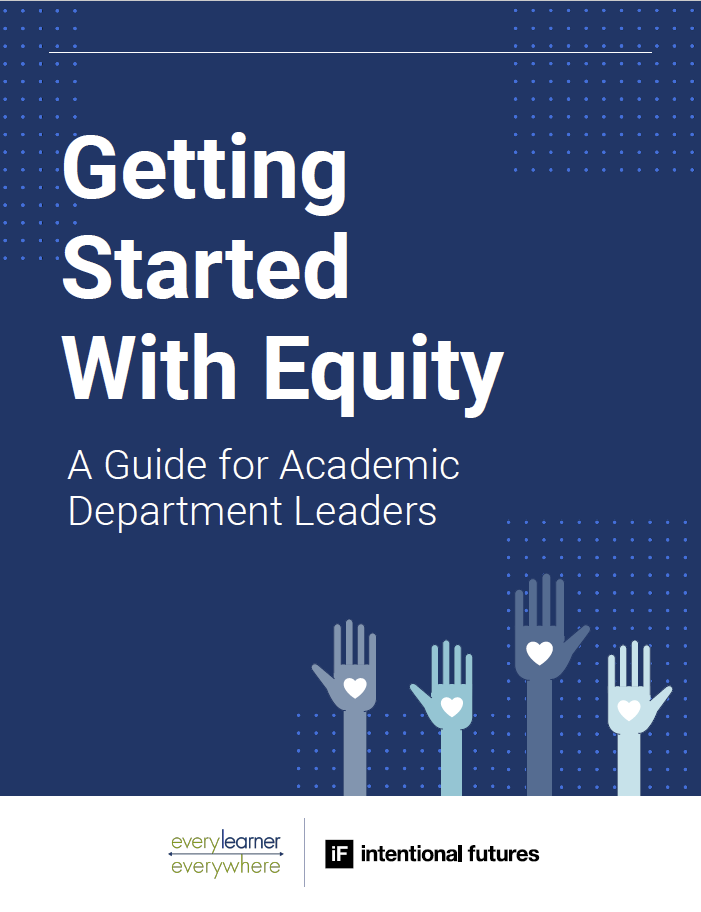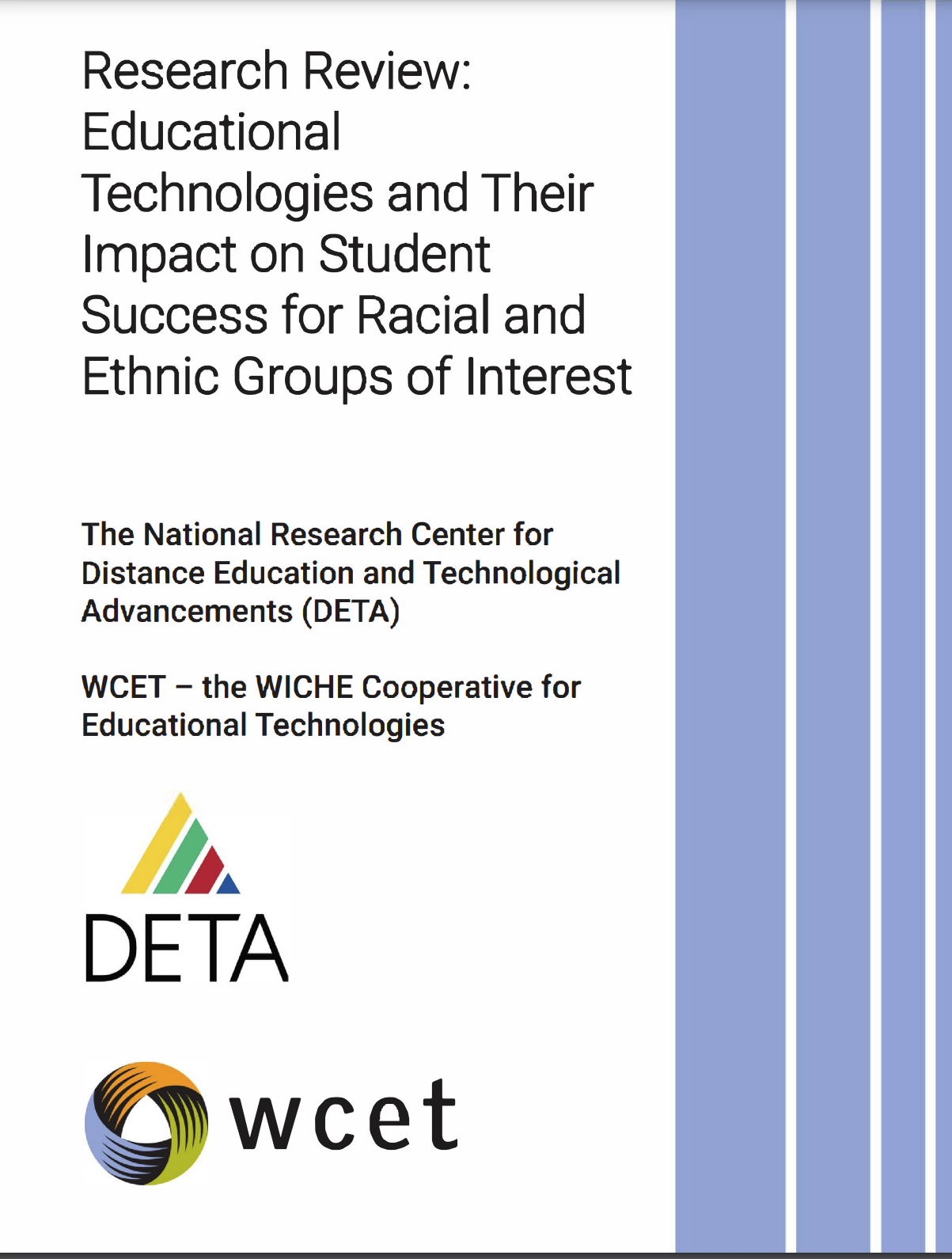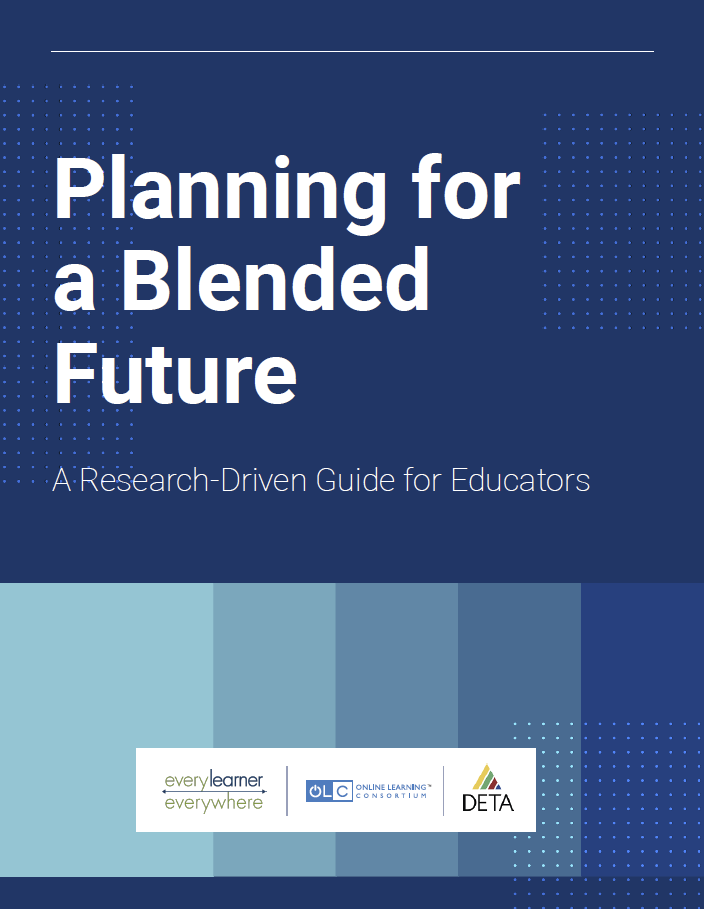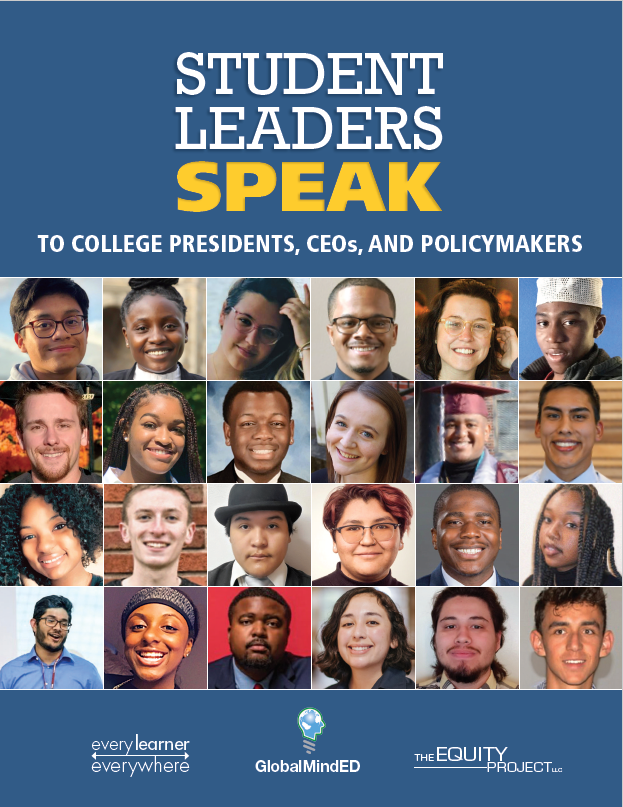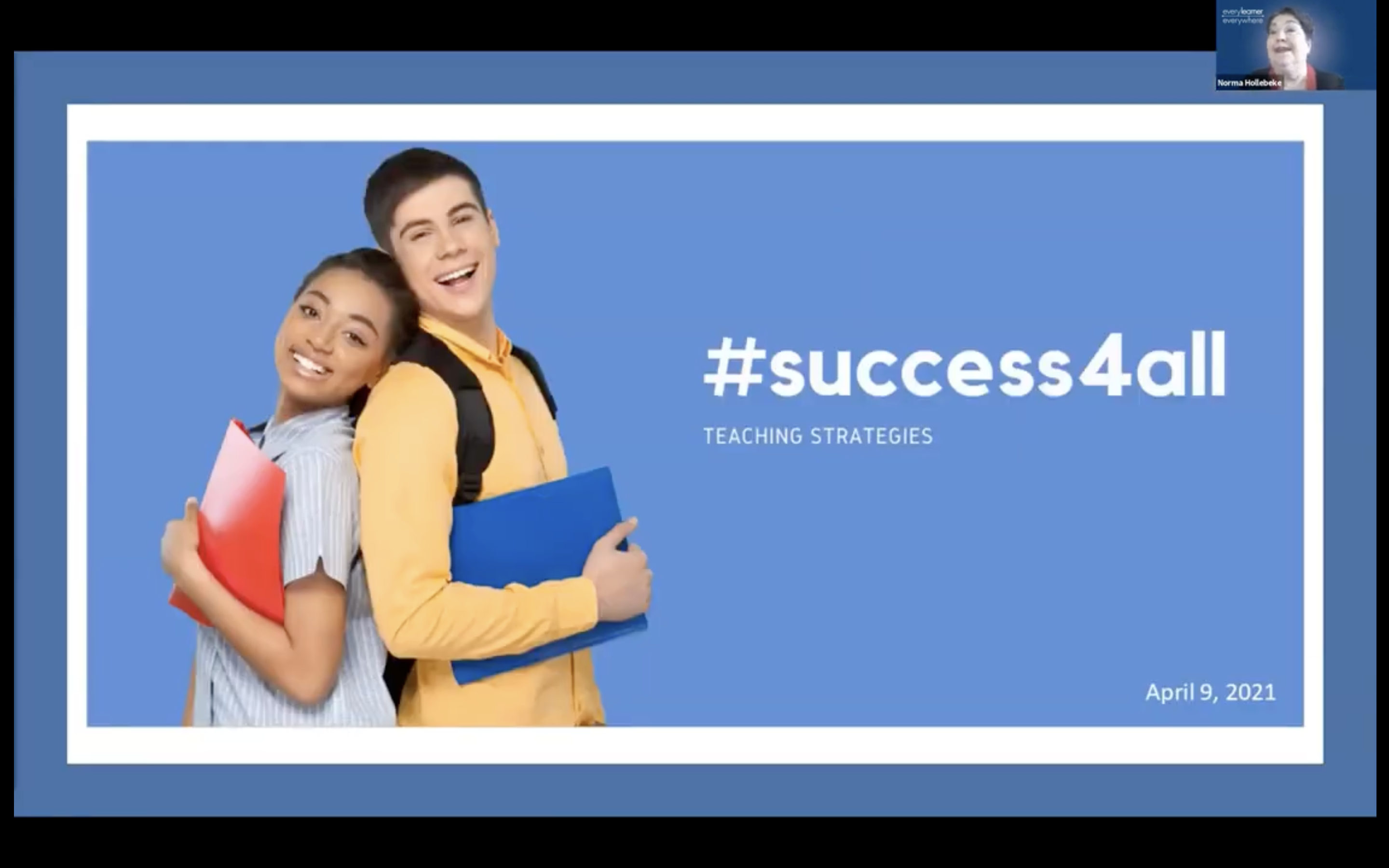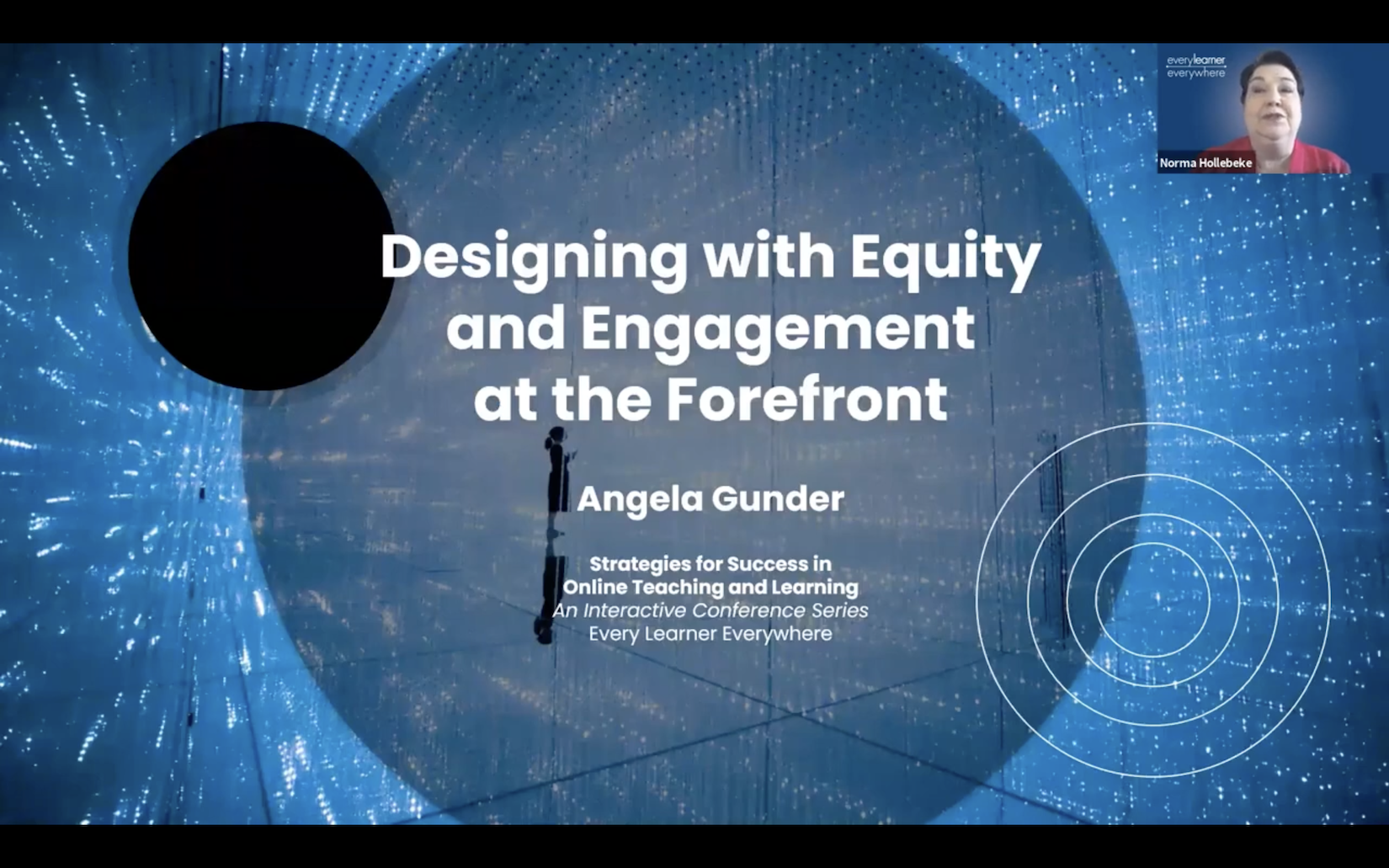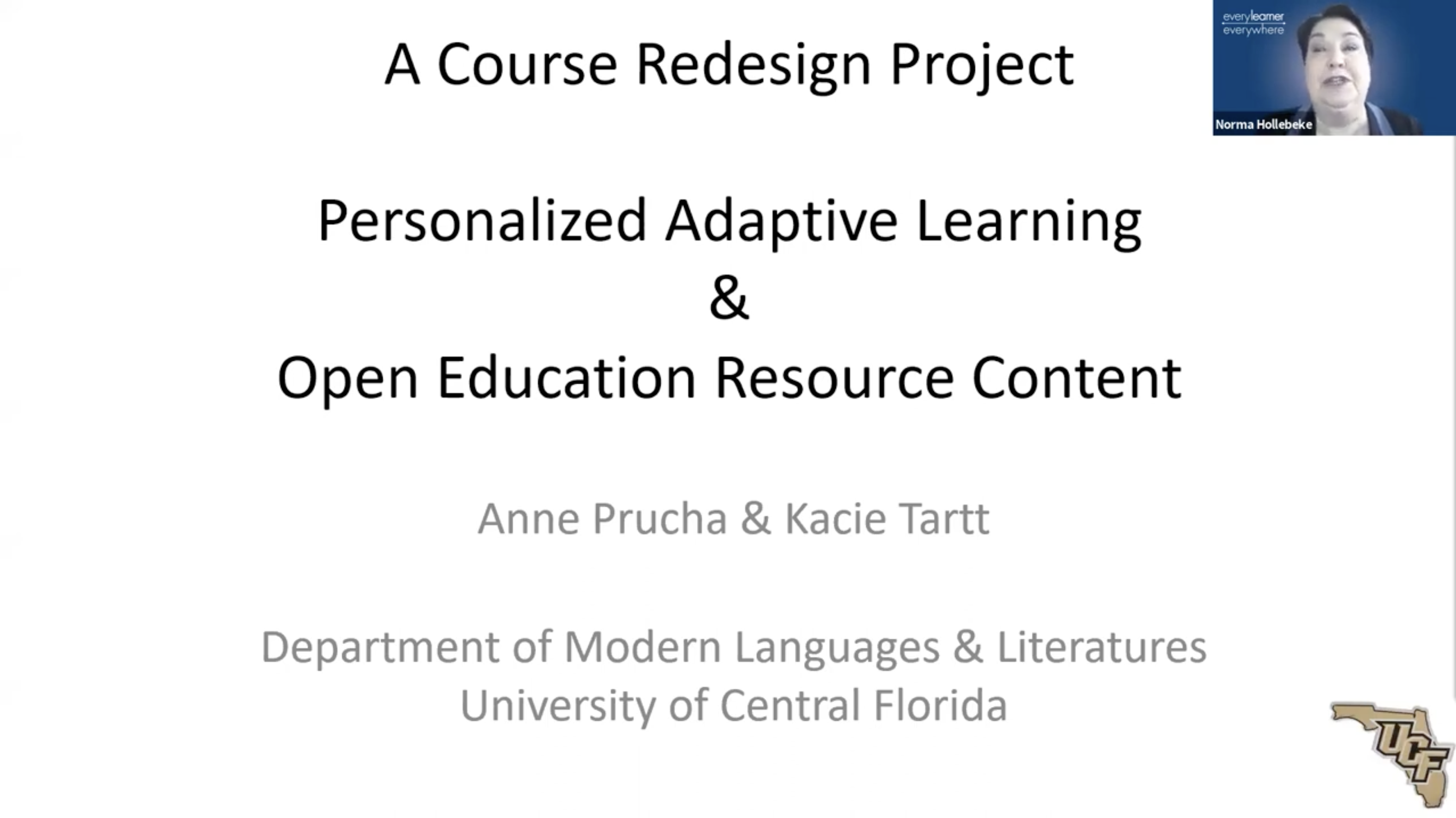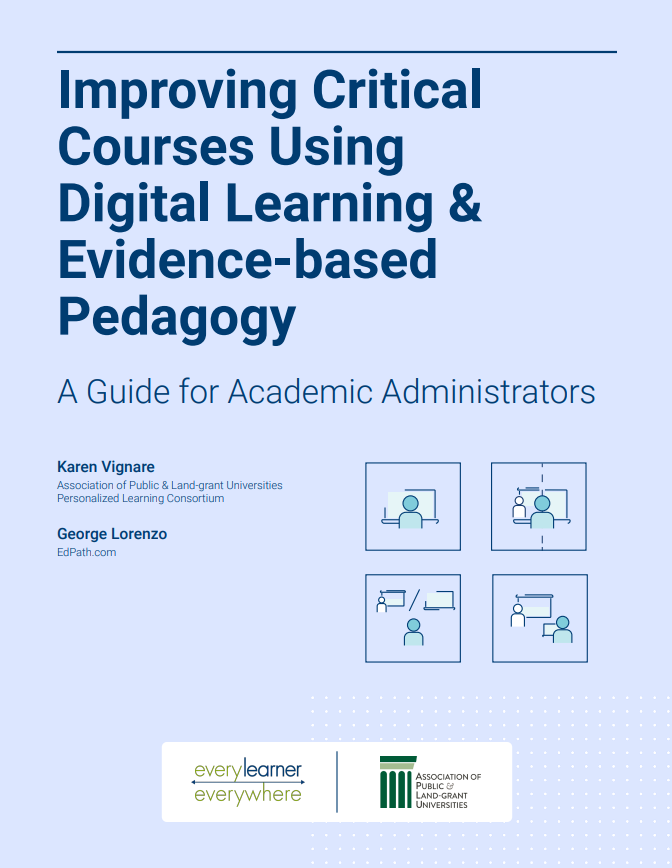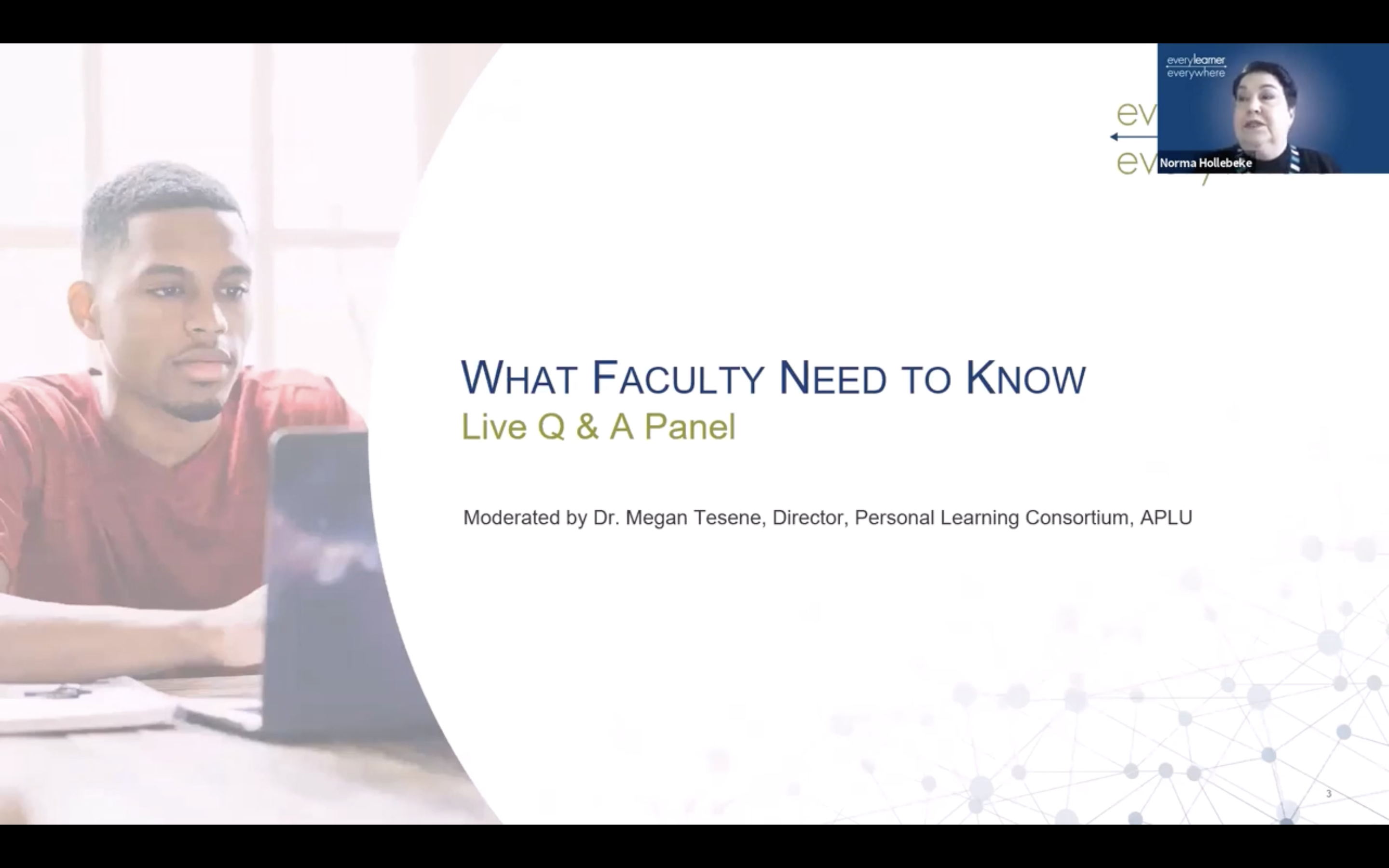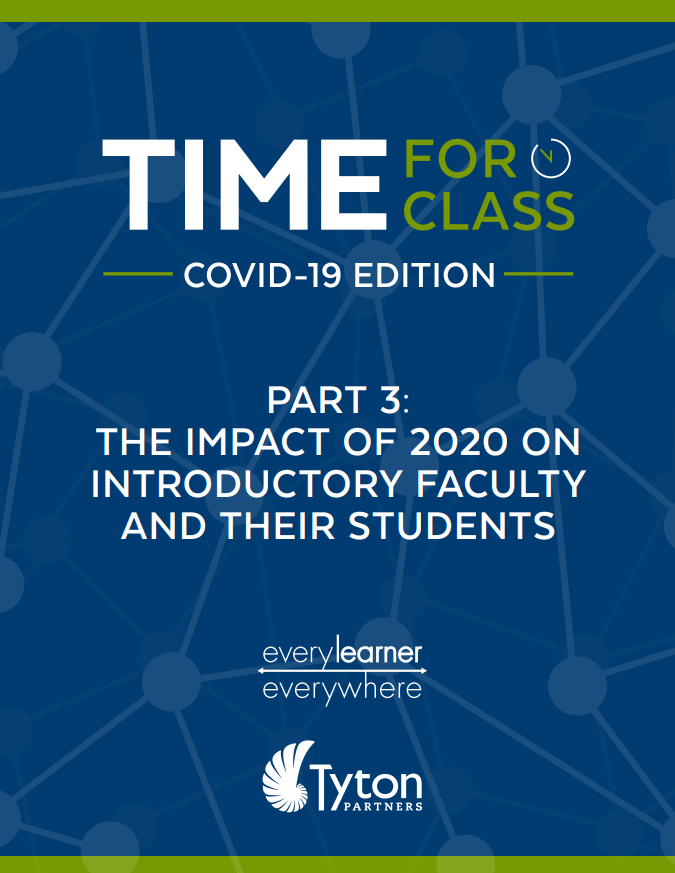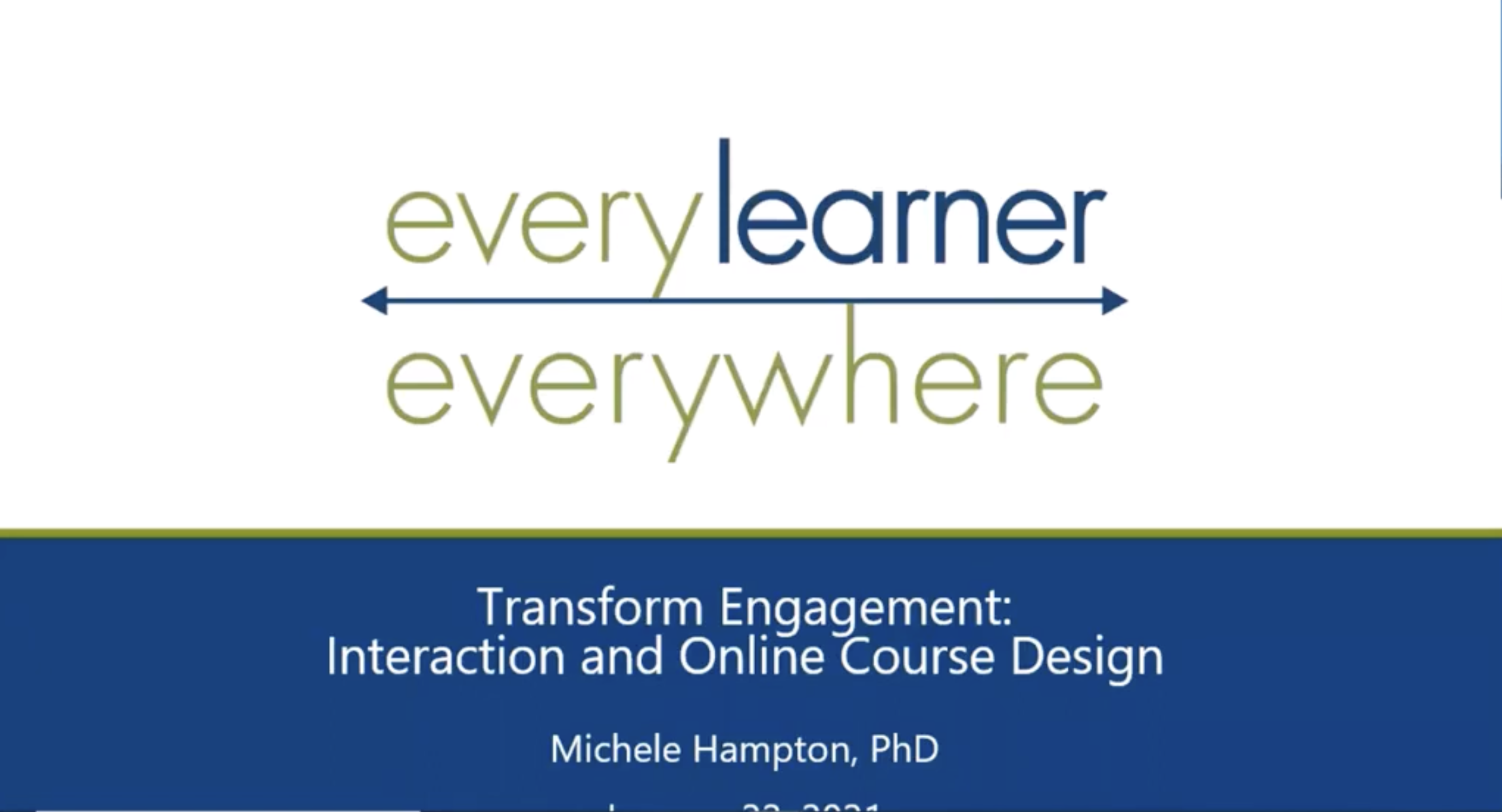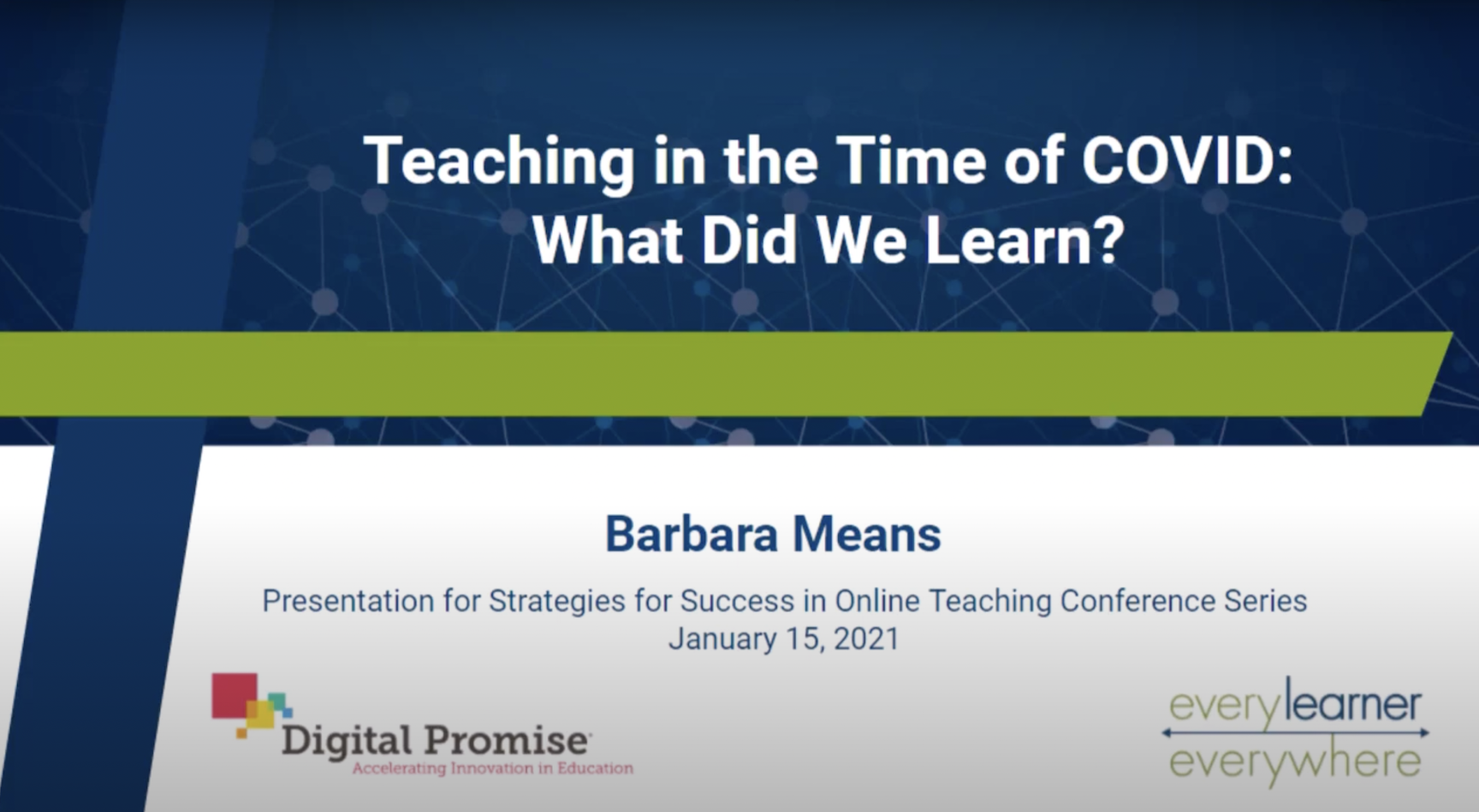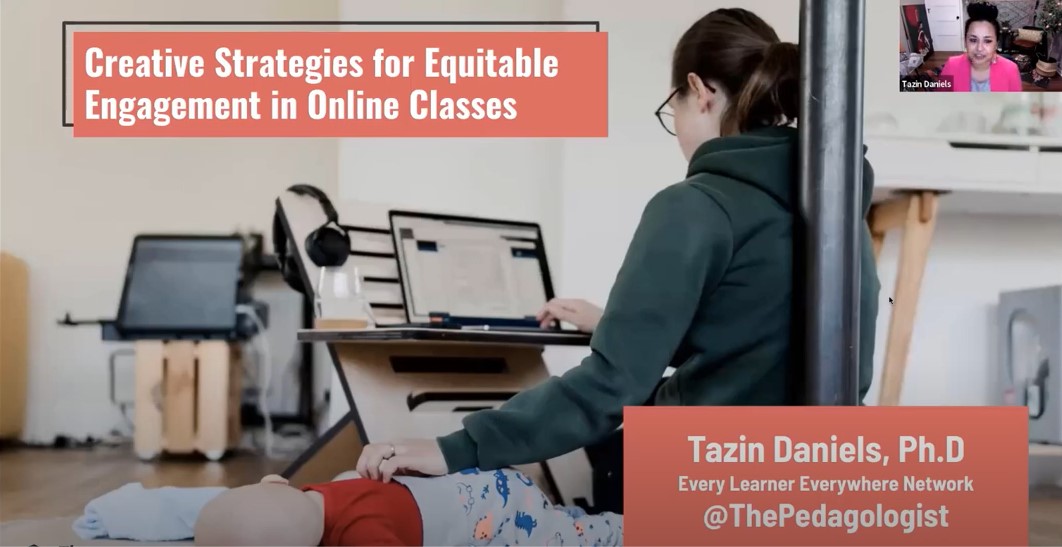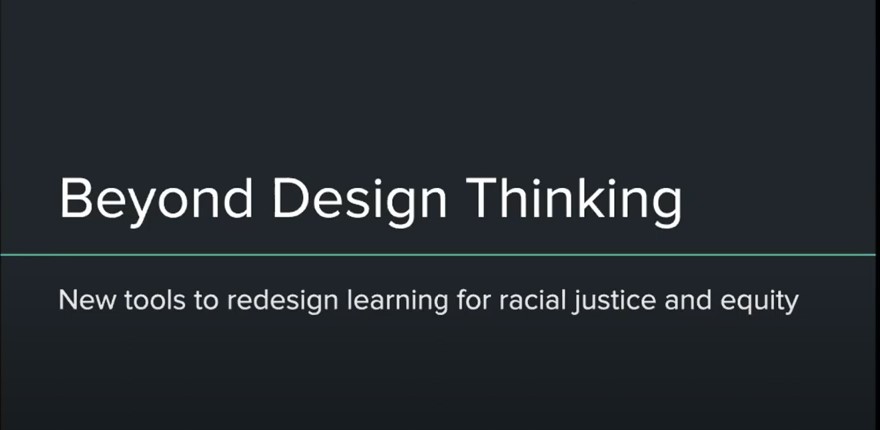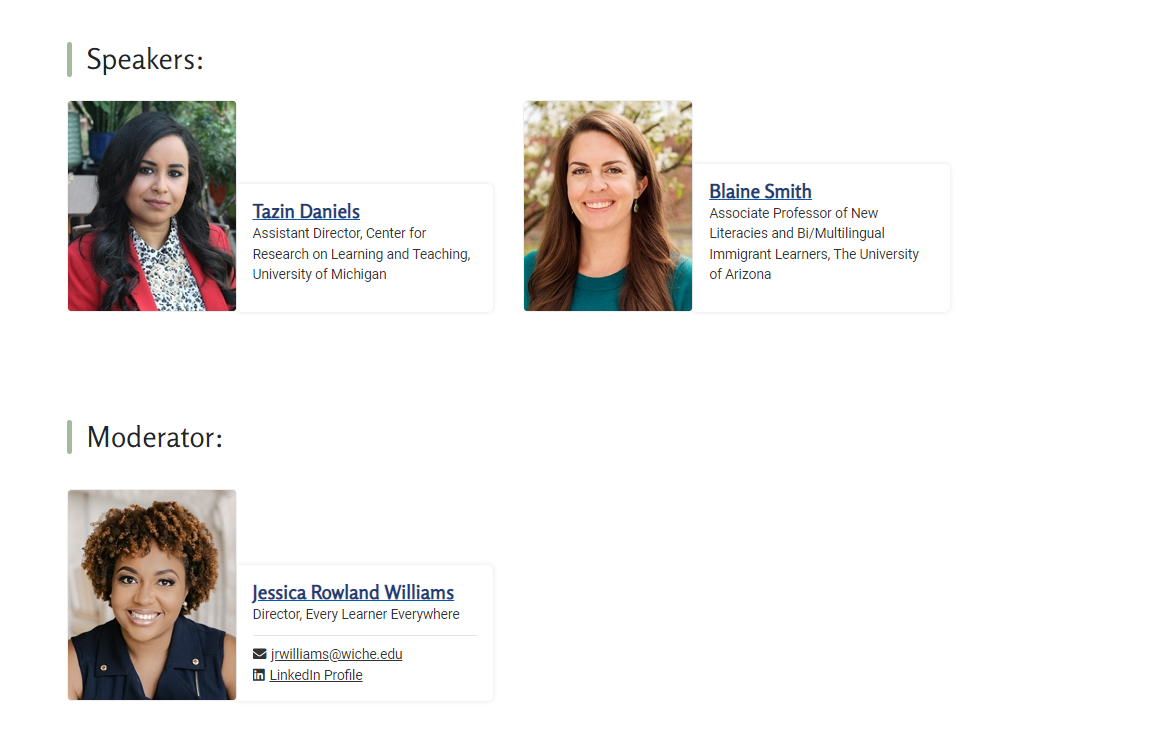Digital Learning & Courseware
2023 Annual Impact Report
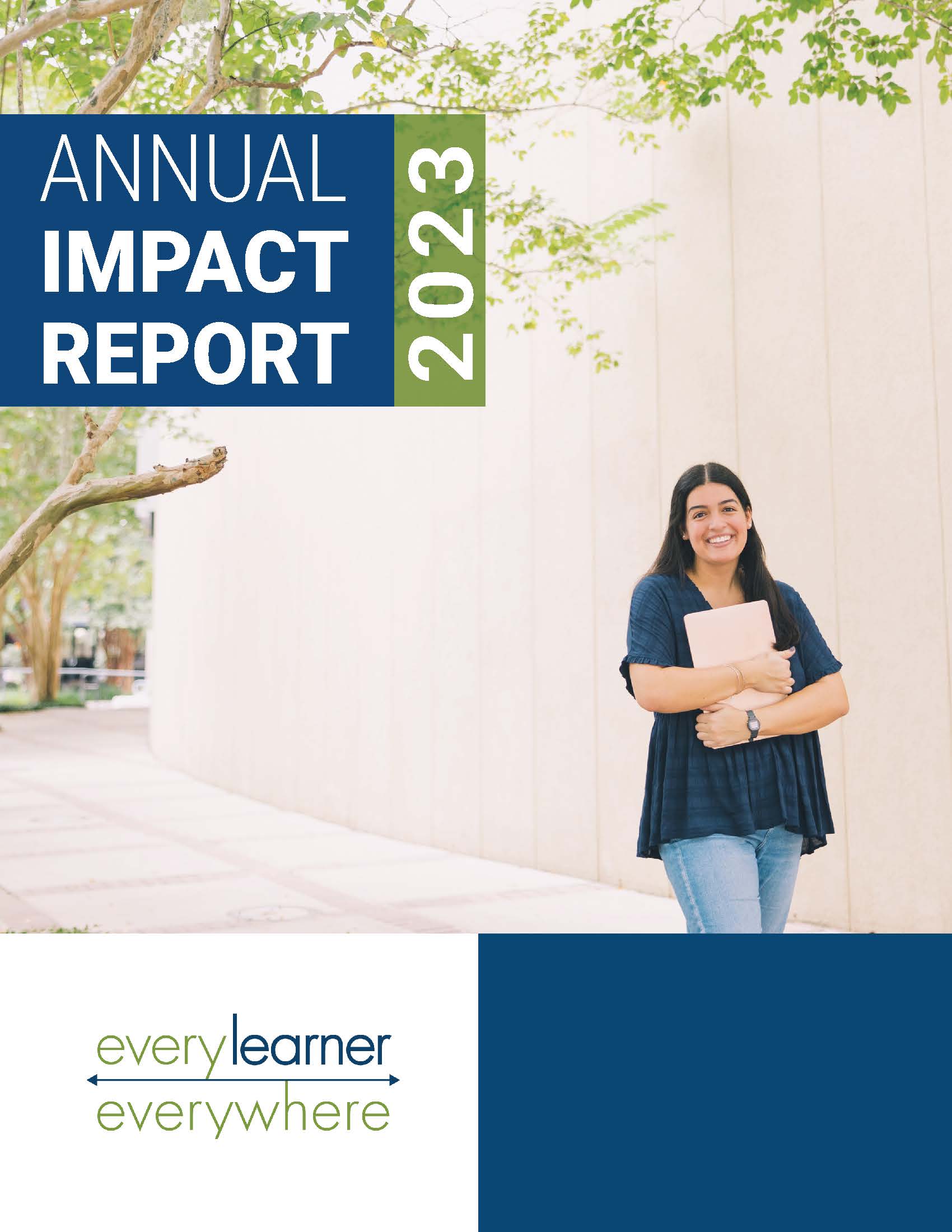
In this report, you can read about the network’s impact in the areas of services, thought leadership, and student engagement. In addition, we recap our 2023 network convening, introduce our new Equity First Organization partners, feature some of our student interns, and give readers a preview of what’s ahead for the network in 2024.
The Equity-Minded Digital Learning Strategy Guides
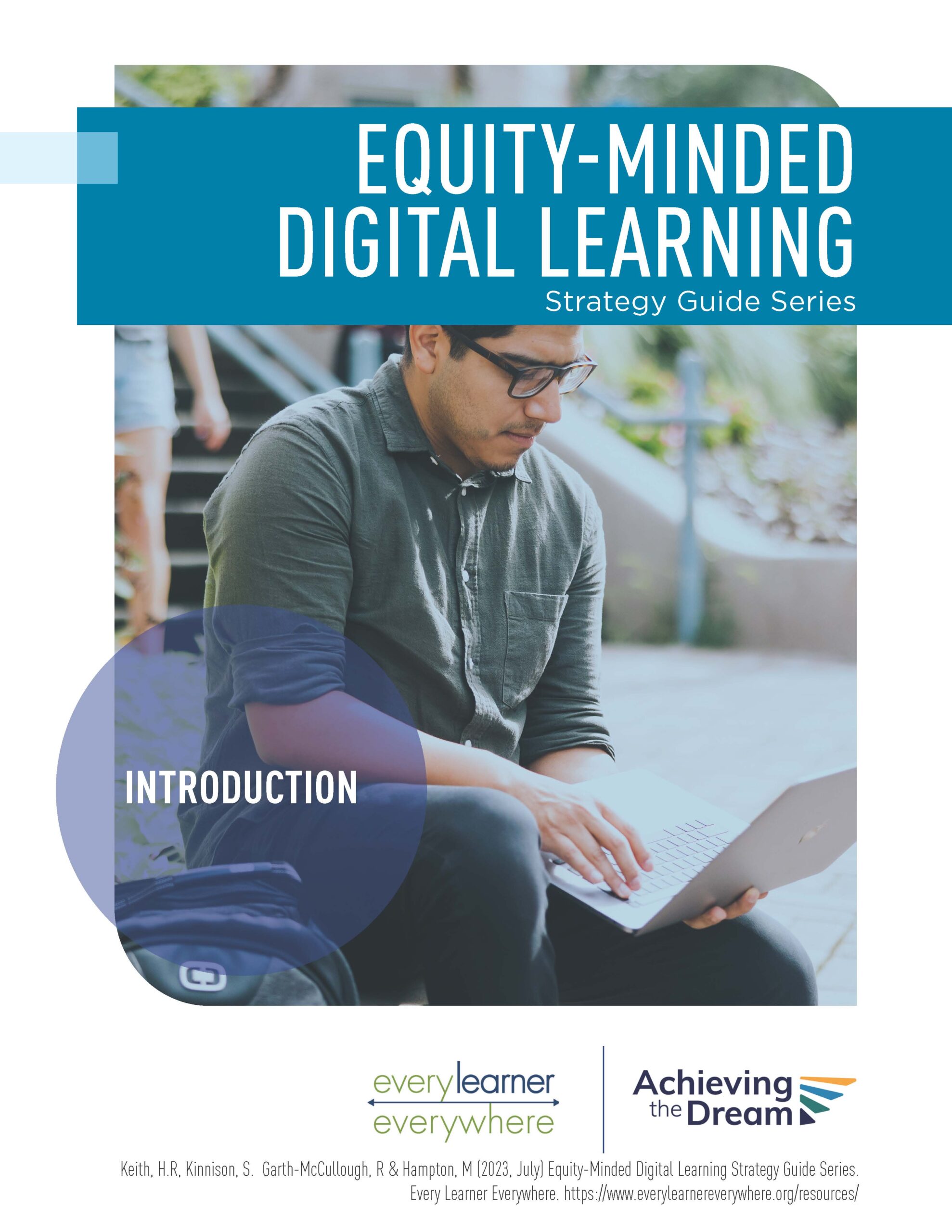
The Equity-Minded Digital Learning Strategy Guides help faculty intentionally and authentically affirm, uplift, and liberate students. As higher education continues to address eliminating inequitable outcomes in teaching and learning, these guides will help institutions embed equity, culturally responsive teaching, social justice education, and open pedagogy through evidence-based teaching practices.
Planning for Academic Continuity
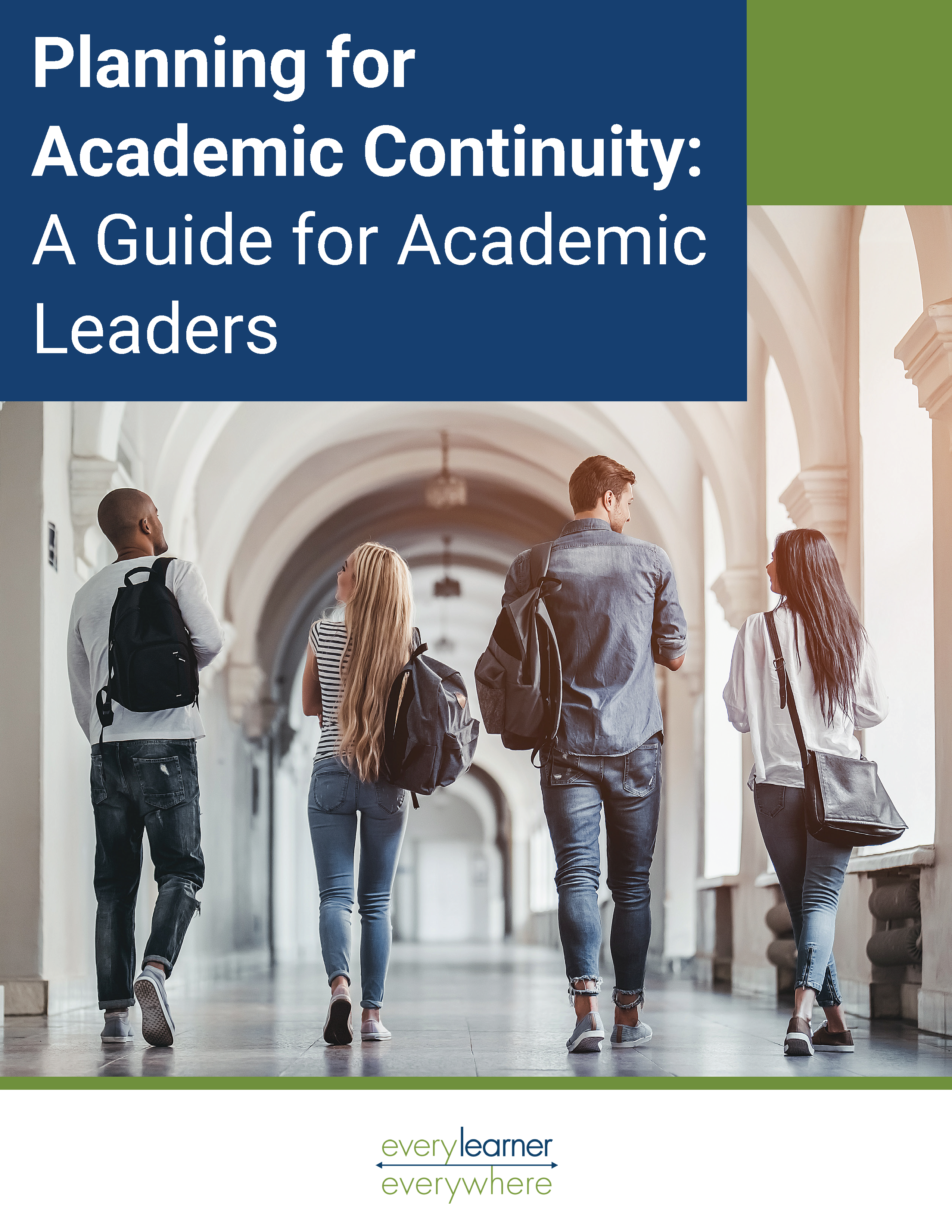
This guide presents results from an analysis of 100 academic continuity plans at U.S. colleges and universities. The results form the basis for recommended academic continuity plan best practices, tools, and templates academic leaders can use to maintain a plan that can be used in both short-term and long-term circumstances.
Adaptive Courseware for Early Success Case Studies
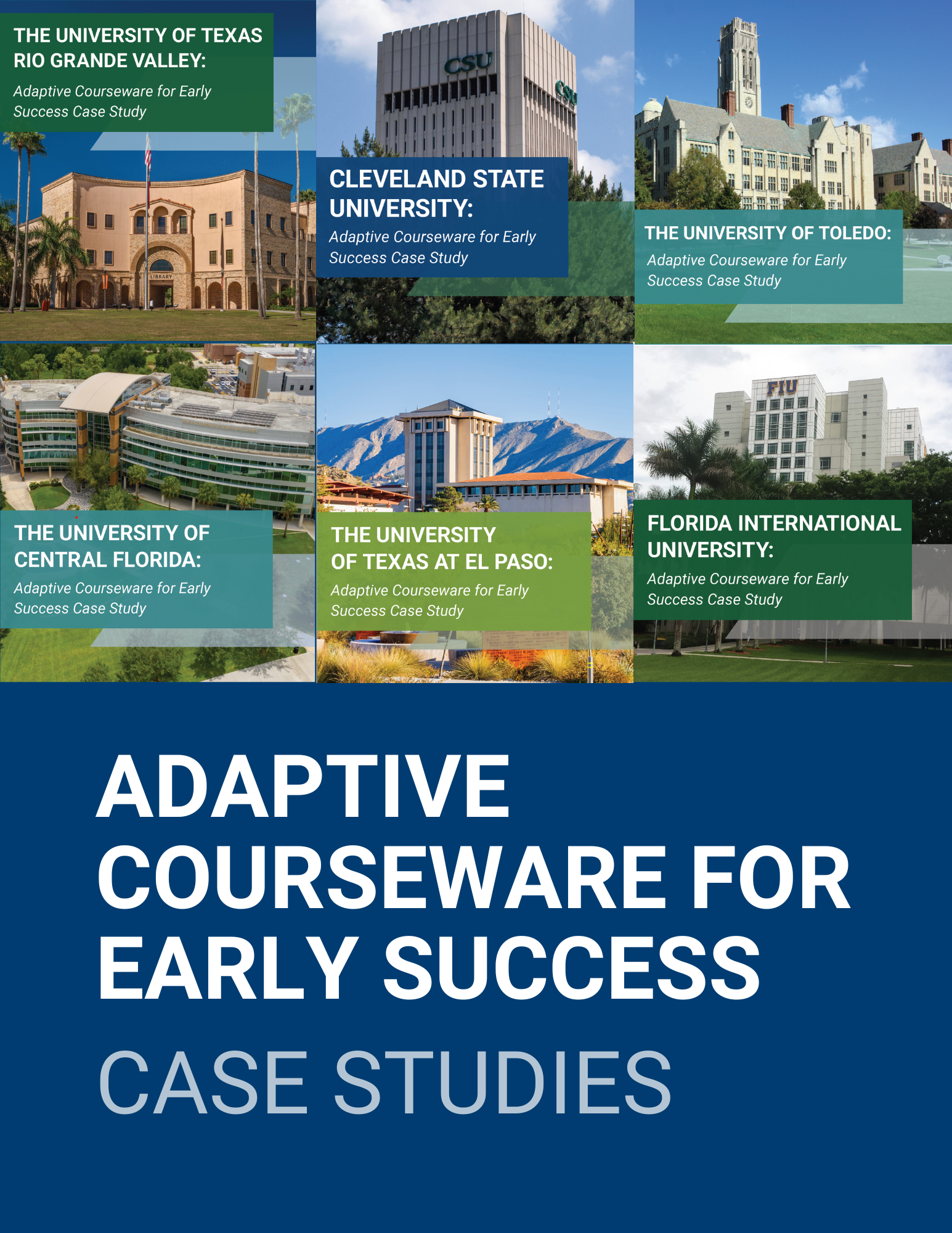
The Adaptive Courseware for Early Success (ACES) Initiative was a grant-funded initiative supported through the Every Learner Everywhere network. The PLC provided intensive coaching, peer-mentorship, collaborative learning and networking opportunities, and educational resources and training to cross-functional, institutional teams at select institutions.
Adaptive Courseware for Early Success Case Study: Cleveland State University
Adaptive Courseware for Early Success Case Study: University of Texas Rio Grande Valley
Adaptive Courseware for Early Success Case Study: University of Texas El Paso
Adaptive Courseware for Early Success Case Study: Florida International University
Adaptive Courseware for Early Success Case Study: The University of Central Florida
Adaptive Courseware for Early Success Case Study: University of Toledo
Time for Class 2023
OLC Innovate Student Panel: Co-Constructing Diverse Pathways to Digital Learning With Our Students
The Impact of Digital Learning on Minoritized and Poverty-Affected College Students: A Literature Review
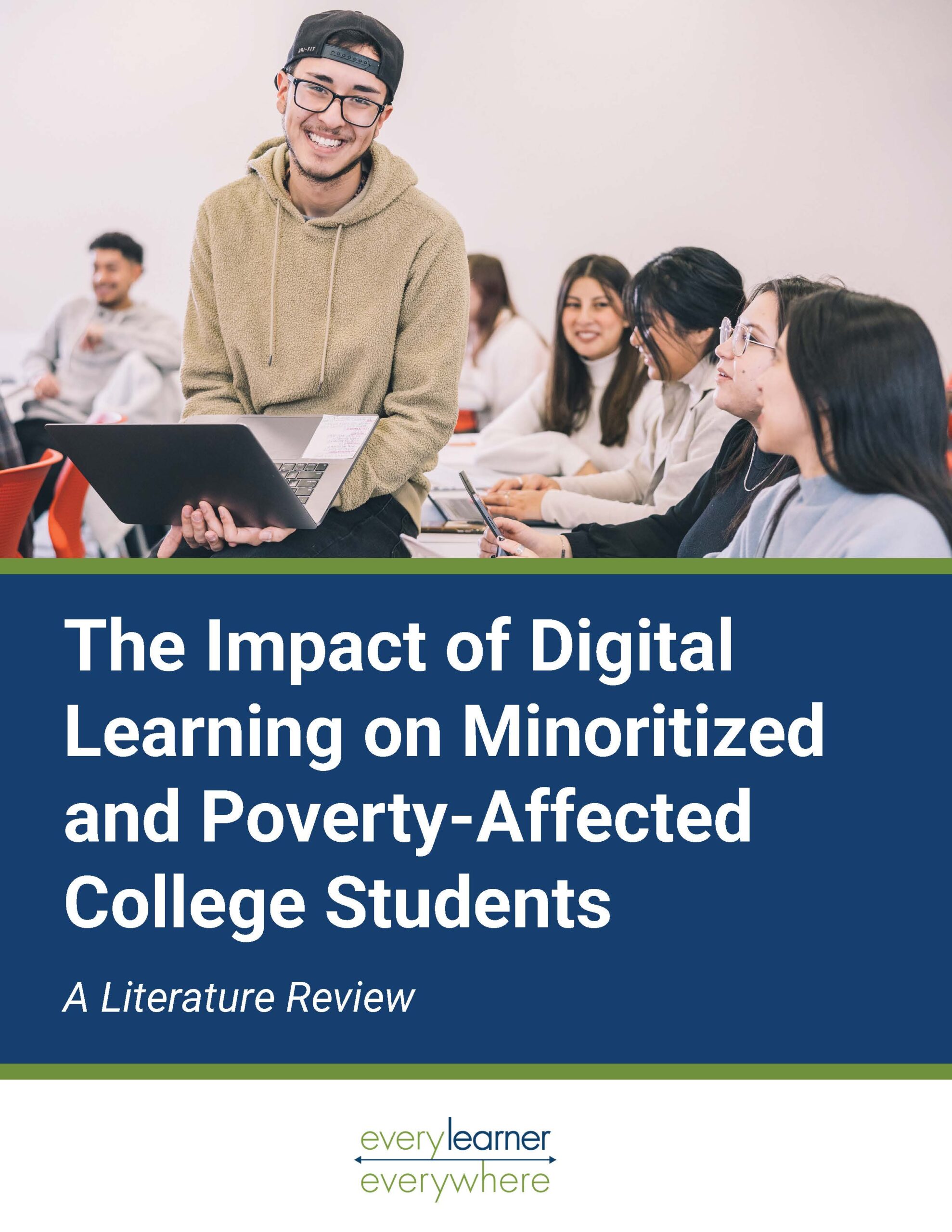
The focus of this resource paper is to assess the effectiveness of digital learning in decreasing equity gaps as well as the impact digital learning has on specific student populations: those who identify as Black, Latino, and Indigenous; students from low-income backgrounds; and first-generation students.
Partnering to Promote Equity and Digital Learning
Designing Online Learning as Intersectional, Entangled Commitments
An Equity-First Approach to Postsecondary Digital Learning
Every Learner 2022 Annual Impact Report
An Equity-First Approach to Postsecondary Digital Learning Strategy Guide
Equity in Digital Learning Student Survey
Digital learning instructional strategy guide: Onboarding students to digital courseware
Digital Learning Instructional Strategy Guide: Data-Informed Instruction With Courseware
Digital Learning Instructional Strategy Guide: Course Structure and Alignment
Toward Ending the Monolithic View of “Underrepresented Students”
2022 INCLUSIVE Summit Disciplinary Matters: Administrative and Faculty Support Session
2022 INCLUSIVE Summit Disciplinary Matters: Sciences Session
2022 INCLUSIVE Summit Disciplinary Matters Writing Session
2022 INCLUSIVE Summit Disciplinary Matters Math Session
2022 INCLUSIVE Summit Keynote Call to Action and Students & Faculty Speak Panel
Time for Class 2022
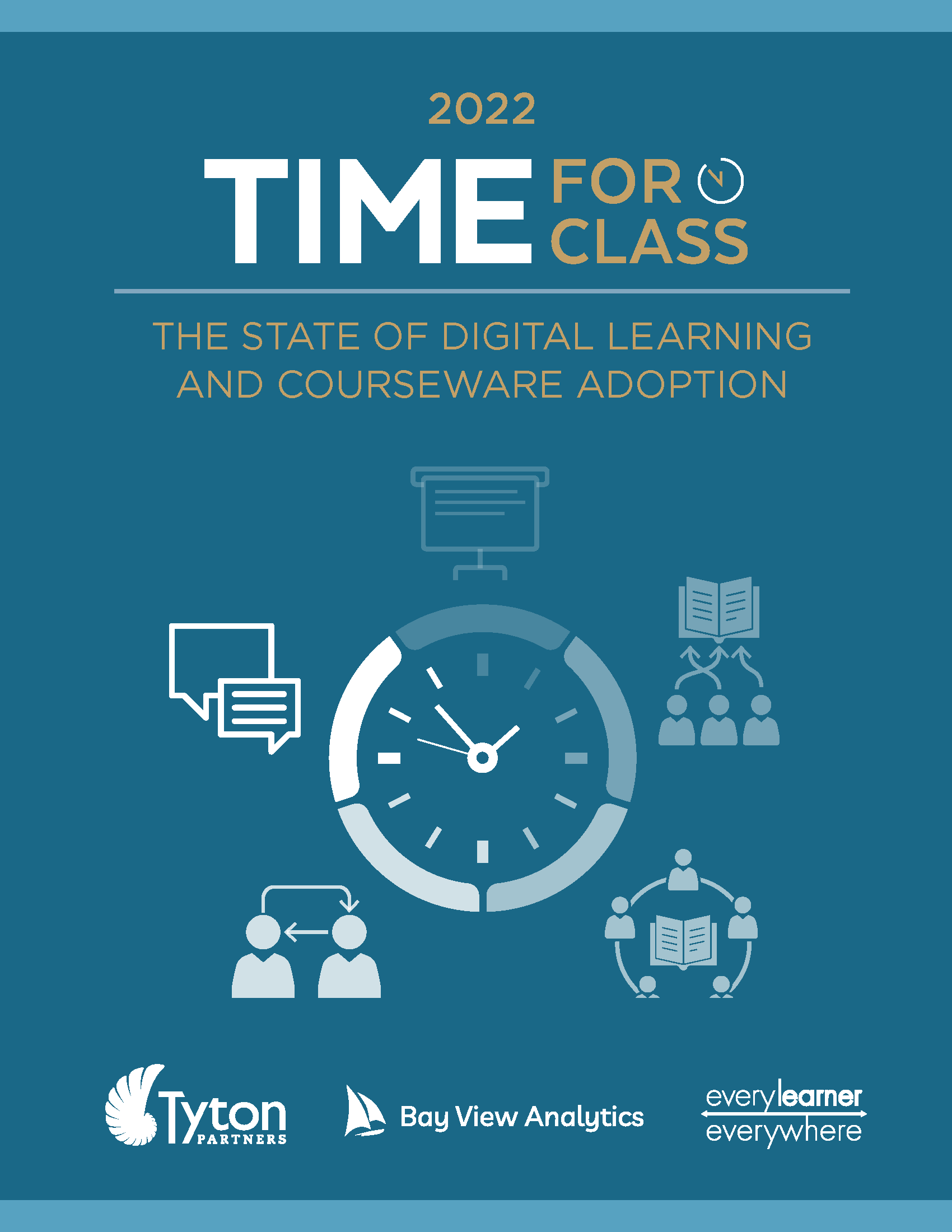
Time for Class 2022 examines how faculty and institutional leaders are using instructional materials to implement teaching practices that can improve student learning and outcomes, especially for students historically underserved by higher education. This report reviews how digital learning in high-enrollment introductory courses can enable instructors to incorporate evidence-based teaching practices and work to close equity gaps in courses.
ASU Remote 2022: Strategies for ensuring your course content is equity-centered
ASU Remote 2022: Strategies for reducing racial inequities using digital learning
ASU Remote 2022: The future of higher education is blended
ASU Remote 2022: Strategies for Implementing Digital Learning Infrastructure to Support Equitable Outcomes
Democratizing Learning Environments
Opportunities for Higher Education and Digital Learning in Infrastructure Workforce Training
Using COVID-19 Relief Funds to Boost Equity in Digital Learning
Broadband Funding Can Support Digital Learning
ATD Teaching & Learning Institute: Adaptive Courseware use in Gateway Courses: Lessons Learned from the Every Learner Everywhere Initiative
ATD Case Studies: Executive Summary Adaptive Courseware: New Models to SupportStudent Learning – Lessons learned from ATD network colleges in the Every Learner Everywhere initiative
ATD Case Studies: Full Report Adaptive Courseware: New Models to SupportStudent Learning – Lessons learned from ATD network colleges in the Every Learner Everywhere initiative
Supporting Student Success at the Course Level
Online Teaching Strategies to Promote Equity and Inclusion
A Case Study of Houston Community College
Strategies for Implementing Digital Learning Infrastructure to Support Equitable Outcomes
Engage! Using Adaptive Courseware and Digital Technology to Enhance Student Learning
A Case Study of Adaptive Learning Technology in the Humanities
A Case Study of Amarillo College
Every Learner 2021 Annual Report
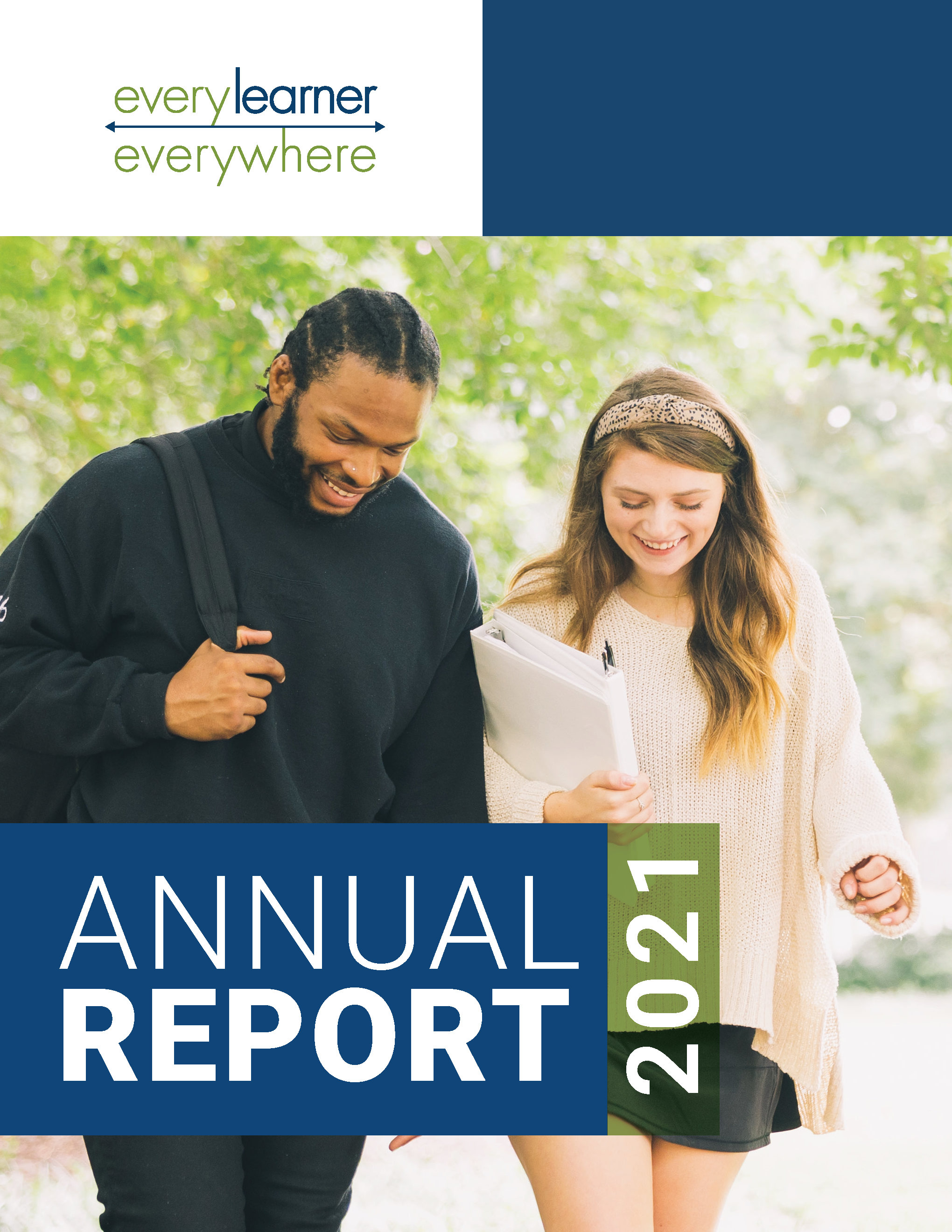
This year our network has prioritized increasing our knowledge and capacity for equity and racial justice work along with centering equity and racial justice in our resources and services. In addition to our personal and professional equity work, we have spent this last year inviting students into our work.
The Blended Institution for Higher Education: A Model for a Sustainable Institution
APLU Adapt 2021: Finding the Right Fit
APLU Adapt 2021: Faculty Professional Learning
APLU Adapt 2021: Closing Plenary
APLU Adapt 2021: Teaching Matters
APLU Adapt 2021: Student Reflections on the Adaptive Digital Learning Experiences
APLU Adapt 2021: Opening Plenary
APLU Adapt 2021: Lighting the Way
APLU Adapt 2021: How to Use Data in the Classroom
APLU Adapt 2021: How to Create More Equitable Courses through a Continuous Improvement Process
Adaptive Learning in Math Courses
A Case Study of Adaptive Learning Technology in Science
Strategic Staffing for a Digital Future
Adaptive Courseware as a Tool to Master Complex Concepts
Integrating Adaptive Courseware as Part of a Comprehensive Redesign of a Gateway Math Course
Supporting Greater Integration of Adaptive Courseware in Gateway Courses
Integrating Adaptive Courseware into Broader Efforts to Improve Teaching and Learning
Re-Writing Writing
Lessons Learned: A Toolkit for Post-Pandemic Higher Education with Equity and Student Care at the Center
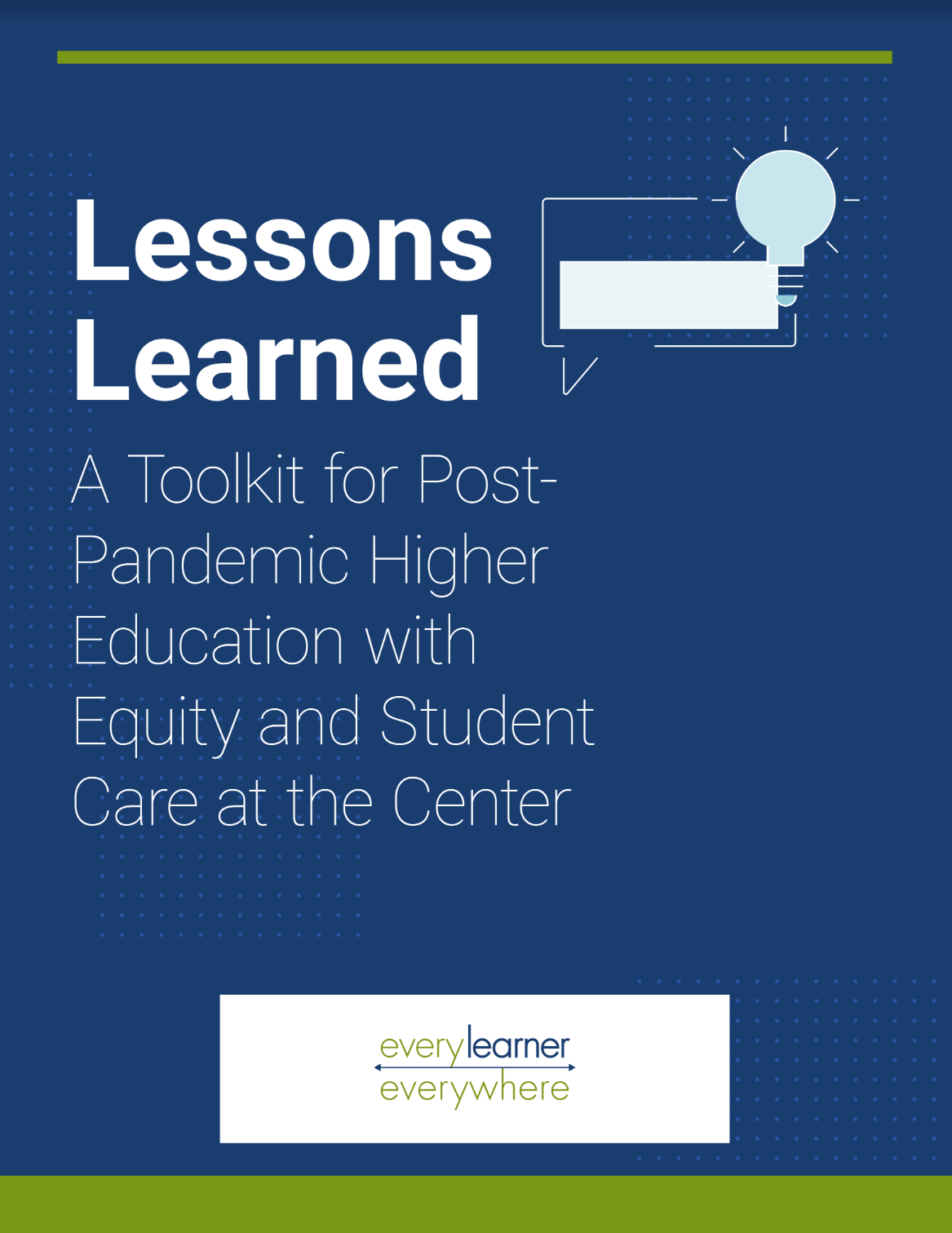
Lessons Learned is made up of over 30 recommendations for improving practices in higher education. It asks where unexpected benefits showed themselves among the forced necessity of emergency remote teaching, and it encourages faculty, administrators, and academic and student support colleagues to continue collaborating to remove barriers, improve access, and update methods and tools.
Teaching Practices of Faculty Adopting Adaptive Courseware
Teaching with a Cobot, not a Robot
Development and Implementation of Active, Interactive, and Adaptive Physics Courses
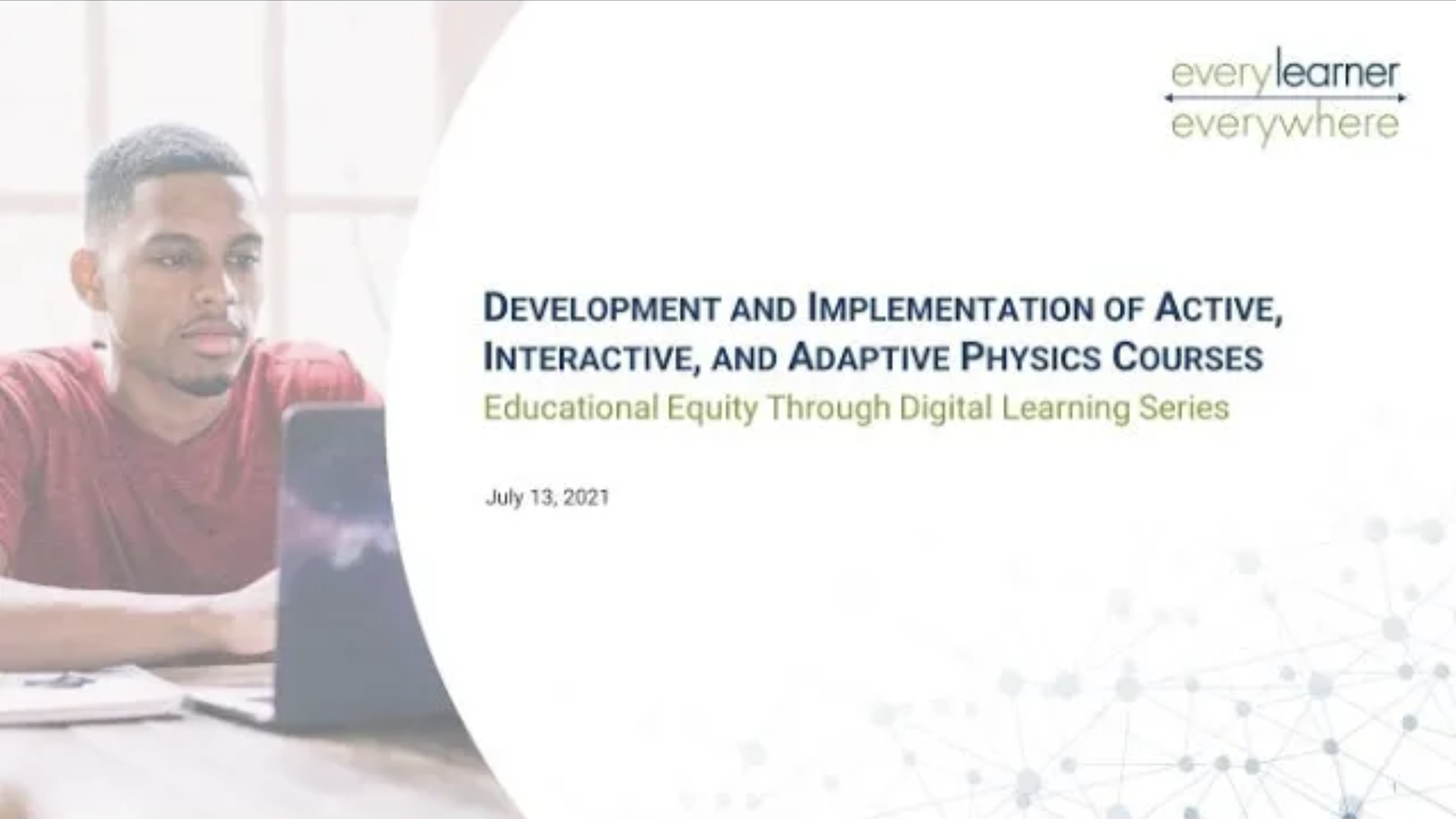
Faculty share experiences of developing and implementing active, interactive, and adaptive introductory physics courses. The design allows students to work at their own pace, choosing support items presented to them via the adaptive feature of the course, and explore concepts through simulations with activities.
Emerging SMART Technologies
Time for Class 2021
Integrating Adaptive Learning in Mathematics
A Faculty-Centered Approach to Successfully Implementing Adaptive Courseware
Implementing Adaptive Courseware in Gateway Math and Business Courses
Culturally Relevant Neuroeducation Practices + Tech Tools = Equitable Classroom Environments
ASU Remote 2021: All Access Pass: Course “Re” Design with Adaptive Learning
ASU Remote 2021: Adaptive Courseware in Support of Student Success
ASU Remote 2021: A Course Redesign Project: Adaptive Courseware in Biology
ASU Remote 2021: Enacting Impactful Research Methods in Our Educational Process and Practice
Caring for Students Playbook: Six Recommendations
Optimizing High-Quality Digital Learning Experiences: A Playbook for Faculty
Getting Started with Equity: A Guide for Academic Department Leaders
Research Review: Educational Technologies and Their Impact on Student Success for Racial and Ethnic Groups of Interest
Planning for a Blended Future
Student Leaders Speak 2021
Success for All Teaching Strategies
Designing with Equity and Engagement at the Forefront
A Course Redesign Project: Personalized Adaptive Learning and OER Content
Every Learner Everywhere, Any Place, Any Time?
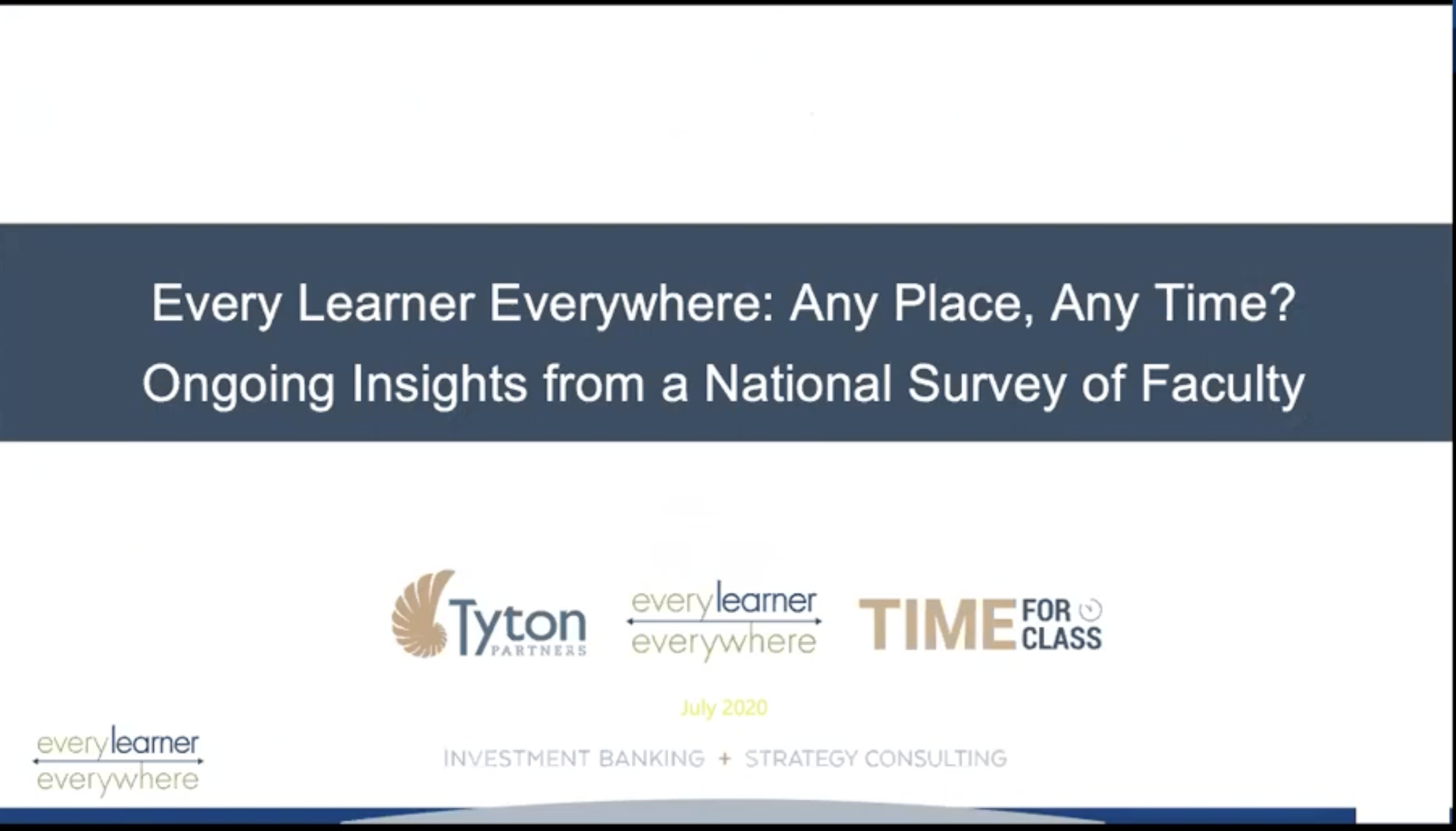
In this session we address key learnings about instructional practices and student learning outcomes, usage of digital tools and impact on faculty time, and share key challenges we must continue to confront as well as the strategies faculty and institutions are deploying to better ensure that every learner everywhere is able to learn.
Improving Critical Courses Using Digital Learning & Evidence-based Pedagogy
Ask an Expert Live Q&A: What Faculty Need to Know
Time for Class: COVID-19 Edition Part 3
Transform Engagement: Interaction and Online Course Design
Teaching in a Time of Covid: What Makes a Difference
Creative Strategies for Equitable Engagement in Online Classes
Centering Identity as a Cognitive Tool
A brief exploration on how faculty can position cultural knowledge and centering identity as a cognitive tool.

